Shows
 The K-Rob CollectionAudio Antiques - Ralph Bunche: International Man of PeaceRalph Johnson Bunche was an American political scientist, diplomat, and leading participant in the decolonization process following World War 2, as well as the US civil rights movement. Bunche received the 1950 Nobel Peace Prize for his efforts to resolve the Arab–Israeli conflict in Palestine. He was the first African-American and first person of African descent to be awarded any Nobel Prize. Bunche was involved in the formation and administration of the United Nations. In 1963, Bunche was awarded the Presidential Medal of Freedom by U.S. President John Kennedy. The Detroit native, and former resident of Toledo, Albuquerque, and Los An...2025-03-0455 min
The K-Rob CollectionAudio Antiques - Ralph Bunche: International Man of PeaceRalph Johnson Bunche was an American political scientist, diplomat, and leading participant in the decolonization process following World War 2, as well as the US civil rights movement. Bunche received the 1950 Nobel Peace Prize for his efforts to resolve the Arab–Israeli conflict in Palestine. He was the first African-American and first person of African descent to be awarded any Nobel Prize. Bunche was involved in the formation and administration of the United Nations. In 1963, Bunche was awarded the Presidential Medal of Freedom by U.S. President John Kennedy. The Detroit native, and former resident of Toledo, Albuquerque, and Los An...2025-03-0455 min Milestones in African American HistoryRalph BuncheRalph Bunch was the first African American to win the Nobel Peace Prize. Read by Lindsay Scarola.2025-02-0102 min
Milestones in African American HistoryRalph BuncheRalph Bunch was the first African American to win the Nobel Peace Prize. Read by Lindsay Scarola.2025-02-0102 min GOLDEN CLASSIC RADIO SHOWSDestination Freedom (034) 1949-02-20 Peace MediatorThe thirty-fourth episode of "Destination Freedom," titled "Peace Mediator," aired on February 20, 1949. This episode tells the story of Dr. Ralph Bunche, a distinguished diplomat and the first African American to be awarded the Nobel Peace Prize.
Dr. Ralph Bunche: The Diplomat and Peacekeeper
Ralph Johnson Bunche was born on August 7, 1904, in Detroit, Michigan. He became a significant figure in international diplomacy and played a crucial role in mediating conflicts around the world.
Early Life and Education: Bunche excelled academically, earning a scholarship to attend the University of California, Los Angeles (UCLA). He later completed...2025-01-1230 min
GOLDEN CLASSIC RADIO SHOWSDestination Freedom (034) 1949-02-20 Peace MediatorThe thirty-fourth episode of "Destination Freedom," titled "Peace Mediator," aired on February 20, 1949. This episode tells the story of Dr. Ralph Bunche, a distinguished diplomat and the first African American to be awarded the Nobel Peace Prize.
Dr. Ralph Bunche: The Diplomat and Peacekeeper
Ralph Johnson Bunche was born on August 7, 1904, in Detroit, Michigan. He became a significant figure in international diplomacy and played a crucial role in mediating conflicts around the world.
Early Life and Education: Bunche excelled academically, earning a scholarship to attend the University of California, Los Angeles (UCLA). He later completed...2025-01-1230 min Golden Classics Great Radio ShowsDestination Freedom (034) 1949-02-20 Peace MediatorThe thirty-fourth episode of "Destination Freedom," titled "Peace Mediator," aired on February 20, 1949. This episode tells the story of Dr. Ralph Bunche, a distinguished diplomat and the first African American to be awarded the Nobel Peace Prize. Dr. Ralph Bunche: The Diplomat and Peacekeeper Ralph Johnson Bunche was born on August 7, 1904, in Detroit, Michigan. He became a significant figure in international diplomacy and played a crucial role in mediating conflicts around the world. Early Life and Education: Bunche excelled academically, earning a scholarship to attend the University of California, Los Angeles (UCLA). He later completed his graduate studies at Harvard University...2025-01-1230 min
Golden Classics Great Radio ShowsDestination Freedom (034) 1949-02-20 Peace MediatorThe thirty-fourth episode of "Destination Freedom," titled "Peace Mediator," aired on February 20, 1949. This episode tells the story of Dr. Ralph Bunche, a distinguished diplomat and the first African American to be awarded the Nobel Peace Prize. Dr. Ralph Bunche: The Diplomat and Peacekeeper Ralph Johnson Bunche was born on August 7, 1904, in Detroit, Michigan. He became a significant figure in international diplomacy and played a crucial role in mediating conflicts around the world. Early Life and Education: Bunche excelled academically, earning a scholarship to attend the University of California, Los Angeles (UCLA). He later completed his graduate studies at Harvard University...2025-01-1230 min New Books in Military HistoryHamas, Iran and Israel: The Perils of OverreactionIn this episode of International Horizons, Colin Clarke, director of research at the Soufan Center, discusses the possible trajectories of the Israel-Palestine conflict with RBI director John Torpey. Clarke introduces the linkages of Hamas with Iran and the way in which the Iranian government backs a number of different proxy groups in the Middle East. He argues that Hamas miscalculated the attack on Israel and that Israel’s overreaction (backed by the U.S.) is very dangerous, threatening a wider war in the region. Clarke also comments on the role of the "international community" in all this, as there are...2023-11-0634 min
New Books in Military HistoryHamas, Iran and Israel: The Perils of OverreactionIn this episode of International Horizons, Colin Clarke, director of research at the Soufan Center, discusses the possible trajectories of the Israel-Palestine conflict with RBI director John Torpey. Clarke introduces the linkages of Hamas with Iran and the way in which the Iranian government backs a number of different proxy groups in the Middle East. He argues that Hamas miscalculated the attack on Israel and that Israel’s overreaction (backed by the U.S.) is very dangerous, threatening a wider war in the region. Clarke also comments on the role of the "international community" in all this, as there are...2023-11-0634 min New Books in National SecurityHamas, Iran and Israel: The Perils of OverreactionIn this episode of International Horizons, Colin Clarke, director of research at the Soufan Center, discusses the possible trajectories of the Israel-Palestine conflict with RBI director John Torpey. Clarke introduces the linkages of Hamas with Iran and the way in which the Iranian government backs a number of different proxy groups in the Middle East. He argues that Hamas miscalculated the attack on Israel and that Israel’s overreaction (backed by the U.S.) is very dangerous, threatening a wider war in the region. Clarke also comments on the role of the "international community" in all this, as there are...2023-11-0634 min
New Books in National SecurityHamas, Iran and Israel: The Perils of OverreactionIn this episode of International Horizons, Colin Clarke, director of research at the Soufan Center, discusses the possible trajectories of the Israel-Palestine conflict with RBI director John Torpey. Clarke introduces the linkages of Hamas with Iran and the way in which the Iranian government backs a number of different proxy groups in the Middle East. He argues that Hamas miscalculated the attack on Israel and that Israel’s overreaction (backed by the U.S.) is very dangerous, threatening a wider war in the region. Clarke also comments on the role of the "international community" in all this, as there are...2023-11-0634 min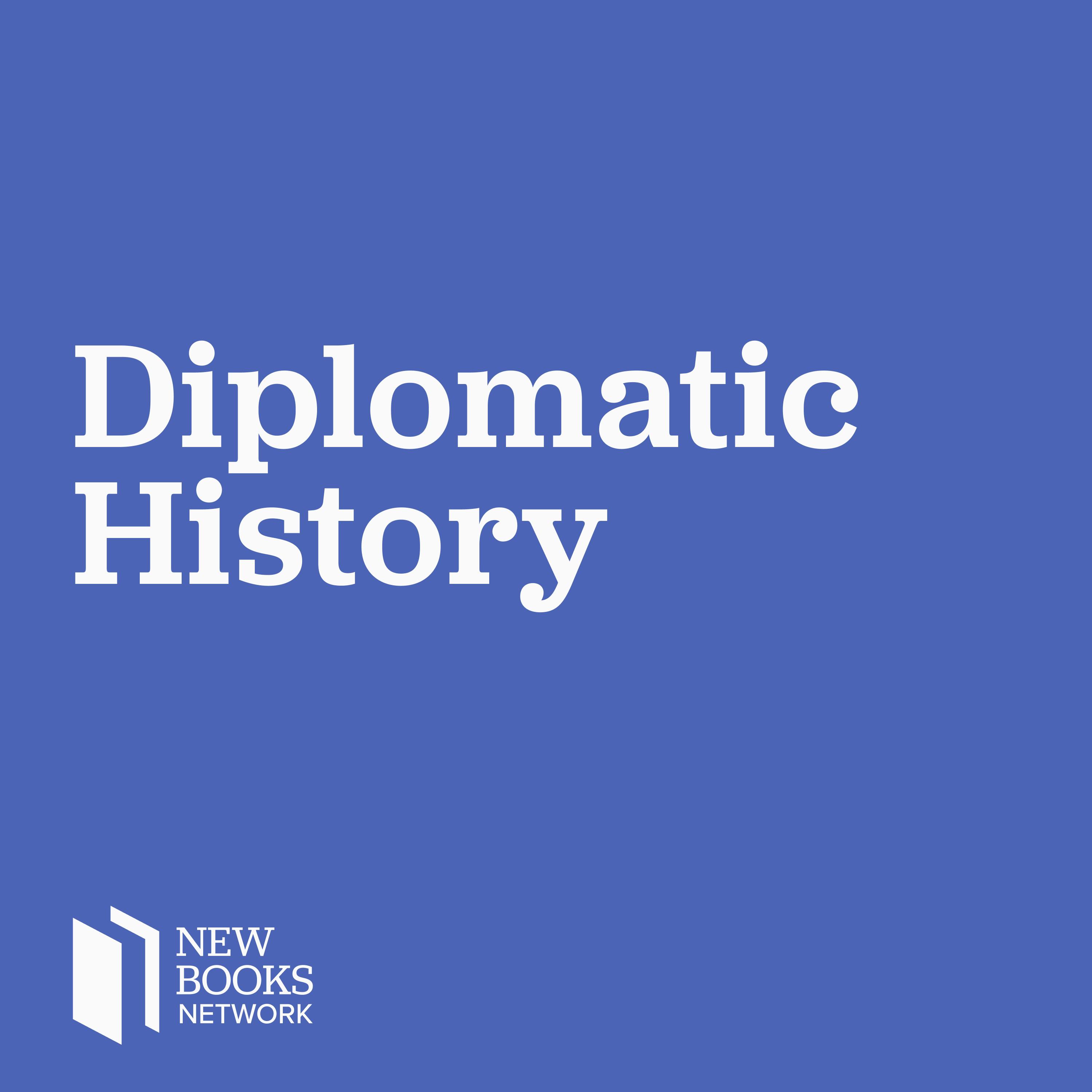 New Books in Diplomatic HistoryHamas, Iran and Israel: The Perils of OverreactionIn this episode of International Horizons, Colin Clarke, director of research at the Soufan Center, discusses the possible trajectories of the Israel-Palestine conflict with RBI director John Torpey. Clarke introduces the linkages of Hamas with Iran and the way in which the Iranian government backs a number of different proxy groups in the Middle East. He argues that Hamas miscalculated the attack on Israel and that Israel’s overreaction (backed by the U.S.) is very dangerous, threatening a wider war in the region. Clarke also comments on the role of the "international community" in all this, as there are...2023-11-0634 min
New Books in Diplomatic HistoryHamas, Iran and Israel: The Perils of OverreactionIn this episode of International Horizons, Colin Clarke, director of research at the Soufan Center, discusses the possible trajectories of the Israel-Palestine conflict with RBI director John Torpey. Clarke introduces the linkages of Hamas with Iran and the way in which the Iranian government backs a number of different proxy groups in the Middle East. He argues that Hamas miscalculated the attack on Israel and that Israel’s overreaction (backed by the U.S.) is very dangerous, threatening a wider war in the region. Clarke also comments on the role of the "international community" in all this, as there are...2023-11-0634 min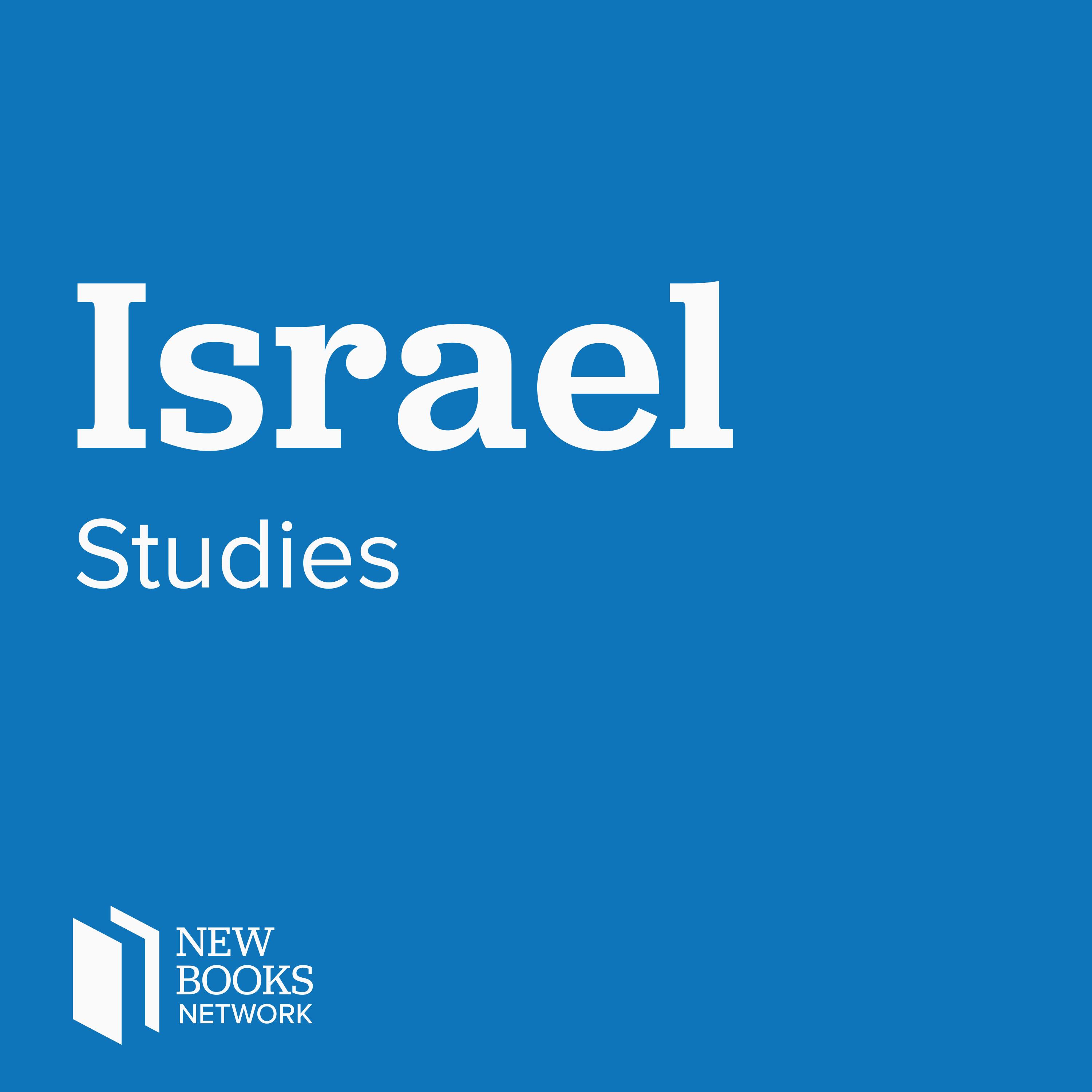 New Books in Israel StudiesHamas, Iran and Israel: The Perils of OverreactionIn this episode of International Horizons, Colin Clarke, director of research at the Soufan Center, discusses the possible trajectories of the Israel-Palestine conflict with RBI director John Torpey. Clarke introduces the linkages of Hamas with Iran and the way in which the Iranian government backs a number of different proxy groups in the Middle East. He argues that Hamas miscalculated the attack on Israel and that Israel’s overreaction (backed by the U.S.) is very dangerous, threatening a wider war in the region. Clarke also comments on the role of the "international community" in all this, as there are...2023-11-0634 min
New Books in Israel StudiesHamas, Iran and Israel: The Perils of OverreactionIn this episode of International Horizons, Colin Clarke, director of research at the Soufan Center, discusses the possible trajectories of the Israel-Palestine conflict with RBI director John Torpey. Clarke introduces the linkages of Hamas with Iran and the way in which the Iranian government backs a number of different proxy groups in the Middle East. He argues that Hamas miscalculated the attack on Israel and that Israel’s overreaction (backed by the U.S.) is very dangerous, threatening a wider war in the region. Clarke also comments on the role of the "international community" in all this, as there are...2023-11-0634 min New Books in Political ScienceHamas, Iran and Israel: The Perils of OverreactionIn this episode of International Horizons, Colin Clarke, director of research at the Soufan Center, discusses the possible trajectories of the Israel-Palestine conflict with RBI director John Torpey. Clarke introduces the linkages of Hamas with Iran and the way in which the Iranian government backs a number of different proxy groups in the Middle East. He argues that Hamas miscalculated the attack on Israel and that Israel’s overreaction (backed by the U.S.) is very dangerous, threatening a wider war in the region. Clarke also comments on the role of the "international community" in all this, as there are...2023-11-0634 min
New Books in Political ScienceHamas, Iran and Israel: The Perils of OverreactionIn this episode of International Horizons, Colin Clarke, director of research at the Soufan Center, discusses the possible trajectories of the Israel-Palestine conflict with RBI director John Torpey. Clarke introduces the linkages of Hamas with Iran and the way in which the Iranian government backs a number of different proxy groups in the Middle East. He argues that Hamas miscalculated the attack on Israel and that Israel’s overreaction (backed by the U.S.) is very dangerous, threatening a wider war in the region. Clarke also comments on the role of the "international community" in all this, as there are...2023-11-0634 min New Books in Political ScienceWoodrow Wilson: Patrick Weil’s "The Madman in the White House"In this episode of International Horizons, RBI director John Torpey interviews Patrick Weil, author of The Madman in the White House: Sigmund Freud, Ambassador Bullitt, and the Lost Psychobiography of Woodrow Wilson (Harvard University Press, 2023). Weil discusses the beginnings of a book published in 1960 by Ambassador William C. Bullitt, who wrote on the mental health of President Woodrow Wilson with the founder of psychoanalysis, Sigmund Freud. Delving into archival research, Weil found that Bullitt and Freud saw Wilson as a neurotic obsessed with his father, whom he both deeply loved and hated, and that the image of his father wa...2023-10-3140 min
New Books in Political ScienceWoodrow Wilson: Patrick Weil’s "The Madman in the White House"In this episode of International Horizons, RBI director John Torpey interviews Patrick Weil, author of The Madman in the White House: Sigmund Freud, Ambassador Bullitt, and the Lost Psychobiography of Woodrow Wilson (Harvard University Press, 2023). Weil discusses the beginnings of a book published in 1960 by Ambassador William C. Bullitt, who wrote on the mental health of President Woodrow Wilson with the founder of psychoanalysis, Sigmund Freud. Delving into archival research, Weil found that Bullitt and Freud saw Wilson as a neurotic obsessed with his father, whom he both deeply loved and hated, and that the image of his father wa...2023-10-3140 min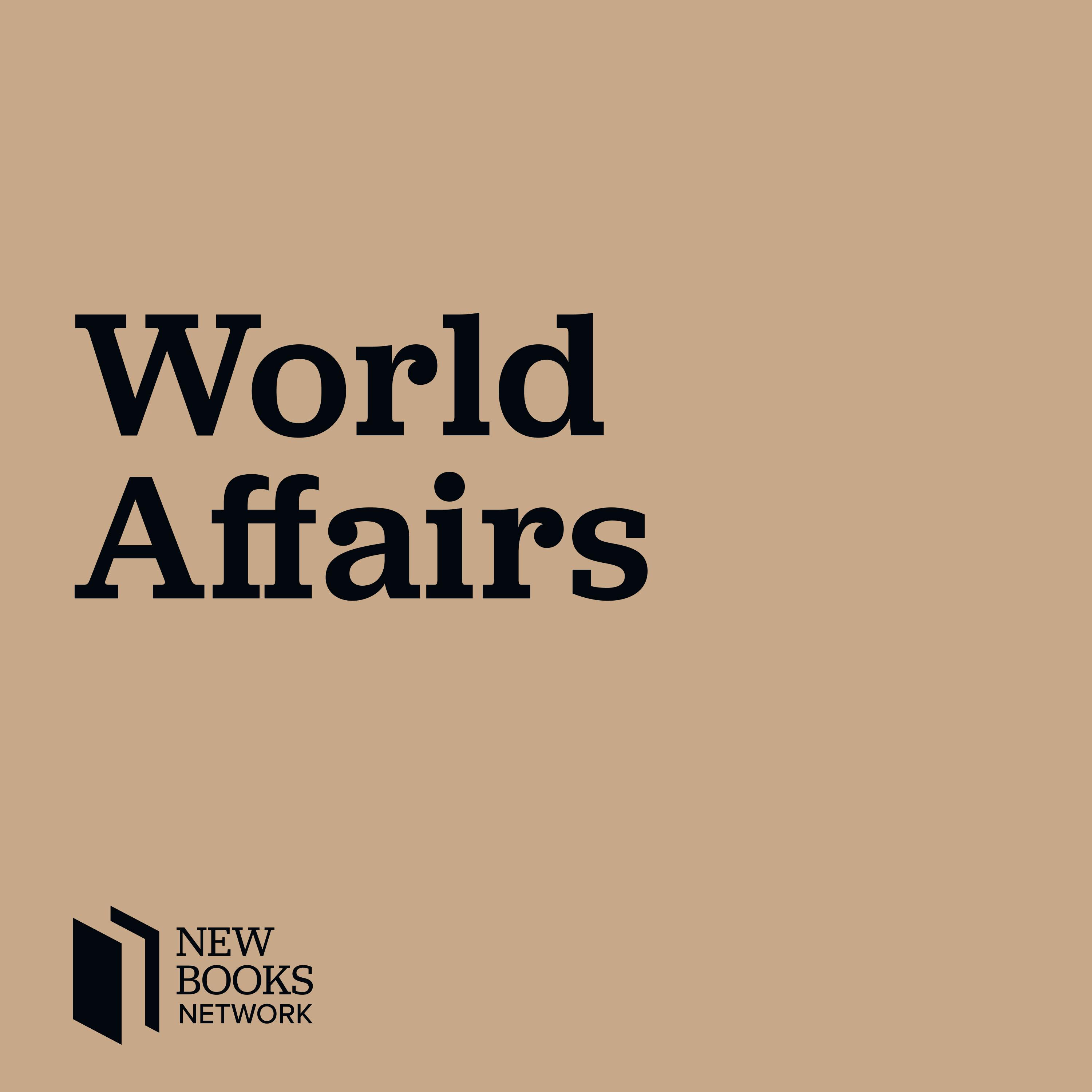 New Books in World AffairsWoodrow Wilson: Patrick Weil’s "The Madman in the White House"In this episode of International Horizons, RBI director John Torpey interviews Patrick Weil, author of The Madman in the White House: Sigmund Freud, Ambassador Bullitt, and the Lost Psychobiography of Woodrow Wilson (Harvard University Press, 2023). Weil discusses the beginnings of a book published in 1960 by Ambassador William C. Bullitt, who wrote on the mental health of President Woodrow Wilson with the founder of psychoanalysis, Sigmund Freud. Delving into archival research, Weil found that Bullitt and Freud saw Wilson as a neurotic obsessed with his father, whom he both deeply loved and hated, and that the image of his father wa...2023-10-3140 min
New Books in World AffairsWoodrow Wilson: Patrick Weil’s "The Madman in the White House"In this episode of International Horizons, RBI director John Torpey interviews Patrick Weil, author of The Madman in the White House: Sigmund Freud, Ambassador Bullitt, and the Lost Psychobiography of Woodrow Wilson (Harvard University Press, 2023). Weil discusses the beginnings of a book published in 1960 by Ambassador William C. Bullitt, who wrote on the mental health of President Woodrow Wilson with the founder of psychoanalysis, Sigmund Freud. Delving into archival research, Weil found that Bullitt and Freud saw Wilson as a neurotic obsessed with his father, whom he both deeply loved and hated, and that the image of his father wa...2023-10-3140 min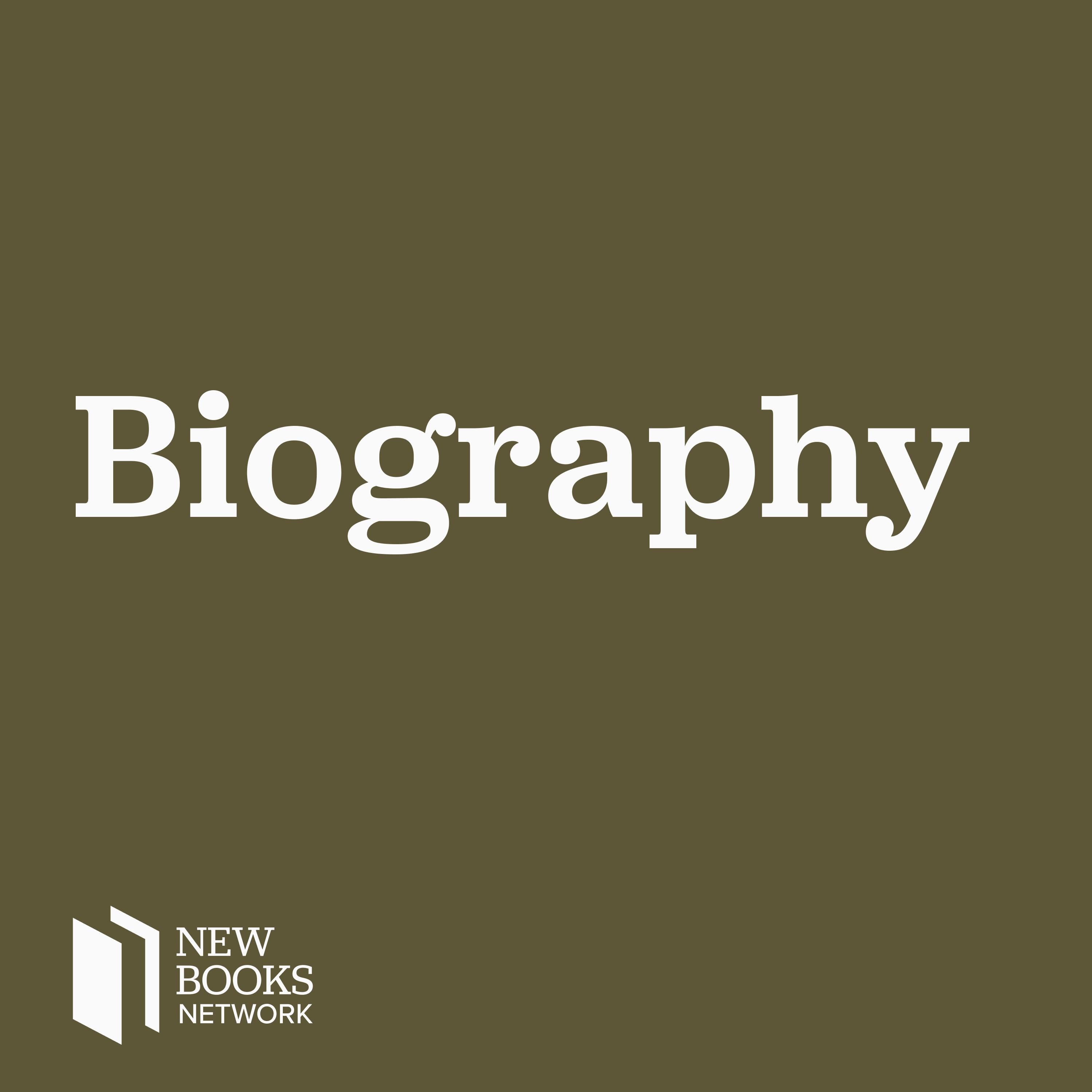 New Books in BiographyWoodrow Wilson: Patrick Weil’s "The Madman in the White House"In this episode of International Horizons, RBI director John Torpey interviews Patrick Weil, author of The Madman in the White House: Sigmund Freud, Ambassador Bullitt, and the Lost Psychobiography of Woodrow Wilson (Harvard University Press, 2023). Weil discusses the beginnings of a book published in 1960 by Ambassador William C. Bullitt, who wrote on the mental health of President Woodrow Wilson with the founder of psychoanalysis, Sigmund Freud. Delving into archival research, Weil found that Bullitt and Freud saw Wilson as a neurotic obsessed with his father, whom he both deeply loved and hated, and that the image of his father wa...2023-10-3140 min
New Books in BiographyWoodrow Wilson: Patrick Weil’s "The Madman in the White House"In this episode of International Horizons, RBI director John Torpey interviews Patrick Weil, author of The Madman in the White House: Sigmund Freud, Ambassador Bullitt, and the Lost Psychobiography of Woodrow Wilson (Harvard University Press, 2023). Weil discusses the beginnings of a book published in 1960 by Ambassador William C. Bullitt, who wrote on the mental health of President Woodrow Wilson with the founder of psychoanalysis, Sigmund Freud. Delving into archival research, Weil found that Bullitt and Freud saw Wilson as a neurotic obsessed with his father, whom he both deeply loved and hated, and that the image of his father wa...2023-10-3140 min New Books in American PoliticsWoodrow Wilson: Patrick Weil’s "The Madman in the White House"In this episode of International Horizons, RBI director John Torpey interviews Patrick Weil, author of The Madman in the White House: Sigmund Freud, Ambassador Bullitt, and the Lost Psychobiography of Woodrow Wilson (Harvard University Press, 2023). Weil discusses the beginnings of a book published in 1960 by Ambassador William C. Bullitt, who wrote on the mental health of President Woodrow Wilson with the founder of psychoanalysis, Sigmund Freud. Delving into archival research, Weil found that Bullitt and Freud saw Wilson as a neurotic obsessed with his father, whom he both deeply loved and hated, and that the image of his father wa...2023-10-3140 min
New Books in American PoliticsWoodrow Wilson: Patrick Weil’s "The Madman in the White House"In this episode of International Horizons, RBI director John Torpey interviews Patrick Weil, author of The Madman in the White House: Sigmund Freud, Ambassador Bullitt, and the Lost Psychobiography of Woodrow Wilson (Harvard University Press, 2023). Weil discusses the beginnings of a book published in 1960 by Ambassador William C. Bullitt, who wrote on the mental health of President Woodrow Wilson with the founder of psychoanalysis, Sigmund Freud. Delving into archival research, Weil found that Bullitt and Freud saw Wilson as a neurotic obsessed with his father, whom he both deeply loved and hated, and that the image of his father wa...2023-10-3140 min New Books in the History of ScienceWoodrow Wilson: Patrick Weil’s "The Madman in the White House"In this episode of International Horizons, RBI director John Torpey interviews Patrick Weil, author of The Madman in the White House: Sigmund Freud, Ambassador Bullitt, and the Lost Psychobiography of Woodrow Wilson (Harvard University Press, 2023). Weil discusses the beginnings of a book published in 1960 by Ambassador William C. Bullitt, who wrote on the mental health of President Woodrow Wilson with the founder of psychoanalysis, Sigmund Freud. Delving into archival research, Weil found that Bullitt and Freud saw Wilson as a neurotic obsessed with his father, whom he both deeply loved and hated, and that the image of his father wa...2023-10-3140 min
New Books in the History of ScienceWoodrow Wilson: Patrick Weil’s "The Madman in the White House"In this episode of International Horizons, RBI director John Torpey interviews Patrick Weil, author of The Madman in the White House: Sigmund Freud, Ambassador Bullitt, and the Lost Psychobiography of Woodrow Wilson (Harvard University Press, 2023). Weil discusses the beginnings of a book published in 1960 by Ambassador William C. Bullitt, who wrote on the mental health of President Woodrow Wilson with the founder of psychoanalysis, Sigmund Freud. Delving into archival research, Weil found that Bullitt and Freud saw Wilson as a neurotic obsessed with his father, whom he both deeply loved and hated, and that the image of his father wa...2023-10-3140 min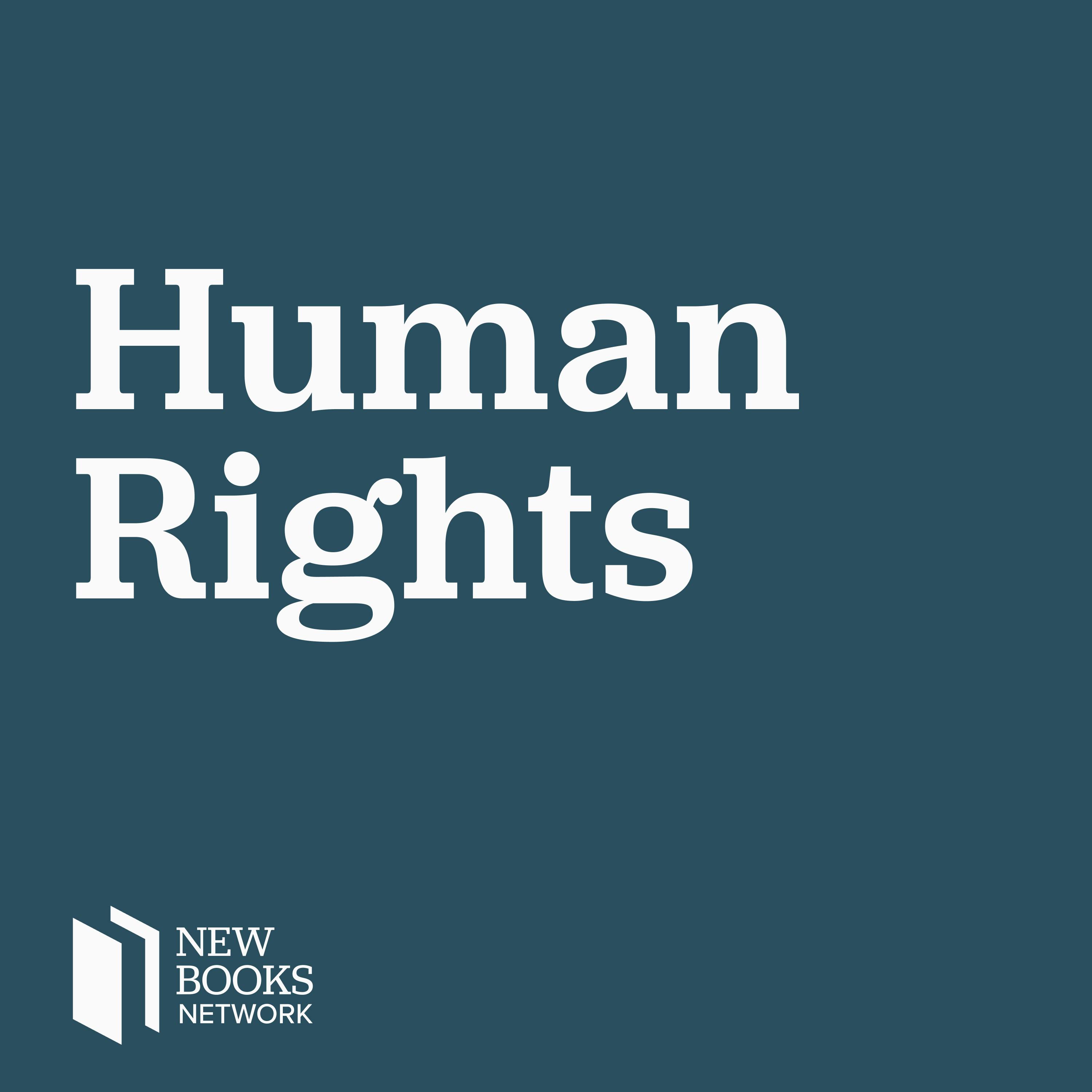 New Books in Human RightsFrom the Invention of the Passport to the Golden PassportIn this episode of International Horizons, RBI director John Torpey interviews Kristin Surak, professor at the London School of Economics, about her new book, The Golden Passport: Global Mobility for Millionaires (Harvard University Press, 2023). The conversation starts with the contrast of Torpey’s The Invention of the Passport (Cambridge UP, 2018) and the “golden passport,” which reflects how, in the past three decades, many countries have opened avenues for the wealthy to buy passports and citizenship (aka “citizenship by investment”). Surak discusses the creation of this market and the reasons why some countries are opening these opportunities. Despite not necessarily being attractiv...2023-10-2436 min
New Books in Human RightsFrom the Invention of the Passport to the Golden PassportIn this episode of International Horizons, RBI director John Torpey interviews Kristin Surak, professor at the London School of Economics, about her new book, The Golden Passport: Global Mobility for Millionaires (Harvard University Press, 2023). The conversation starts with the contrast of Torpey’s The Invention of the Passport (Cambridge UP, 2018) and the “golden passport,” which reflects how, in the past three decades, many countries have opened avenues for the wealthy to buy passports and citizenship (aka “citizenship by investment”). Surak discusses the creation of this market and the reasons why some countries are opening these opportunities. Despite not necessarily being attractiv...2023-10-2436 min New Books in World AffairsFrom the Invention of the Passport to the Golden PassportIn this episode of International Horizons, RBI director John Torpey interviews Kristin Surak, professor at the London School of Economics, about her new book, The Golden Passport: Global Mobility for Millionaires (Harvard University Press, 2023). The conversation starts with the contrast of Torpey’s The Invention of the Passport (Cambridge UP, 2018) and the “golden passport,” which reflects how, in the past three decades, many countries have opened avenues for the wealthy to buy passports and citizenship (aka “citizenship by investment”). Surak discusses the creation of this market and the reasons why some countries are opening these opportunities. Despite not necessarily being attractiv...2023-10-2436 min
New Books in World AffairsFrom the Invention of the Passport to the Golden PassportIn this episode of International Horizons, RBI director John Torpey interviews Kristin Surak, professor at the London School of Economics, about her new book, The Golden Passport: Global Mobility for Millionaires (Harvard University Press, 2023). The conversation starts with the contrast of Torpey’s The Invention of the Passport (Cambridge UP, 2018) and the “golden passport,” which reflects how, in the past three decades, many countries have opened avenues for the wealthy to buy passports and citizenship (aka “citizenship by investment”). Surak discusses the creation of this market and the reasons why some countries are opening these opportunities. Despite not necessarily being attractiv...2023-10-2436 min New Books in Political ScienceFrom the Invention of the Passport to the Golden PassportIn this episode of International Horizons, RBI director John Torpey interviews Kristin Surak, professor at the London School of Economics, about her new book, The Golden Passport: Global Mobility for Millionaires (Harvard University Press, 2023). The conversation starts with the contrast of Torpey’s The Invention of the Passport (Cambridge UP, 2018) and the “golden passport,” which reflects how, in the past three decades, many countries have opened avenues for the wealthy to buy passports and citizenship (aka “citizenship by investment”). Surak discusses the creation of this market and the reasons why some countries are opening these opportunities. Despite not necessarily being attractiv...2023-10-2436 min
New Books in Political ScienceFrom the Invention of the Passport to the Golden PassportIn this episode of International Horizons, RBI director John Torpey interviews Kristin Surak, professor at the London School of Economics, about her new book, The Golden Passport: Global Mobility for Millionaires (Harvard University Press, 2023). The conversation starts with the contrast of Torpey’s The Invention of the Passport (Cambridge UP, 2018) and the “golden passport,” which reflects how, in the past three decades, many countries have opened avenues for the wealthy to buy passports and citizenship (aka “citizenship by investment”). Surak discusses the creation of this market and the reasons why some countries are opening these opportunities. Despite not necessarily being attractiv...2023-10-2436 min New Books in Diplomatic HistoryFrom the Invention of the Passport to the Golden PassportIn this episode of International Horizons, RBI director John Torpey interviews Kristin Surak, professor at the London School of Economics, about her new book, The Golden Passport: Global Mobility for Millionaires (Harvard University Press, 2023). The conversation starts with the contrast of Torpey’s The Invention of the Passport (Cambridge UP, 2018) and the “golden passport,” which reflects how, in the past three decades, many countries have opened avenues for the wealthy to buy passports and citizenship (aka “citizenship by investment”). Surak discusses the creation of this market and the reasons why some countries are opening these opportunities. Despite not necessarily being attractiv...2023-10-2436 min
New Books in Diplomatic HistoryFrom the Invention of the Passport to the Golden PassportIn this episode of International Horizons, RBI director John Torpey interviews Kristin Surak, professor at the London School of Economics, about her new book, The Golden Passport: Global Mobility for Millionaires (Harvard University Press, 2023). The conversation starts with the contrast of Torpey’s The Invention of the Passport (Cambridge UP, 2018) and the “golden passport,” which reflects how, in the past three decades, many countries have opened avenues for the wealthy to buy passports and citizenship (aka “citizenship by investment”). Surak discusses the creation of this market and the reasons why some countries are opening these opportunities. Despite not necessarily being attractiv...2023-10-2436 min Exchanges: A Cambridge UP PodcastFrom the Invention of the Passport to the Golden PassportIn this episode of International Horizons, RBI director John Torpey interviews Kristin Surak, professor at the London School of Economics, about her new book, The Golden Passport: Global Mobility for Millionaires (Harvard University Press, 2023). The conversation starts with the contrast of Torpey’s The Invention of the Passport (Cambridge UP, 2018) and the “golden passport,” which reflects how, in the past three decades, many countries have opened avenues for the wealthy to buy passports and citizenship (aka “citizenship by investment”). Surak discusses the creation of this market and the reasons why some countries are opening these opportunities. Despite not necessarily being attractiv...2023-10-2436 min
Exchanges: A Cambridge UP PodcastFrom the Invention of the Passport to the Golden PassportIn this episode of International Horizons, RBI director John Torpey interviews Kristin Surak, professor at the London School of Economics, about her new book, The Golden Passport: Global Mobility for Millionaires (Harvard University Press, 2023). The conversation starts with the contrast of Torpey’s The Invention of the Passport (Cambridge UP, 2018) and the “golden passport,” which reflects how, in the past three decades, many countries have opened avenues for the wealthy to buy passports and citizenship (aka “citizenship by investment”). Surak discusses the creation of this market and the reasons why some countries are opening these opportunities. Despite not necessarily being attractiv...2023-10-2436 min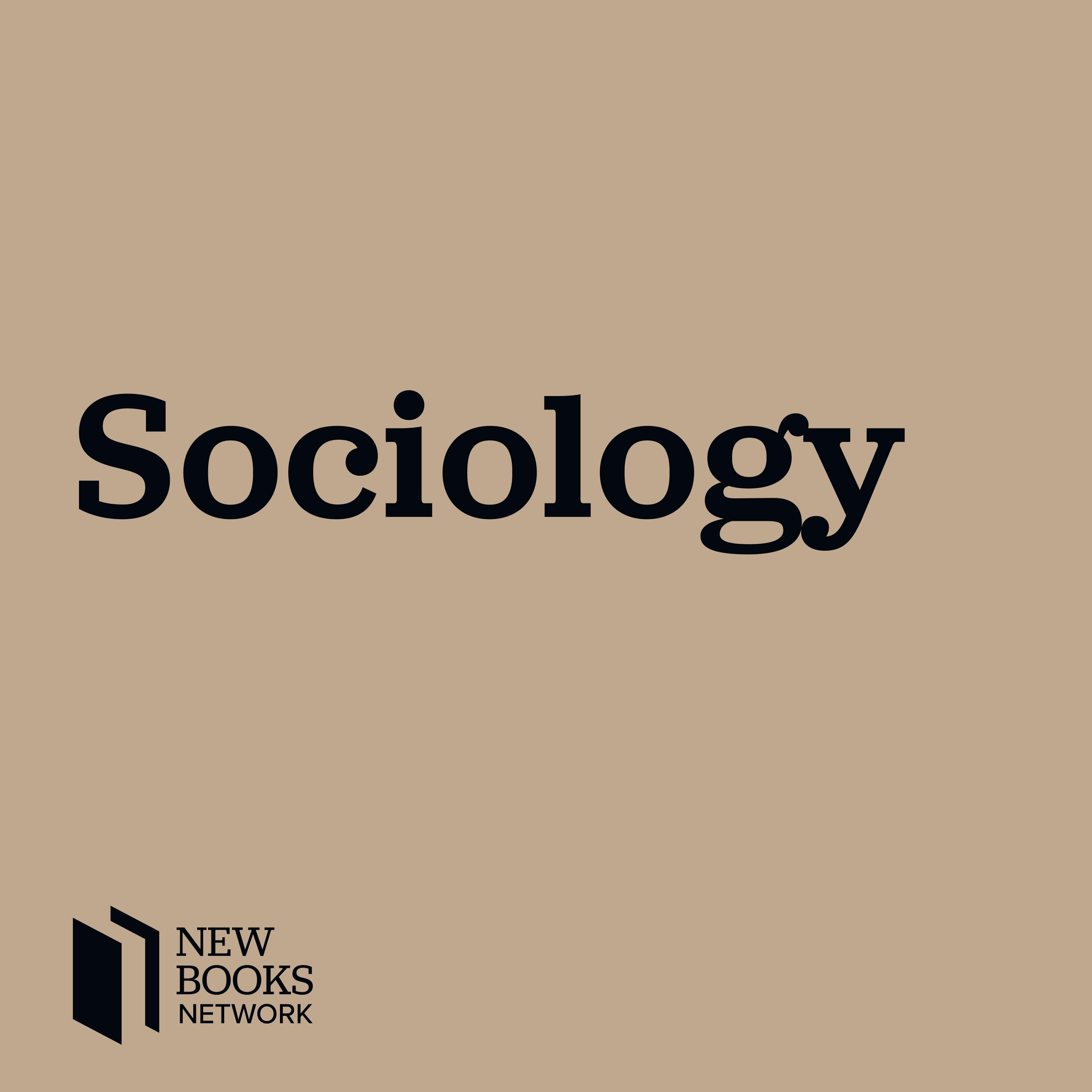 New Books in SociologyAI, Post-Truth, and Cultural TransformationIn this episode of International Horizons, RBI director John Torpey talks with economists Luciana Lazzaretti and Stefania Oliva of the University of Florence about the role of artificial intelligence in contemporary cultural transformation. The authors discuss the genesis of computer culture from the garages of California hippies who dreamed of a changed world and unexpectedly unleashed the forces of science and art for the sake of entrepreneurship. Moving forward, the authors discuss the nature of a “post-truth” world and how the many faces of reality can converge towards the truth. Finally, Lazaretti and Oliva address the need to foster crit...2023-10-1641 min
New Books in SociologyAI, Post-Truth, and Cultural TransformationIn this episode of International Horizons, RBI director John Torpey talks with economists Luciana Lazzaretti and Stefania Oliva of the University of Florence about the role of artificial intelligence in contemporary cultural transformation. The authors discuss the genesis of computer culture from the garages of California hippies who dreamed of a changed world and unexpectedly unleashed the forces of science and art for the sake of entrepreneurship. Moving forward, the authors discuss the nature of a “post-truth” world and how the many faces of reality can converge towards the truth. Finally, Lazaretti and Oliva address the need to foster crit...2023-10-1641 min New Books in EconomicsAI, Post-Truth, and Cultural TransformationIn this episode of International Horizons, RBI director John Torpey talks with economists Luciana Lazzaretti and Stefania Oliva of the University of Florence about the role of artificial intelligence in contemporary cultural transformation. The authors discuss the genesis of computer culture from the garages of California hippies who dreamed of a changed world and unexpectedly unleashed the forces of science and art for the sake of entrepreneurship. Moving forward, the authors discuss the nature of a “post-truth” world and how the many faces of reality can converge towards the truth. Finally, Lazaretti and Oliva address the need to foster crit...2023-10-1641 min
New Books in EconomicsAI, Post-Truth, and Cultural TransformationIn this episode of International Horizons, RBI director John Torpey talks with economists Luciana Lazzaretti and Stefania Oliva of the University of Florence about the role of artificial intelligence in contemporary cultural transformation. The authors discuss the genesis of computer culture from the garages of California hippies who dreamed of a changed world and unexpectedly unleashed the forces of science and art for the sake of entrepreneurship. Moving forward, the authors discuss the nature of a “post-truth” world and how the many faces of reality can converge towards the truth. Finally, Lazaretti and Oliva address the need to foster crit...2023-10-1641 min New Books in Economic and Business HistoryAI, Post-Truth, and Cultural TransformationIn this episode of International Horizons, RBI director John Torpey talks with economists Luciana Lazzaretti and Stefania Oliva of the University of Florence about the role of artificial intelligence in contemporary cultural transformation. The authors discuss the genesis of computer culture from the garages of California hippies who dreamed of a changed world and unexpectedly unleashed the forces of science and art for the sake of entrepreneurship. Moving forward, the authors discuss the nature of a “post-truth” world and how the many faces of reality can converge towards the truth. Finally, Lazaretti and Oliva address the need to foster crit...2023-10-1641 min
New Books in Economic and Business HistoryAI, Post-Truth, and Cultural TransformationIn this episode of International Horizons, RBI director John Torpey talks with economists Luciana Lazzaretti and Stefania Oliva of the University of Florence about the role of artificial intelligence in contemporary cultural transformation. The authors discuss the genesis of computer culture from the garages of California hippies who dreamed of a changed world and unexpectedly unleashed the forces of science and art for the sake of entrepreneurship. Moving forward, the authors discuss the nature of a “post-truth” world and how the many faces of reality can converge towards the truth. Finally, Lazaretti and Oliva address the need to foster crit...2023-10-1641 min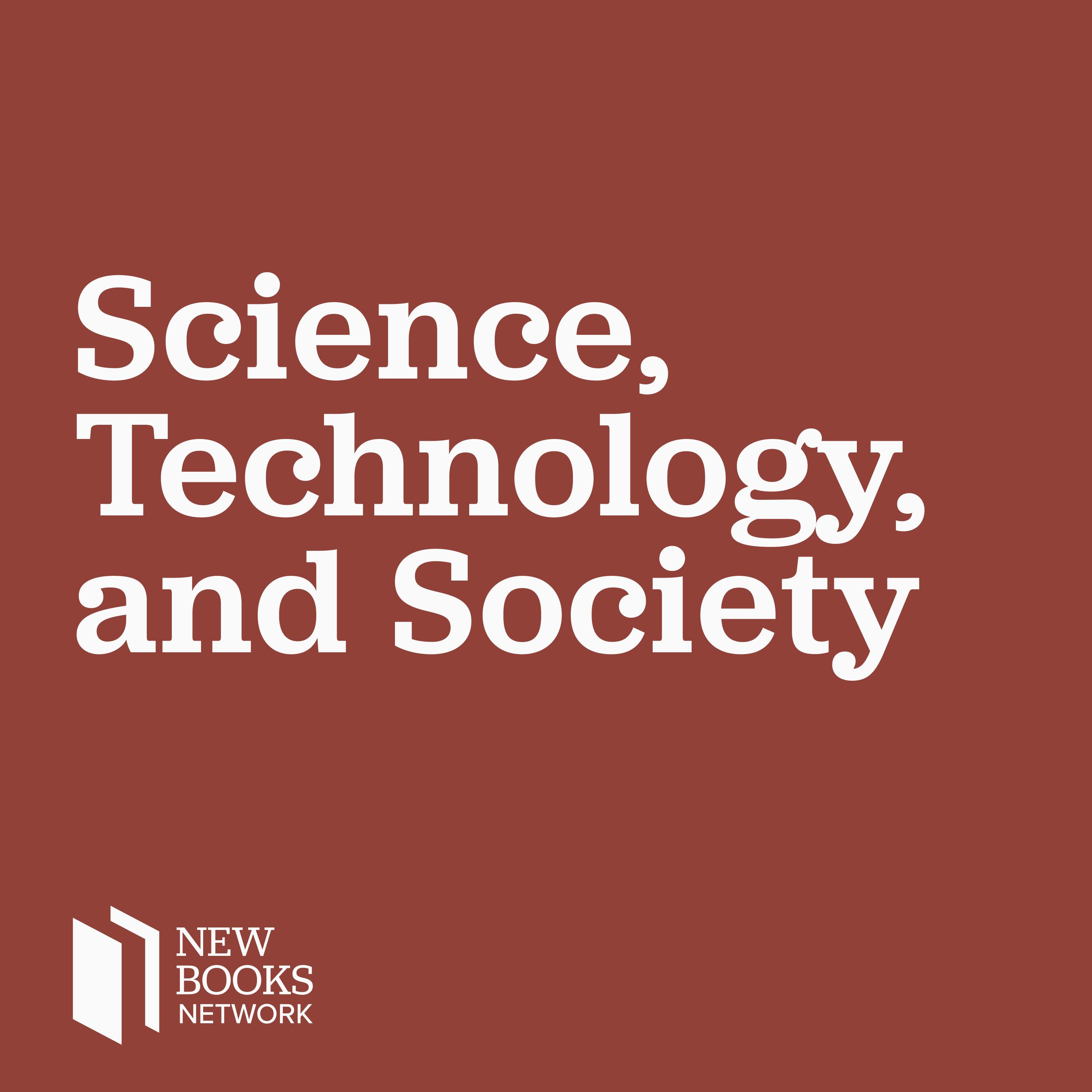 New Books in Science, Technology, and SocietyAI, Post-Truth, and Cultural TransformationIn this episode of International Horizons, RBI director John Torpey talks with economists Luciana Lazzaretti and Stefania Oliva of the University of Florence about the role of artificial intelligence in contemporary cultural transformation. The authors discuss the genesis of computer culture from the garages of California hippies who dreamed of a changed world and unexpectedly unleashed the forces of science and art for the sake of entrepreneurship. Moving forward, the authors discuss the nature of a “post-truth” world and how the many faces of reality can converge towards the truth. Finally, Lazaretti and Oliva address the need to foster crit...2023-10-1641 min
New Books in Science, Technology, and SocietyAI, Post-Truth, and Cultural TransformationIn this episode of International Horizons, RBI director John Torpey talks with economists Luciana Lazzaretti and Stefania Oliva of the University of Florence about the role of artificial intelligence in contemporary cultural transformation. The authors discuss the genesis of computer culture from the garages of California hippies who dreamed of a changed world and unexpectedly unleashed the forces of science and art for the sake of entrepreneurship. Moving forward, the authors discuss the nature of a “post-truth” world and how the many faces of reality can converge towards the truth. Finally, Lazaretti and Oliva address the need to foster crit...2023-10-1641 min New Books in TechnologyAI, Post-Truth, and Cultural TransformationIn this episode of International Horizons, RBI director John Torpey talks with economists Luciana Lazzaretti and Stefania Oliva of the University of Florence about the role of artificial intelligence in contemporary cultural transformation. The authors discuss the genesis of computer culture from the garages of California hippies who dreamed of a changed world and unexpectedly unleashed the forces of science and art for the sake of entrepreneurship. Moving forward, the authors discuss the nature of a “post-truth” world and how the many faces of reality can converge towards the truth. Finally, Lazaretti and Oliva address the need to foster crit...2023-10-1641 min
New Books in TechnologyAI, Post-Truth, and Cultural TransformationIn this episode of International Horizons, RBI director John Torpey talks with economists Luciana Lazzaretti and Stefania Oliva of the University of Florence about the role of artificial intelligence in contemporary cultural transformation. The authors discuss the genesis of computer culture from the garages of California hippies who dreamed of a changed world and unexpectedly unleashed the forces of science and art for the sake of entrepreneurship. Moving forward, the authors discuss the nature of a “post-truth” world and how the many faces of reality can converge towards the truth. Finally, Lazaretti and Oliva address the need to foster crit...2023-10-1641 min New Books in Political ScienceResentment: The Complexity of an Emotion and its Effect on PoliticsIn this episode of International Horizons, RBI director John Torpey interviews Rob Schneider, Professor of History at Indiana University-Bloomington, about the political effects of resentment. Schneider begins by discussing the psychological complexity of resentment and then delves into its understanding by other authors such as Nietzsche and its relationship with Catholicism. Moving forward, Schneider discusses how resentment is related to identity politics and how some sectors of the population have been neglected on the basis of the claim that they are privileged. Finally, he elaborates on the making of forgiveness in divided societies and how it is often imposed...2023-10-1039 min
New Books in Political ScienceResentment: The Complexity of an Emotion and its Effect on PoliticsIn this episode of International Horizons, RBI director John Torpey interviews Rob Schneider, Professor of History at Indiana University-Bloomington, about the political effects of resentment. Schneider begins by discussing the psychological complexity of resentment and then delves into its understanding by other authors such as Nietzsche and its relationship with Catholicism. Moving forward, Schneider discusses how resentment is related to identity politics and how some sectors of the population have been neglected on the basis of the claim that they are privileged. Finally, he elaborates on the making of forgiveness in divided societies and how it is often imposed...2023-10-1039 min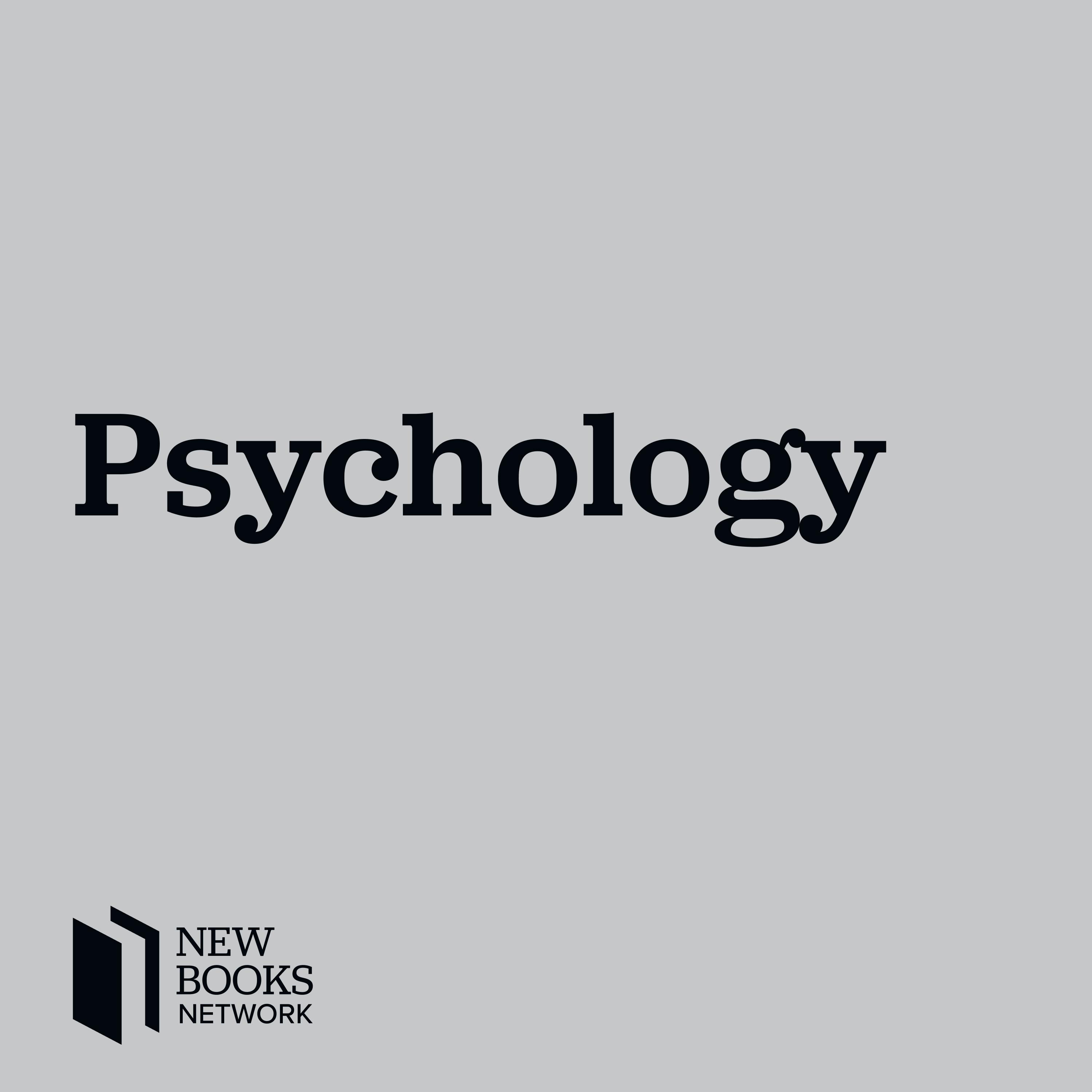 New Books in PsychologyResentment: The Complexity of an Emotion and its Effect on PoliticsIn this episode of International Horizons, RBI director John Torpey interviews Rob Schneider, Professor of History at Indiana University-Bloomington, about the political effects of resentment. Schneider begins by discussing the psychological complexity of resentment and then delves into its understanding by other authors such as Nietzsche and its relationship with Catholicism. Moving forward, Schneider discusses how resentment is related to identity politics and how some sectors of the population have been neglected on the basis of the claim that they are privileged. Finally, he elaborates on the making of forgiveness in divided societies and how it is often imposed...2023-10-1039 min
New Books in PsychologyResentment: The Complexity of an Emotion and its Effect on PoliticsIn this episode of International Horizons, RBI director John Torpey interviews Rob Schneider, Professor of History at Indiana University-Bloomington, about the political effects of resentment. Schneider begins by discussing the psychological complexity of resentment and then delves into its understanding by other authors such as Nietzsche and its relationship with Catholicism. Moving forward, Schneider discusses how resentment is related to identity politics and how some sectors of the population have been neglected on the basis of the claim that they are privileged. Finally, he elaborates on the making of forgiveness in divided societies and how it is often imposed...2023-10-1039 min New Books in World AffairsResentment: The Complexity of an Emotion and its Effect on PoliticsIn this episode of International Horizons, RBI director John Torpey interviews Rob Schneider, Professor of History at Indiana University-Bloomington, about the political effects of resentment. Schneider begins by discussing the psychological complexity of resentment and then delves into its understanding by other authors such as Nietzsche and its relationship with Catholicism. Moving forward, Schneider discusses how resentment is related to identity politics and how some sectors of the population have been neglected on the basis of the claim that they are privileged. Finally, he elaborates on the making of forgiveness in divided societies and how it is often imposed...2023-10-1039 min
New Books in World AffairsResentment: The Complexity of an Emotion and its Effect on PoliticsIn this episode of International Horizons, RBI director John Torpey interviews Rob Schneider, Professor of History at Indiana University-Bloomington, about the political effects of resentment. Schneider begins by discussing the psychological complexity of resentment and then delves into its understanding by other authors such as Nietzsche and its relationship with Catholicism. Moving forward, Schneider discusses how resentment is related to identity politics and how some sectors of the population have been neglected on the basis of the claim that they are privileged. Finally, he elaborates on the making of forgiveness in divided societies and how it is often imposed...2023-10-1039 min New Books in SociologyResentment: The Complexity of an Emotion and its Effect on PoliticsIn this episode of International Horizons, RBI director John Torpey interviews Rob Schneider, Professor of History at Indiana University-Bloomington, about the political effects of resentment. Schneider begins by discussing the psychological complexity of resentment and then delves into its understanding by other authors such as Nietzsche and its relationship with Catholicism. Moving forward, Schneider discusses how resentment is related to identity politics and how some sectors of the population have been neglected on the basis of the claim that they are privileged. Finally, he elaborates on the making of forgiveness in divided societies and how it is often imposed...2023-10-1039 min
New Books in SociologyResentment: The Complexity of an Emotion and its Effect on PoliticsIn this episode of International Horizons, RBI director John Torpey interviews Rob Schneider, Professor of History at Indiana University-Bloomington, about the political effects of resentment. Schneider begins by discussing the psychological complexity of resentment and then delves into its understanding by other authors such as Nietzsche and its relationship with Catholicism. Moving forward, Schneider discusses how resentment is related to identity politics and how some sectors of the population have been neglected on the basis of the claim that they are privileged. Finally, he elaborates on the making of forgiveness in divided societies and how it is often imposed...2023-10-1039 min New Books in Diplomatic HistoryShould We Be Optimistic About Global Governance?This week on International Horizons, RBI director John Torpey interviewed Richard Gowan, UN director of the International Crisis Group. Gowan discusses the different views of the UN on the occasion of the annual meeting of the General Assembly. The absence of a number of key figures was widely noted, but most major world leaders, such as Biden, Scholz, and Lula did attend. Gowan also commented on the power dissemination taking place in global governance, as other organizations such as the G20, G7 and BRICS are gaining importance. Finally, Gowan recognized the challenges that the UN General Assembly has in...2023-10-0230 min
New Books in Diplomatic HistoryShould We Be Optimistic About Global Governance?This week on International Horizons, RBI director John Torpey interviewed Richard Gowan, UN director of the International Crisis Group. Gowan discusses the different views of the UN on the occasion of the annual meeting of the General Assembly. The absence of a number of key figures was widely noted, but most major world leaders, such as Biden, Scholz, and Lula did attend. Gowan also commented on the power dissemination taking place in global governance, as other organizations such as the G20, G7 and BRICS are gaining importance. Finally, Gowan recognized the challenges that the UN General Assembly has in...2023-10-0230 min New Books in Political ScienceShould We Be Optimistic About Global Governance?This week on International Horizons, RBI director John Torpey interviewed Richard Gowan, UN director of the International Crisis Group. Gowan discusses the different views of the UN on the occasion of the annual meeting of the General Assembly. The absence of a number of key figures was widely noted, but most major world leaders, such as Biden, Scholz, and Lula did attend. Gowan also commented on the power dissemination taking place in global governance, as other organizations such as the G20, G7 and BRICS are gaining importance. Finally, Gowan recognized the challenges that the UN General Assembly has in...2023-10-0230 min
New Books in Political ScienceShould We Be Optimistic About Global Governance?This week on International Horizons, RBI director John Torpey interviewed Richard Gowan, UN director of the International Crisis Group. Gowan discusses the different views of the UN on the occasion of the annual meeting of the General Assembly. The absence of a number of key figures was widely noted, but most major world leaders, such as Biden, Scholz, and Lula did attend. Gowan also commented on the power dissemination taking place in global governance, as other organizations such as the G20, G7 and BRICS are gaining importance. Finally, Gowan recognized the challenges that the UN General Assembly has in...2023-10-0230 min New Books in World AffairsShould We Be Optimistic About Global Governance?This week on International Horizons, RBI director John Torpey interviewed Richard Gowan, UN director of the International Crisis Group. Gowan discusses the different views of the UN on the occasion of the annual meeting of the General Assembly. The absence of a number of key figures was widely noted, but most major world leaders, such as Biden, Scholz, and Lula did attend. Gowan also commented on the power dissemination taking place in global governance, as other organizations such as the G20, G7 and BRICS are gaining importance. Finally, Gowan recognized the challenges that the UN General Assembly has in...2023-10-0230 min
New Books in World AffairsShould We Be Optimistic About Global Governance?This week on International Horizons, RBI director John Torpey interviewed Richard Gowan, UN director of the International Crisis Group. Gowan discusses the different views of the UN on the occasion of the annual meeting of the General Assembly. The absence of a number of key figures was widely noted, but most major world leaders, such as Biden, Scholz, and Lula did attend. Gowan also commented on the power dissemination taking place in global governance, as other organizations such as the G20, G7 and BRICS are gaining importance. Finally, Gowan recognized the challenges that the UN General Assembly has in...2023-10-0230 min New Books in Economic and Business HistoryGlobal Inequality: Are We Really Measuring What We Should Be Measuring?In this episode of International Horizons, RBI director John Torpey interviewed Jayati Ghosh, professor of economics at the University of Massachusetts at Amherst, about different debates surrounding inequality. Ghosh criticizes the flaws in some inequality indicators that are focusing only on measuring how the poor are doing and not on how the rich are getting richer, or other indicators that exaggerate the performance of the poorest vis-a-vis the richest. Other indicators such as nutrition are misleading, she argues, because governments are focusing on what people are eating and not on the outcomes such as body mass index, anemia or d...2023-09-1843 min
New Books in Economic and Business HistoryGlobal Inequality: Are We Really Measuring What We Should Be Measuring?In this episode of International Horizons, RBI director John Torpey interviewed Jayati Ghosh, professor of economics at the University of Massachusetts at Amherst, about different debates surrounding inequality. Ghosh criticizes the flaws in some inequality indicators that are focusing only on measuring how the poor are doing and not on how the rich are getting richer, or other indicators that exaggerate the performance of the poorest vis-a-vis the richest. Other indicators such as nutrition are misleading, she argues, because governments are focusing on what people are eating and not on the outcomes such as body mass index, anemia or d...2023-09-1843 min New Books in Critical TheoryGlobal Inequality: Are We Really Measuring What We Should Be Measuring?In this episode of International Horizons, RBI director John Torpey interviewed Jayati Ghosh, professor of economics at the University of Massachusetts at Amherst, about different debates surrounding inequality. Ghosh criticizes the flaws in some inequality indicators that are focusing only on measuring how the poor are doing and not on how the rich are getting richer, or other indicators that exaggerate the performance of the poorest vis-a-vis the richest. Other indicators such as nutrition are misleading, she argues, because governments are focusing on what people are eating and not on the outcomes such as body mass index, anemia or d...2023-09-1843 min
New Books in Critical TheoryGlobal Inequality: Are We Really Measuring What We Should Be Measuring?In this episode of International Horizons, RBI director John Torpey interviewed Jayati Ghosh, professor of economics at the University of Massachusetts at Amherst, about different debates surrounding inequality. Ghosh criticizes the flaws in some inequality indicators that are focusing only on measuring how the poor are doing and not on how the rich are getting richer, or other indicators that exaggerate the performance of the poorest vis-a-vis the richest. Other indicators such as nutrition are misleading, she argues, because governments are focusing on what people are eating and not on the outcomes such as body mass index, anemia or d...2023-09-1843 min New Books in EconomicsGlobal Inequality: Are We Really Measuring What We Should Be Measuring?In this episode of International Horizons, RBI director John Torpey interviewed Jayati Ghosh, professor of economics at the University of Massachusetts at Amherst, about different debates surrounding inequality. Ghosh criticizes the flaws in some inequality indicators that are focusing only on measuring how the poor are doing and not on how the rich are getting richer, or other indicators that exaggerate the performance of the poorest vis-a-vis the richest. Other indicators such as nutrition are misleading, she argues, because governments are focusing on what people are eating and not on the outcomes such as body mass index, anemia or d...2023-09-1843 min
New Books in EconomicsGlobal Inequality: Are We Really Measuring What We Should Be Measuring?In this episode of International Horizons, RBI director John Torpey interviewed Jayati Ghosh, professor of economics at the University of Massachusetts at Amherst, about different debates surrounding inequality. Ghosh criticizes the flaws in some inequality indicators that are focusing only on measuring how the poor are doing and not on how the rich are getting richer, or other indicators that exaggerate the performance of the poorest vis-a-vis the richest. Other indicators such as nutrition are misleading, she argues, because governments are focusing on what people are eating and not on the outcomes such as body mass index, anemia or d...2023-09-1843 min New Books in SociologyGlobal Inequality: Are We Really Measuring What We Should Be Measuring?In this episode of International Horizons, RBI director John Torpey interviewed Jayati Ghosh, professor of economics at the University of Massachusetts at Amherst, about different debates surrounding inequality. Ghosh criticizes the flaws in some inequality indicators that are focusing only on measuring how the poor are doing and not on how the rich are getting richer, or other indicators that exaggerate the performance of the poorest vis-a-vis the richest. Other indicators such as nutrition are misleading, she argues, because governments are focusing on what people are eating and not on the outcomes such as body mass index, anemia or d...2023-09-1843 min
New Books in SociologyGlobal Inequality: Are We Really Measuring What We Should Be Measuring?In this episode of International Horizons, RBI director John Torpey interviewed Jayati Ghosh, professor of economics at the University of Massachusetts at Amherst, about different debates surrounding inequality. Ghosh criticizes the flaws in some inequality indicators that are focusing only on measuring how the poor are doing and not on how the rich are getting richer, or other indicators that exaggerate the performance of the poorest vis-a-vis the richest. Other indicators such as nutrition are misleading, she argues, because governments are focusing on what people are eating and not on the outcomes such as body mass index, anemia or d...2023-09-1843 min New Books in World AffairsGlobal Inequality: Are We Really Measuring What We Should Be Measuring?In this episode of International Horizons, RBI director John Torpey interviewed Jayati Ghosh, professor of economics at the University of Massachusetts at Amherst, about different debates surrounding inequality. Ghosh criticizes the flaws in some inequality indicators that are focusing only on measuring how the poor are doing and not on how the rich are getting richer, or other indicators that exaggerate the performance of the poorest vis-a-vis the richest. Other indicators such as nutrition are misleading, she argues, because governments are focusing on what people are eating and not on the outcomes such as body mass index, anemia or d...2023-09-1843 min
New Books in World AffairsGlobal Inequality: Are We Really Measuring What We Should Be Measuring?In this episode of International Horizons, RBI director John Torpey interviewed Jayati Ghosh, professor of economics at the University of Massachusetts at Amherst, about different debates surrounding inequality. Ghosh criticizes the flaws in some inequality indicators that are focusing only on measuring how the poor are doing and not on how the rich are getting richer, or other indicators that exaggerate the performance of the poorest vis-a-vis the richest. Other indicators such as nutrition are misleading, she argues, because governments are focusing on what people are eating and not on the outcomes such as body mass index, anemia or d...2023-09-1843 min New Books in Political ScienceIndia, a Non-Aligned Member of the International System?We kick off our Fall 2023 season of International Horizons with Upendra Choudhury from Aligarh Muslim University discussing the role of India in the contemporary international system. Prof. Choudhury argues that India’s vision of a multipolar world order consists of acting as a balancing mediator between the traditional West and a rising China. In that sense, Choudhury claims that India cannot afford not to participate in different multilateral organizations such as the BRICS+, the Shanghai Cooperation Organization, and I2U2 because it carries an important role in stabilizing the world order. Choudhury also introduces the three lines of thought in...2023-09-1133 min
New Books in Political ScienceIndia, a Non-Aligned Member of the International System?We kick off our Fall 2023 season of International Horizons with Upendra Choudhury from Aligarh Muslim University discussing the role of India in the contemporary international system. Prof. Choudhury argues that India’s vision of a multipolar world order consists of acting as a balancing mediator between the traditional West and a rising China. In that sense, Choudhury claims that India cannot afford not to participate in different multilateral organizations such as the BRICS+, the Shanghai Cooperation Organization, and I2U2 because it carries an important role in stabilizing the world order. Choudhury also introduces the three lines of thought in...2023-09-1133 min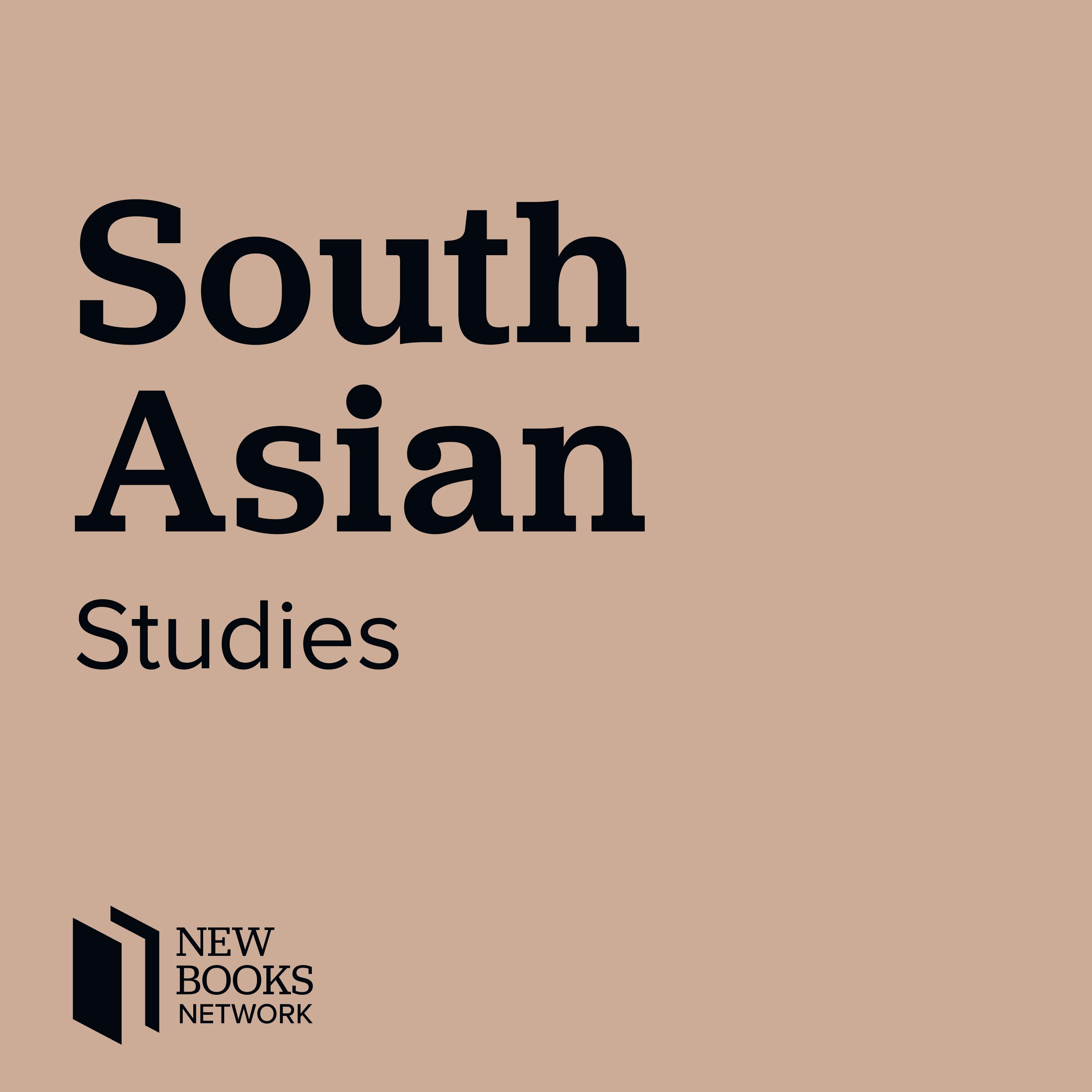 New Books in South Asian StudiesIndia, a Non-Aligned Member of the International System?We kick off our Fall 2023 season of International Horizons with Upendra Choudhury from Aligarh Muslim University discussing the role of India in the contemporary international system. Prof. Choudhury argues that India’s vision of a multipolar world order consists of acting as a balancing mediator between the traditional West and a rising China. In that sense, Choudhury claims that India cannot afford not to participate in different multilateral organizations such as the BRICS+, the Shanghai Cooperation Organization, and I2U2 because it carries an important role in stabilizing the world order. Choudhury also introduces the three lines of thought in...2023-09-1133 min
New Books in South Asian StudiesIndia, a Non-Aligned Member of the International System?We kick off our Fall 2023 season of International Horizons with Upendra Choudhury from Aligarh Muslim University discussing the role of India in the contemporary international system. Prof. Choudhury argues that India’s vision of a multipolar world order consists of acting as a balancing mediator between the traditional West and a rising China. In that sense, Choudhury claims that India cannot afford not to participate in different multilateral organizations such as the BRICS+, the Shanghai Cooperation Organization, and I2U2 because it carries an important role in stabilizing the world order. Choudhury also introduces the three lines of thought in...2023-09-1133 min New Books in World AffairsIndia, a Non-Aligned Member of the International System?We kick off our Fall 2023 season of International Horizons with Upendra Choudhury from Aligarh Muslim University discussing the role of India in the contemporary international system. Prof. Choudhury argues that India’s vision of a multipolar world order consists of acting as a balancing mediator between the traditional West and a rising China. In that sense, Choudhury claims that India cannot afford not to participate in different multilateral organizations such as the BRICS+, the Shanghai Cooperation Organization, and I2U2 because it carries an important role in stabilizing the world order. Choudhury also introduces the three lines of thought in...2023-09-1133 min
New Books in World AffairsIndia, a Non-Aligned Member of the International System?We kick off our Fall 2023 season of International Horizons with Upendra Choudhury from Aligarh Muslim University discussing the role of India in the contemporary international system. Prof. Choudhury argues that India’s vision of a multipolar world order consists of acting as a balancing mediator between the traditional West and a rising China. In that sense, Choudhury claims that India cannot afford not to participate in different multilateral organizations such as the BRICS+, the Shanghai Cooperation Organization, and I2U2 because it carries an important role in stabilizing the world order. Choudhury also introduces the three lines of thought in...2023-09-1133 min New Books in Diplomatic HistoryIndia, a Non-Aligned Member of the International System?We kick off our Fall 2023 season of International Horizons with Upendra Choudhury from Aligarh Muslim University discussing the role of India in the contemporary international system. Prof. Choudhury argues that India’s vision of a multipolar world order consists of acting as a balancing mediator between the traditional West and a rising China. In that sense, Choudhury claims that India cannot afford not to participate in different multilateral organizations such as the BRICS+, the Shanghai Cooperation Organization, and I2U2 because it carries an important role in stabilizing the world order. Choudhury also introduces the three lines of thought in...2023-09-1133 min
New Books in Diplomatic HistoryIndia, a Non-Aligned Member of the International System?We kick off our Fall 2023 season of International Horizons with Upendra Choudhury from Aligarh Muslim University discussing the role of India in the contemporary international system. Prof. Choudhury argues that India’s vision of a multipolar world order consists of acting as a balancing mediator between the traditional West and a rising China. In that sense, Choudhury claims that India cannot afford not to participate in different multilateral organizations such as the BRICS+, the Shanghai Cooperation Organization, and I2U2 because it carries an important role in stabilizing the world order. Choudhury also introduces the three lines of thought in...2023-09-1133 min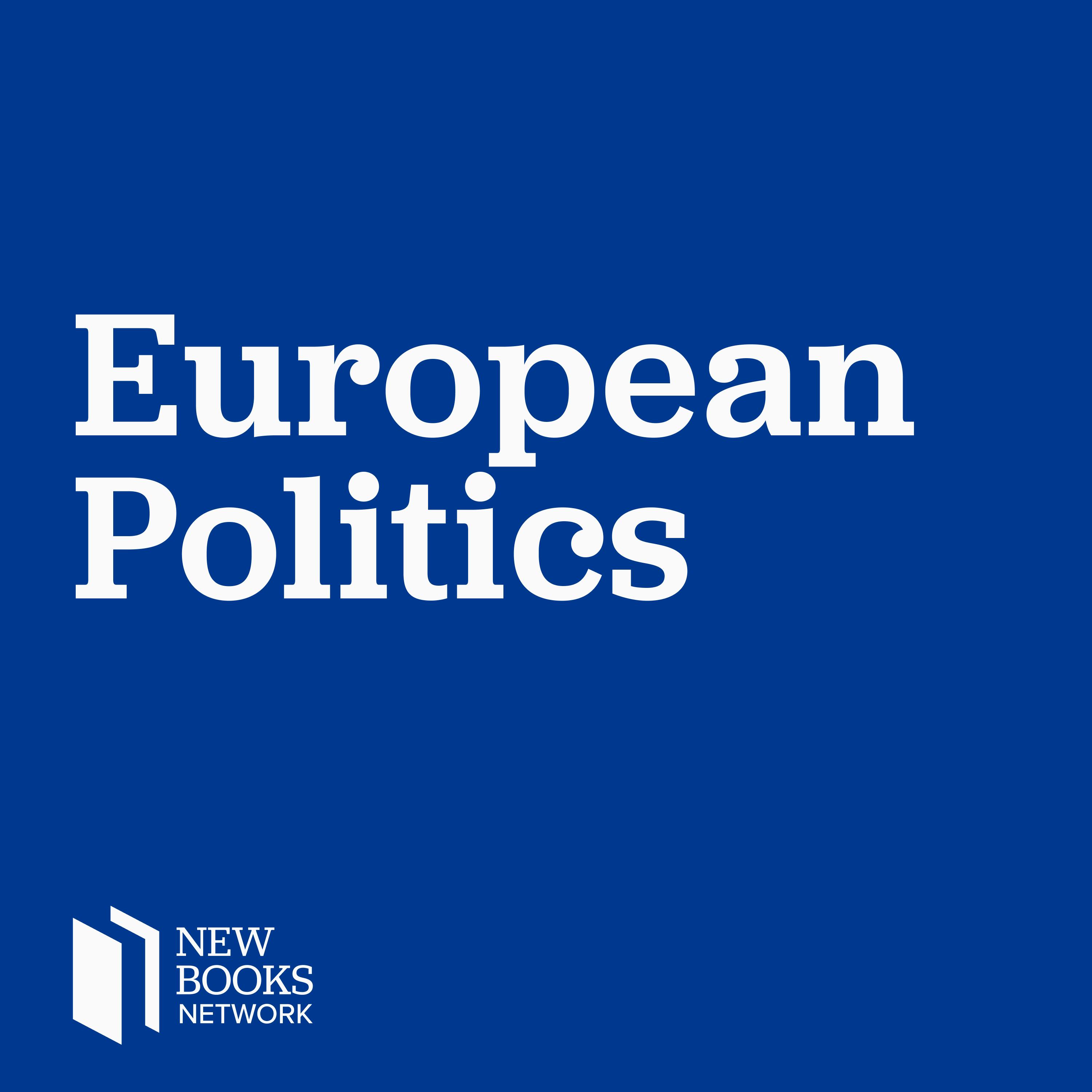 New Books in European PoliticsWhy do Transatlantic Relations Matter?This week on International Horizons, we present RBI's director John Torpey's interview with David Gill, General Consul of Germany, in New York to celebrate the 2023 Otto and Frank Walter Memorial Lecture. The conversation goes explaining the term “Zeitenwende” and what that entails for Germans, its history and how the military approach of Germany came to a new era. David Gill also discusses the effects of the historical division East-West in Germany in modern day politics, the position of Germany in the Russian War on Ukraine, the recent events in transatlantic relations and the importance of cooperation between US and Germ...2023-04-2441 min
New Books in European PoliticsWhy do Transatlantic Relations Matter?This week on International Horizons, we present RBI's director John Torpey's interview with David Gill, General Consul of Germany, in New York to celebrate the 2023 Otto and Frank Walter Memorial Lecture. The conversation goes explaining the term “Zeitenwende” and what that entails for Germans, its history and how the military approach of Germany came to a new era. David Gill also discusses the effects of the historical division East-West in Germany in modern day politics, the position of Germany in the Russian War on Ukraine, the recent events in transatlantic relations and the importance of cooperation between US and Germ...2023-04-2441 min New Books in Political ScienceWhy do Transatlantic Relations Matter?This week on International Horizons, we present RBI's director John Torpey's interview with David Gill, General Consul of Germany, in New York to celebrate the 2023 Otto and Frank Walter Memorial Lecture. The conversation goes explaining the term “Zeitenwende” and what that entails for Germans, its history and how the military approach of Germany came to a new era. David Gill also discusses the effects of the historical division East-West in Germany in modern day politics, the position of Germany in the Russian War on Ukraine, the recent events in transatlantic relations and the importance of cooperation between US and Germ...2023-04-2441 min
New Books in Political ScienceWhy do Transatlantic Relations Matter?This week on International Horizons, we present RBI's director John Torpey's interview with David Gill, General Consul of Germany, in New York to celebrate the 2023 Otto and Frank Walter Memorial Lecture. The conversation goes explaining the term “Zeitenwende” and what that entails for Germans, its history and how the military approach of Germany came to a new era. David Gill also discusses the effects of the historical division East-West in Germany in modern day politics, the position of Germany in the Russian War on Ukraine, the recent events in transatlantic relations and the importance of cooperation between US and Germ...2023-04-2441 min New Books in Diplomatic HistoryWhy do Transatlantic Relations Matter?This week on International Horizons, we present RBI's director John Torpey's interview with David Gill, General Consul of Germany, in New York to celebrate the 2023 Otto and Frank Walter Memorial Lecture. The conversation goes explaining the term “Zeitenwende” and what that entails for Germans, its history and how the military approach of Germany came to a new era. David Gill also discusses the effects of the historical division East-West in Germany in modern day politics, the position of Germany in the Russian War on Ukraine, the recent events in transatlantic relations and the importance of cooperation between US and Germ...2023-04-2441 min
New Books in Diplomatic HistoryWhy do Transatlantic Relations Matter?This week on International Horizons, we present RBI's director John Torpey's interview with David Gill, General Consul of Germany, in New York to celebrate the 2023 Otto and Frank Walter Memorial Lecture. The conversation goes explaining the term “Zeitenwende” and what that entails for Germans, its history and how the military approach of Germany came to a new era. David Gill also discusses the effects of the historical division East-West in Germany in modern day politics, the position of Germany in the Russian War on Ukraine, the recent events in transatlantic relations and the importance of cooperation between US and Germ...2023-04-2441 min New Books in World AffairsWhy do Transatlantic Relations Matter?This week on International Horizons, we present RBI's director John Torpey's interview with David Gill, General Consul of Germany, in New York to celebrate the 2023 Otto and Frank Walter Memorial Lecture. The conversation goes explaining the term “Zeitenwende” and what that entails for Germans, its history and how the military approach of Germany came to a new era. David Gill also discusses the effects of the historical division East-West in Germany in modern day politics, the position of Germany in the Russian War on Ukraine, the recent events in transatlantic relations and the importance of cooperation between US and Germ...2023-04-2441 min
New Books in World AffairsWhy do Transatlantic Relations Matter?This week on International Horizons, we present RBI's director John Torpey's interview with David Gill, General Consul of Germany, in New York to celebrate the 2023 Otto and Frank Walter Memorial Lecture. The conversation goes explaining the term “Zeitenwende” and what that entails for Germans, its history and how the military approach of Germany came to a new era. David Gill also discusses the effects of the historical division East-West in Germany in modern day politics, the position of Germany in the Russian War on Ukraine, the recent events in transatlantic relations and the importance of cooperation between US and Germ...2023-04-2441 min New Books in German StudiesWhy do Transatlantic Relations Matter?This week on International Horizons, we present RBI's director John Torpey's interview with David Gill, General Consul of Germany, in New York to celebrate the 2023 Otto and Frank Walter Memorial Lecture. The conversation goes explaining the term “Zeitenwende” and what that entails for Germans, its history and how the military approach of Germany came to a new era. David Gill also discusses the effects of the historical division East-West in Germany in modern day politics, the position of Germany in the Russian War on Ukraine, the recent events in transatlantic relations and the importance of cooperation between US and Germ...2023-04-2441 min
New Books in German StudiesWhy do Transatlantic Relations Matter?This week on International Horizons, we present RBI's director John Torpey's interview with David Gill, General Consul of Germany, in New York to celebrate the 2023 Otto and Frank Walter Memorial Lecture. The conversation goes explaining the term “Zeitenwende” and what that entails for Germans, its history and how the military approach of Germany came to a new era. David Gill also discusses the effects of the historical division East-West in Germany in modern day politics, the position of Germany in the Russian War on Ukraine, the recent events in transatlantic relations and the importance of cooperation between US and Germ...2023-04-2441 min New Books in Diplomatic HistoryTwo Wrongs Don't Make a Right but... US Lies and Media Reporting in the 2003 Iraq WarIn this episode of International Horizons, journalist and UN director of Human Rights Watch Louis Charbonneau describes the US's government misinformation campaign to justify its invasion of Iraq in 2003 and its aftermath. Charbonneau also discusses the role of media in the lack of questioning of the information they were spreading and contrasts it with the right practices journalists should conduct in their reporting. Finally, the interviewee talks about the consequences of lies from an official source in the spread of fake news, and how the government's actions in 2002 are being used by Russia to respond to the US's criticisms of...2023-03-2737 min
New Books in Diplomatic HistoryTwo Wrongs Don't Make a Right but... US Lies and Media Reporting in the 2003 Iraq WarIn this episode of International Horizons, journalist and UN director of Human Rights Watch Louis Charbonneau describes the US's government misinformation campaign to justify its invasion of Iraq in 2003 and its aftermath. Charbonneau also discusses the role of media in the lack of questioning of the information they were spreading and contrasts it with the right practices journalists should conduct in their reporting. Finally, the interviewee talks about the consequences of lies from an official source in the spread of fake news, and how the government's actions in 2002 are being used by Russia to respond to the US's criticisms of...2023-03-2737 min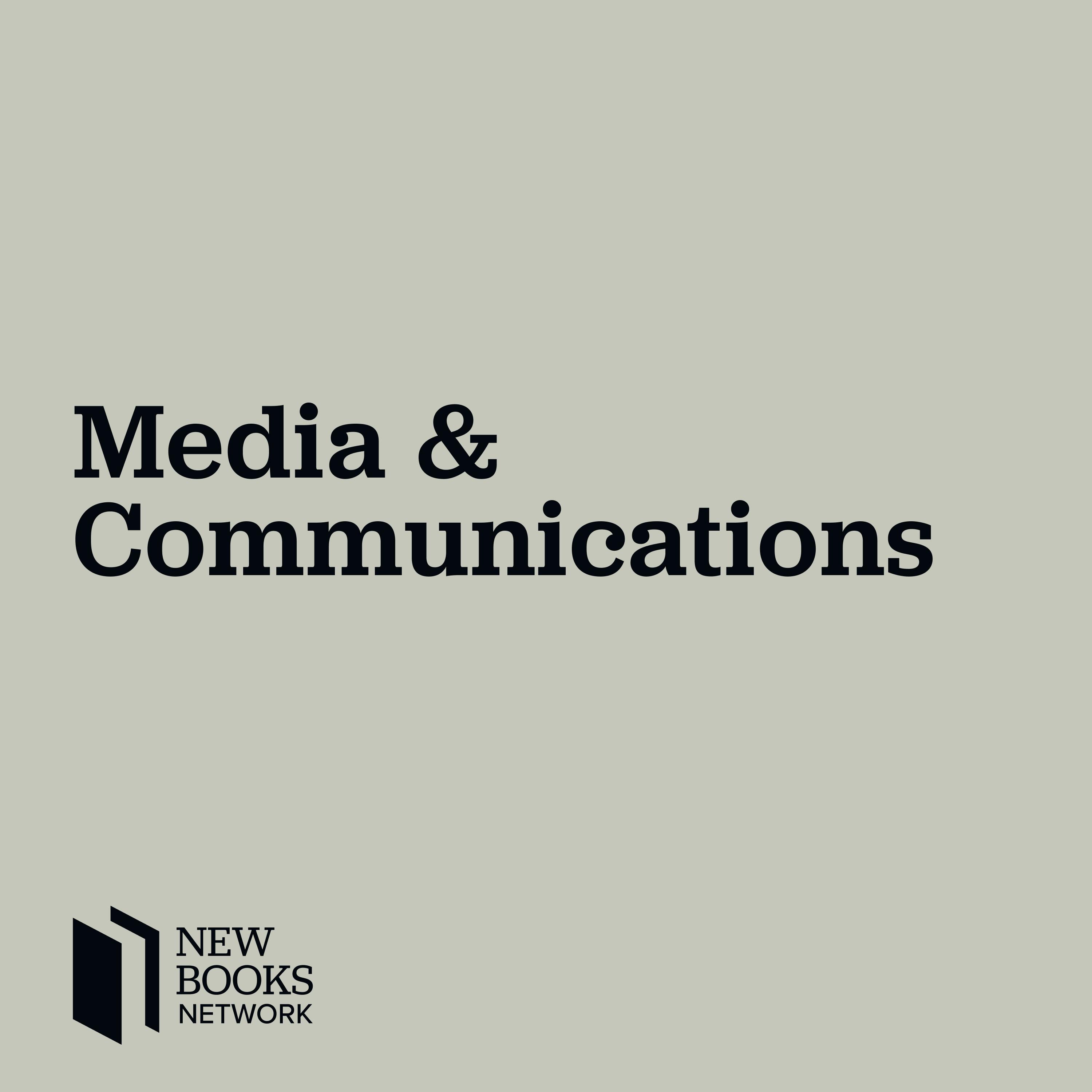 New Books in CommunicationsTwo Wrongs Don't Make a Right but... US Lies and Media Reporting in the 2003 Iraq WarIn this episode of International Horizons, journalist and UN director of Human Rights Watch Louis Charbonneau describes the US's government misinformation campaign to justify its invasion of Iraq in 2003 and its aftermath. Charbonneau also discusses the role of media in the lack of questioning of the information they were spreading and contrasts it with the right practices journalists should conduct in their reporting. Finally, the interviewee talks about the consequences of lies from an official source in the spread of fake news, and how the government's actions in 2002 are being used by Russia to respond to the US's criticisms of...2023-03-2737 min
New Books in CommunicationsTwo Wrongs Don't Make a Right but... US Lies and Media Reporting in the 2003 Iraq WarIn this episode of International Horizons, journalist and UN director of Human Rights Watch Louis Charbonneau describes the US's government misinformation campaign to justify its invasion of Iraq in 2003 and its aftermath. Charbonneau also discusses the role of media in the lack of questioning of the information they were spreading and contrasts it with the right practices journalists should conduct in their reporting. Finally, the interviewee talks about the consequences of lies from an official source in the spread of fake news, and how the government's actions in 2002 are being used by Russia to respond to the US's criticisms of...2023-03-2737 min New Books in World AffairsTwo Wrongs Don't Make a Right but... US Lies and Media Reporting in the 2003 Iraq WarIn this episode of International Horizons, journalist and UN director of Human Rights Watch Louis Charbonneau describes the US's government misinformation campaign to justify its invasion of Iraq in 2003 and its aftermath. Charbonneau also discusses the role of media in the lack of questioning of the information they were spreading and contrasts it with the right practices journalists should conduct in their reporting. Finally, the interviewee talks about the consequences of lies from an official source in the spread of fake news, and how the government's actions in 2002 are being used by Russia to respond to the US's criticisms of...2023-03-2737 min
New Books in World AffairsTwo Wrongs Don't Make a Right but... US Lies and Media Reporting in the 2003 Iraq WarIn this episode of International Horizons, journalist and UN director of Human Rights Watch Louis Charbonneau describes the US's government misinformation campaign to justify its invasion of Iraq in 2003 and its aftermath. Charbonneau also discusses the role of media in the lack of questioning of the information they were spreading and contrasts it with the right practices journalists should conduct in their reporting. Finally, the interviewee talks about the consequences of lies from an official source in the spread of fake news, and how the government's actions in 2002 are being used by Russia to respond to the US's criticisms of...2023-03-2737 min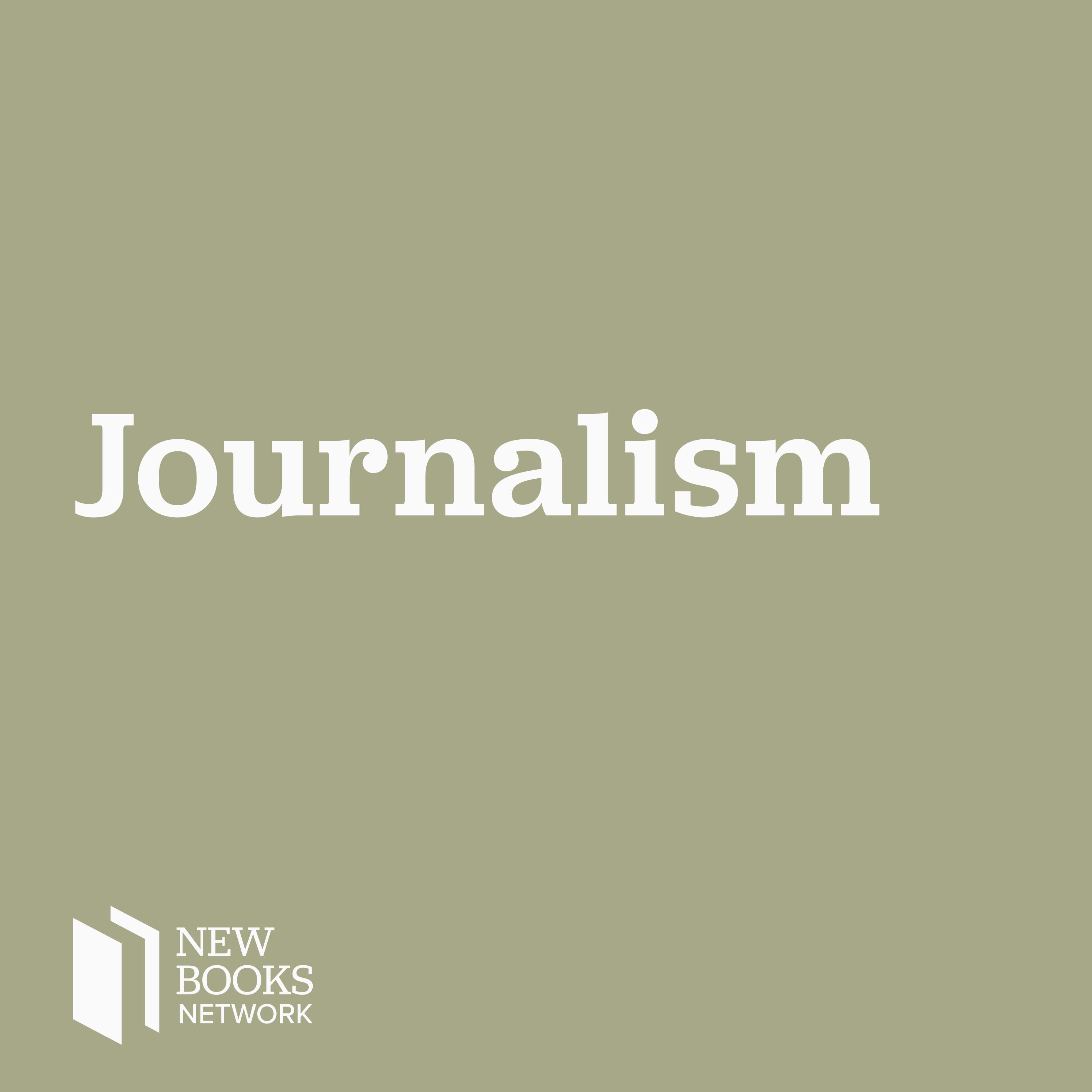 New Books in JournalismTwo Wrongs Don't Make a Right but... US Lies and Media Reporting in the 2003 Iraq WarIn this episode of International Horizons, journalist and UN director of Human Rights Watch Louis Charbonneau describes the US's government misinformation campaign to justify its invasion of Iraq in 2003 and its aftermath. Charbonneau also discusses the role of media in the lack of questioning of the information they were spreading and contrasts it with the right practices journalists should conduct in their reporting. Finally, the interviewee talks about the consequences of lies from an official source in the spread of fake news, and how the government's actions in 2002 are being used by Russia to respond to the US's criticisms of...2023-03-2737 min
New Books in JournalismTwo Wrongs Don't Make a Right but... US Lies and Media Reporting in the 2003 Iraq WarIn this episode of International Horizons, journalist and UN director of Human Rights Watch Louis Charbonneau describes the US's government misinformation campaign to justify its invasion of Iraq in 2003 and its aftermath. Charbonneau also discusses the role of media in the lack of questioning of the information they were spreading and contrasts it with the right practices journalists should conduct in their reporting. Finally, the interviewee talks about the consequences of lies from an official source in the spread of fake news, and how the government's actions in 2002 are being used by Russia to respond to the US's criticisms of...2023-03-2737 min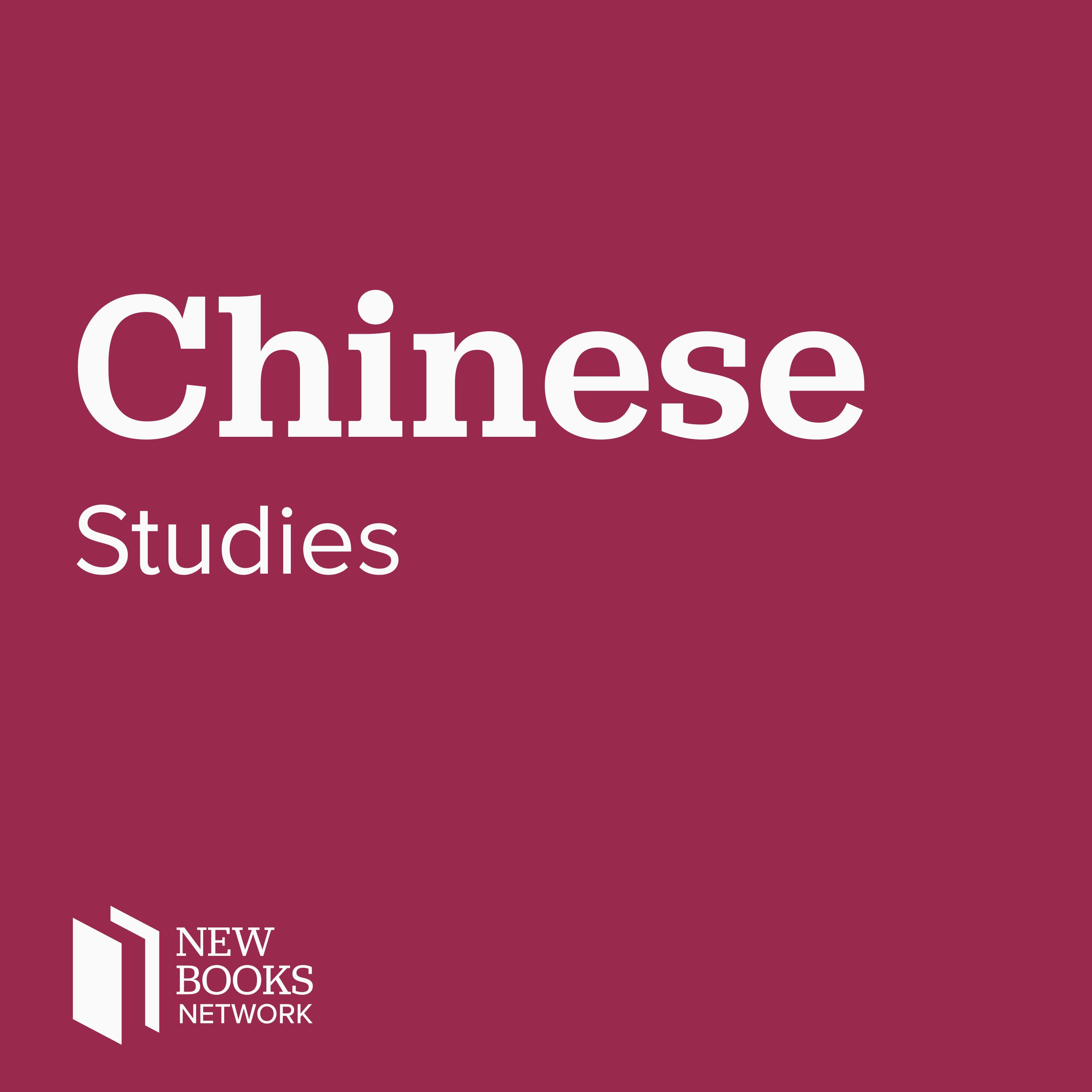 New Books in Chinese StudiesBirth Rates and the Future of Social Movements: A Discussion with Jack Goldstone"The world's future will depend on Africa having a good future."This week on International Horizons, Jack Goldstone, Virginia E. and John T. Hazel, Jr. Chair Professor of Public Policy at George Mason University and a Global Fellow of the Woodrow Wilson International Center, discusses the role of age and demographics of social movements in the twenty-first century. Goldstone speculates about the possibilities of regime change in China associated with the role of the youth and their discontent with governments that are losing performance legitimacy, and the possibilities for a slight rise in authoritarianism in India as t...2023-03-0633 min
New Books in Chinese StudiesBirth Rates and the Future of Social Movements: A Discussion with Jack Goldstone"The world's future will depend on Africa having a good future."This week on International Horizons, Jack Goldstone, Virginia E. and John T. Hazel, Jr. Chair Professor of Public Policy at George Mason University and a Global Fellow of the Woodrow Wilson International Center, discusses the role of age and demographics of social movements in the twenty-first century. Goldstone speculates about the possibilities of regime change in China associated with the role of the youth and their discontent with governments that are losing performance legitimacy, and the possibilities for a slight rise in authoritarianism in India as t...2023-03-0633 min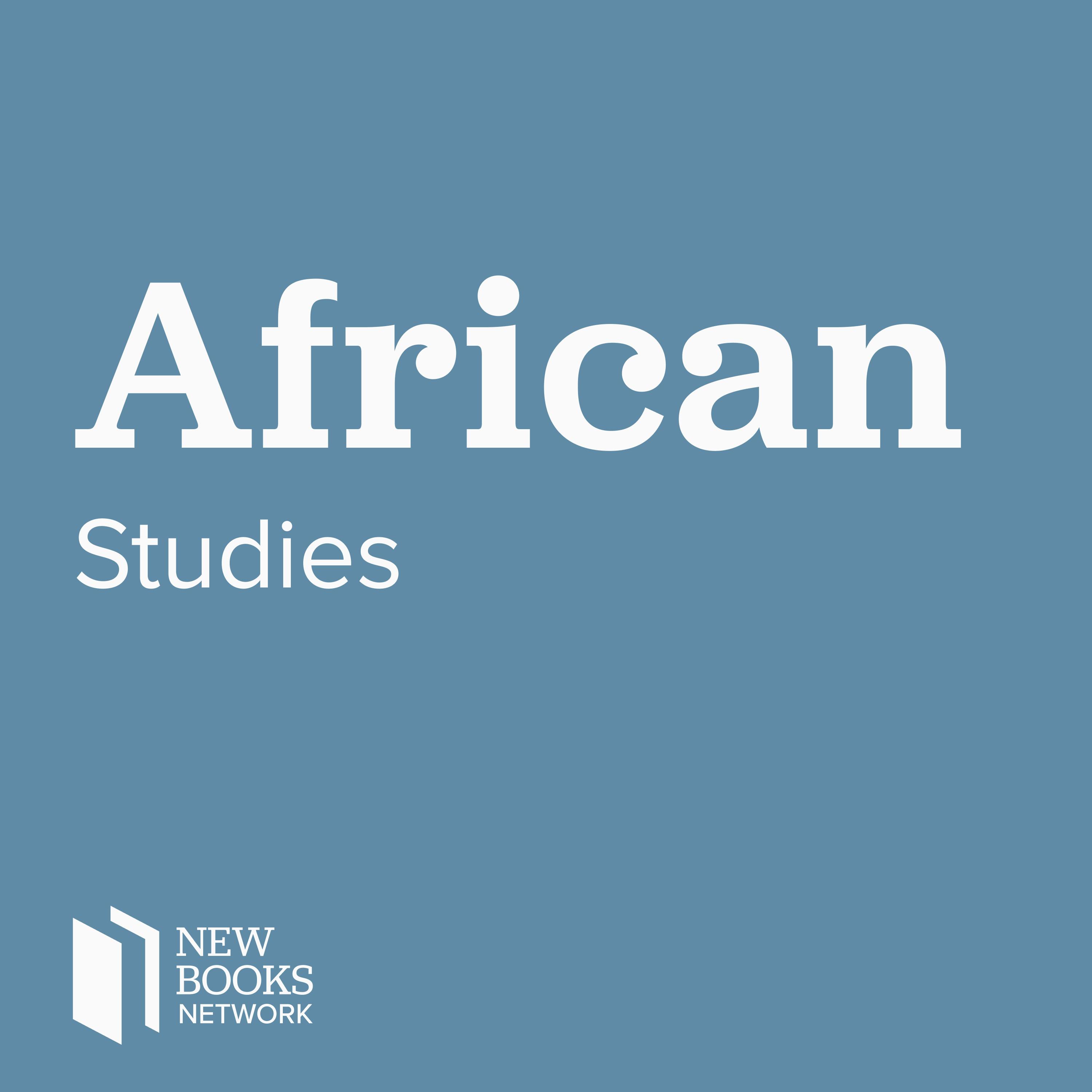 New Books in African StudiesBirth Rates and the Future of Social Movements: A Discussion with Jack Goldstone"The world's future will depend on Africa having a good future."This week on International Horizons, Jack Goldstone, Virginia E. and John T. Hazel, Jr. Chair Professor of Public Policy at George Mason University and a Global Fellow of the Woodrow Wilson International Center, discusses the role of age and demographics of social movements in the twenty-first century. Goldstone speculates about the possibilities of regime change in China associated with the role of the youth and their discontent with governments that are losing performance legitimacy, and the possibilities for a slight rise in authoritarianism in India as t...2023-03-0633 min
New Books in African StudiesBirth Rates and the Future of Social Movements: A Discussion with Jack Goldstone"The world's future will depend on Africa having a good future."This week on International Horizons, Jack Goldstone, Virginia E. and John T. Hazel, Jr. Chair Professor of Public Policy at George Mason University and a Global Fellow of the Woodrow Wilson International Center, discusses the role of age and demographics of social movements in the twenty-first century. Goldstone speculates about the possibilities of regime change in China associated with the role of the youth and their discontent with governments that are losing performance legitimacy, and the possibilities for a slight rise in authoritarianism in India as t...2023-03-0633 min New Books in World AffairsBirth Rates and the Future of Social Movements: A Discussion with Jack Goldstone"The world's future will depend on Africa having a good future."This week on International Horizons, Jack Goldstone, Virginia E. and John T. Hazel, Jr. Chair Professor of Public Policy at George Mason University and a Global Fellow of the Woodrow Wilson International Center, discusses the role of age and demographics of social movements in the twenty-first century. Goldstone speculates about the possibilities of regime change in China associated with the role of the youth and their discontent with governments that are losing performance legitimacy, and the possibilities for a slight rise in authoritarianism in India as t...2023-03-0634 min
New Books in World AffairsBirth Rates and the Future of Social Movements: A Discussion with Jack Goldstone"The world's future will depend on Africa having a good future."This week on International Horizons, Jack Goldstone, Virginia E. and John T. Hazel, Jr. Chair Professor of Public Policy at George Mason University and a Global Fellow of the Woodrow Wilson International Center, discusses the role of age and demographics of social movements in the twenty-first century. Goldstone speculates about the possibilities of regime change in China associated with the role of the youth and their discontent with governments that are losing performance legitimacy, and the possibilities for a slight rise in authoritarianism in India as t...2023-03-0634 min New Books in South Asian StudiesBirth Rates and the Future of Social Movements: A Discussion with Jack Goldstone"The world's future will depend on Africa having a good future."This week on International Horizons, Jack Goldstone, Virginia E. and John T. Hazel, Jr. Chair Professor of Public Policy at George Mason University and a Global Fellow of the Woodrow Wilson International Center, discusses the role of age and demographics of social movements in the twenty-first century. Goldstone speculates about the possibilities of regime change in China associated with the role of the youth and their discontent with governments that are losing performance legitimacy, and the possibilities for a slight rise in authoritarianism in India as t...2023-03-0634 min
New Books in South Asian StudiesBirth Rates and the Future of Social Movements: A Discussion with Jack Goldstone"The world's future will depend on Africa having a good future."This week on International Horizons, Jack Goldstone, Virginia E. and John T. Hazel, Jr. Chair Professor of Public Policy at George Mason University and a Global Fellow of the Woodrow Wilson International Center, discusses the role of age and demographics of social movements in the twenty-first century. Goldstone speculates about the possibilities of regime change in China associated with the role of the youth and their discontent with governments that are losing performance legitimacy, and the possibilities for a slight rise in authoritarianism in India as t...2023-03-0634 min International Law Behind the HeadlinesEpisode 40: Legendary diplomat, scholar, and civil rights leader, Ralph BuncheIn this episode, Catherine Amirfar interviews co-host Kal Raustiala about his new book, The Absolutely Indispensable Man: Ralph Bunche, the United Nations, and the Fight to End Empire.2023-02-2320 min
International Law Behind the HeadlinesEpisode 40: Legendary diplomat, scholar, and civil rights leader, Ralph BuncheIn this episode, Catherine Amirfar interviews co-host Kal Raustiala about his new book, The Absolutely Indispensable Man: Ralph Bunche, the United Nations, and the Fight to End Empire.2023-02-2320 min New Books in Critical TheoryWhere is the Left? The Rise and Decline of Social Democratic MovementsThis week on International Horizons, David Abraham from the University of Miami discusses the origins of social democratic parties in Europe and the parallels with similar movements in the US. Following his teacher Adam Przeworski, Abraham argues that Keynesianism boosted social democracy by convincing people that the state could manage economic growth. For a time, the iron curtain heightened solidarity in the West, including among social democrats. More recently, social democratic politics has been tempered by liberal movements focusing on “diversity” rather than on class inequality. While noting that there are troublesome signs of growing authoritarianism around the world, Abra...2023-02-0643 min
New Books in Critical TheoryWhere is the Left? The Rise and Decline of Social Democratic MovementsThis week on International Horizons, David Abraham from the University of Miami discusses the origins of social democratic parties in Europe and the parallels with similar movements in the US. Following his teacher Adam Przeworski, Abraham argues that Keynesianism boosted social democracy by convincing people that the state could manage economic growth. For a time, the iron curtain heightened solidarity in the West, including among social democrats. More recently, social democratic politics has been tempered by liberal movements focusing on “diversity” rather than on class inequality. While noting that there are troublesome signs of growing authoritarianism around the world, Abra...2023-02-0643 min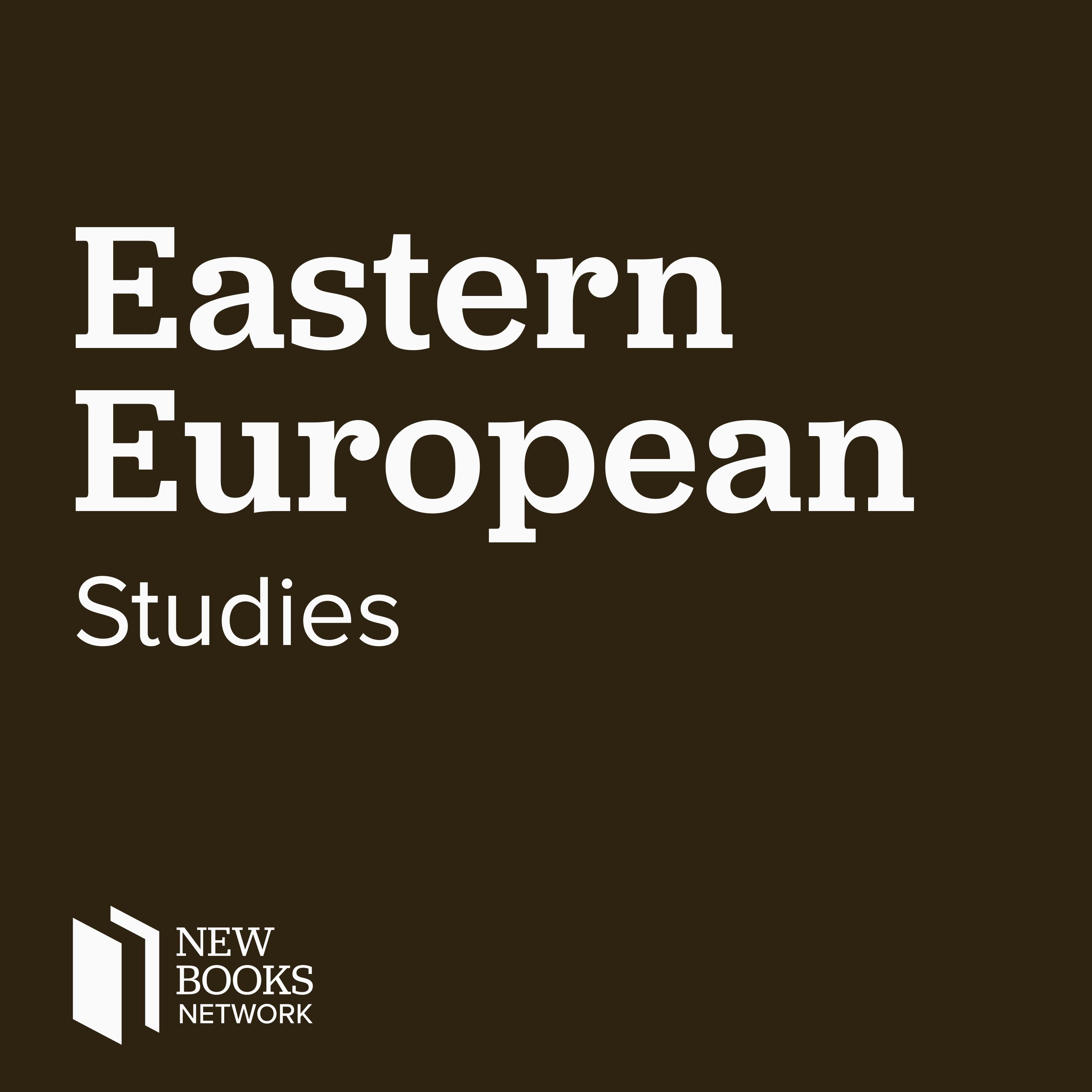 New Books in Eastern European StudiesWhere is the Left? The Rise and Decline of Social Democratic MovementsThis week on International Horizons, David Abraham from the University of Miami discusses the origins of social democratic parties in Europe and the parallels with similar movements in the US. Following his teacher Adam Przeworski, Abraham argues that Keynesianism boosted social democracy by convincing people that the state could manage economic growth. For a time, the iron curtain heightened solidarity in the West, including among social democrats. More recently, social democratic politics has been tempered by liberal movements focusing on “diversity” rather than on class inequality. While noting that there are troublesome signs of growing authoritarianism around the world, Abra...2023-02-0643 min
New Books in Eastern European StudiesWhere is the Left? The Rise and Decline of Social Democratic MovementsThis week on International Horizons, David Abraham from the University of Miami discusses the origins of social democratic parties in Europe and the parallels with similar movements in the US. Following his teacher Adam Przeworski, Abraham argues that Keynesianism boosted social democracy by convincing people that the state could manage economic growth. For a time, the iron curtain heightened solidarity in the West, including among social democrats. More recently, social democratic politics has been tempered by liberal movements focusing on “diversity” rather than on class inequality. While noting that there are troublesome signs of growing authoritarianism around the world, Abra...2023-02-0643 min New Books in American PoliticsWhere is the Left? The Rise and Decline of Social Democratic MovementsThis week on International Horizons, David Abraham from the University of Miami discusses the origins of social democratic parties in Europe and the parallels with similar movements in the US. Following his teacher Adam Przeworski, Abraham argues that Keynesianism boosted social democracy by convincing people that the state could manage economic growth. For a time, the iron curtain heightened solidarity in the West, including among social democrats. More recently, social democratic politics has been tempered by liberal movements focusing on “diversity” rather than on class inequality. While noting that there are troublesome signs of growing authoritarianism around the world, Abra...2023-02-0643 min
New Books in American PoliticsWhere is the Left? The Rise and Decline of Social Democratic MovementsThis week on International Horizons, David Abraham from the University of Miami discusses the origins of social democratic parties in Europe and the parallels with similar movements in the US. Following his teacher Adam Przeworski, Abraham argues that Keynesianism boosted social democracy by convincing people that the state could manage economic growth. For a time, the iron curtain heightened solidarity in the West, including among social democrats. More recently, social democratic politics has been tempered by liberal movements focusing on “diversity” rather than on class inequality. While noting that there are troublesome signs of growing authoritarianism around the world, Abra...2023-02-0643 min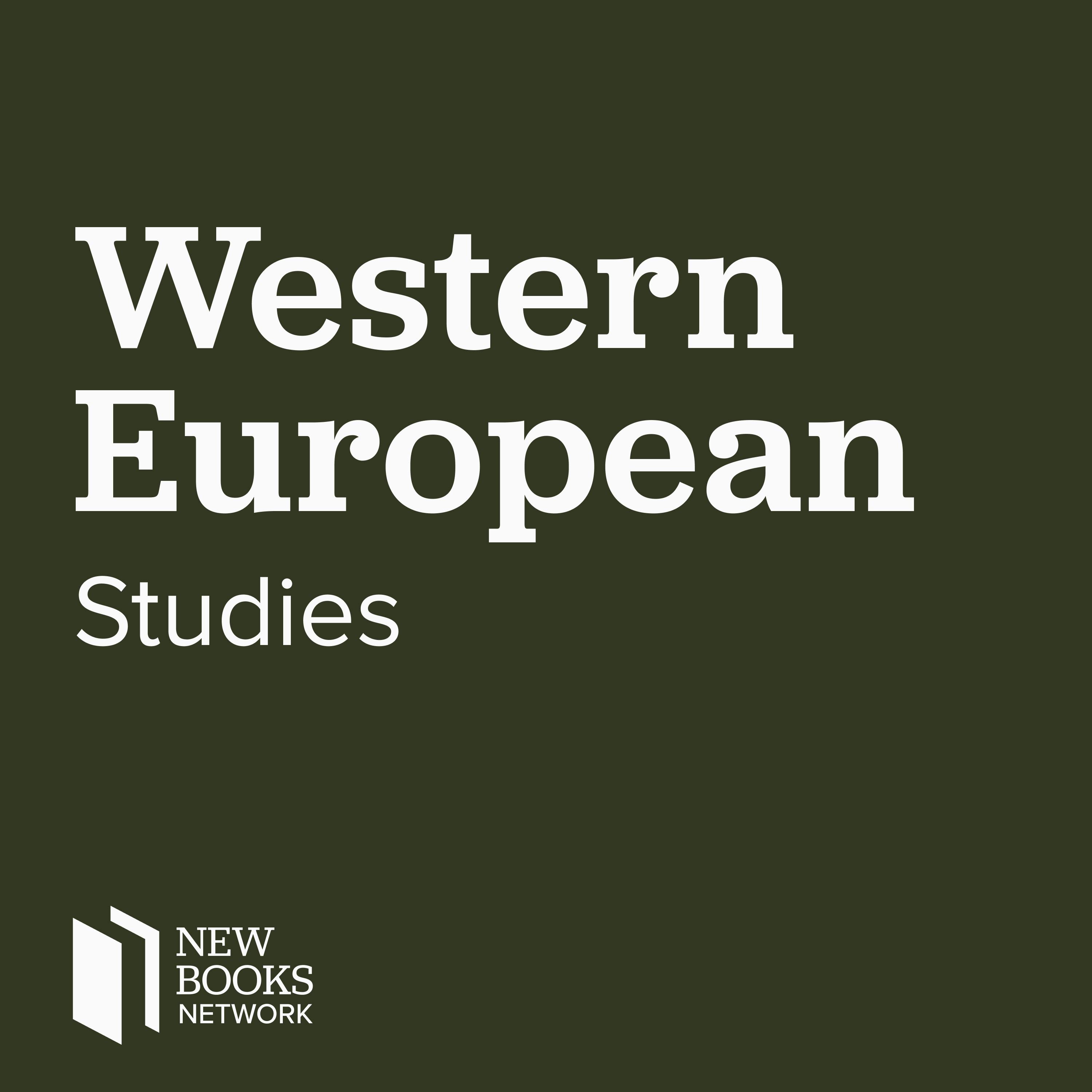 New Books in Western European StudiesWhere is the Left? The Rise and Decline of Social Democratic MovementsThis week on International Horizons, David Abraham from the University of Miami discusses the origins of social democratic parties in Europe and the parallels with similar movements in the US. Following his teacher Adam Przeworski, Abraham argues that Keynesianism boosted social democracy by convincing people that the state could manage economic growth. For a time, the iron curtain heightened solidarity in the West, including among social democrats. More recently, social democratic politics has been tempered by liberal movements focusing on “diversity” rather than on class inequality. While noting that there are troublesome signs of growing authoritarianism around the world, Abra...2023-02-0643 min
New Books in Western European StudiesWhere is the Left? The Rise and Decline of Social Democratic MovementsThis week on International Horizons, David Abraham from the University of Miami discusses the origins of social democratic parties in Europe and the parallels with similar movements in the US. Following his teacher Adam Przeworski, Abraham argues that Keynesianism boosted social democracy by convincing people that the state could manage economic growth. For a time, the iron curtain heightened solidarity in the West, including among social democrats. More recently, social democratic politics has been tempered by liberal movements focusing on “diversity” rather than on class inequality. While noting that there are troublesome signs of growing authoritarianism around the world, Abra...2023-02-0643 min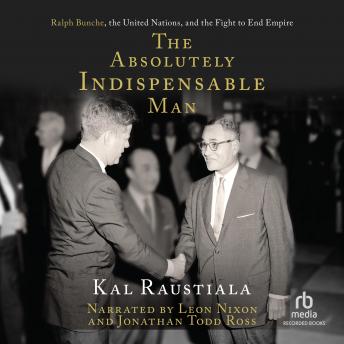 Dive Into A Full Audiobook That Is Simply Heart-Pounding.The Absolutely Indispensable Man: Ralph Bunche, the United Nations, and the Fight to End Empire by Kal RaustialaPlease visithttps://thebookvoice.com/podcasts/1/audiobook/630139to listen full audiobooks.
Title: The Absolutely Indispensable Man: Ralph Bunche, the United Nations, and the Fight to End Empire
Author: Kal Raustiala
Narrator: Jonathan Todd Ross, Leon Nixon
Format: Unabridged Audiobook
Length: 22 hours 58 minutes
Release date: January 31, 2023
Genres: Law & Politics
Publisher's Summary:
A legendary diplomat, scholar, and civil rights leader, Ralph Bunche was one of the most prominent Black Americans of the twentieth century. The first African American to obtain a political science Ph.D. from Harvard and a celebrated diplomat at the United Nations, he was once so famous he handed out...2023-01-3110h 58
Dive Into A Full Audiobook That Is Simply Heart-Pounding.The Absolutely Indispensable Man: Ralph Bunche, the United Nations, and the Fight to End Empire by Kal RaustialaPlease visithttps://thebookvoice.com/podcasts/1/audiobook/630139to listen full audiobooks.
Title: The Absolutely Indispensable Man: Ralph Bunche, the United Nations, and the Fight to End Empire
Author: Kal Raustiala
Narrator: Jonathan Todd Ross, Leon Nixon
Format: Unabridged Audiobook
Length: 22 hours 58 minutes
Release date: January 31, 2023
Genres: Law & Politics
Publisher's Summary:
A legendary diplomat, scholar, and civil rights leader, Ralph Bunche was one of the most prominent Black Americans of the twentieth century. The first African American to obtain a political science Ph.D. from Harvard and a celebrated diplomat at the United Nations, he was once so famous he handed out...2023-01-3110h 58 Explore Your Day With A Heart-Pounding Full Audiobook.The Absolutely Indispensable Man: Ralph Bunche, the United Nations, and the Fight to End Empire by Kal RaustialaPlease visithttps://thebookvoice.com/podcasts/1/audiobook/630139to listen full audiobooks.
Title: The Absolutely Indispensable Man: Ralph Bunche, the United Nations, and the Fight to End Empire
Author: Kal Raustiala
Narrator: Leon Nixon, Jonathan Todd Ross
Format: Unabridged Audiobook
Length: 22 hours 58 minutes
Release date: January 31, 2023
Genres: Current Affairs, Law, & Politics
Publisher's Summary:
A legendary diplomat, scholar, and civil rights leader, Ralph Bunche was one of the most prominent Black Americans of the twentieth century. The first African American to obtain a political science Ph.D. from Harvard and a celebrated diplomat at the United Nations, he was once so famous he...2023-01-3110h 58
Explore Your Day With A Heart-Pounding Full Audiobook.The Absolutely Indispensable Man: Ralph Bunche, the United Nations, and the Fight to End Empire by Kal RaustialaPlease visithttps://thebookvoice.com/podcasts/1/audiobook/630139to listen full audiobooks.
Title: The Absolutely Indispensable Man: Ralph Bunche, the United Nations, and the Fight to End Empire
Author: Kal Raustiala
Narrator: Leon Nixon, Jonathan Todd Ross
Format: Unabridged Audiobook
Length: 22 hours 58 minutes
Release date: January 31, 2023
Genres: Current Affairs, Law, & Politics
Publisher's Summary:
A legendary diplomat, scholar, and civil rights leader, Ralph Bunche was one of the most prominent Black Americans of the twentieth century. The first African American to obtain a political science Ph.D. from Harvard and a celebrated diplomat at the United Nations, he was once so famous he...2023-01-3110h 58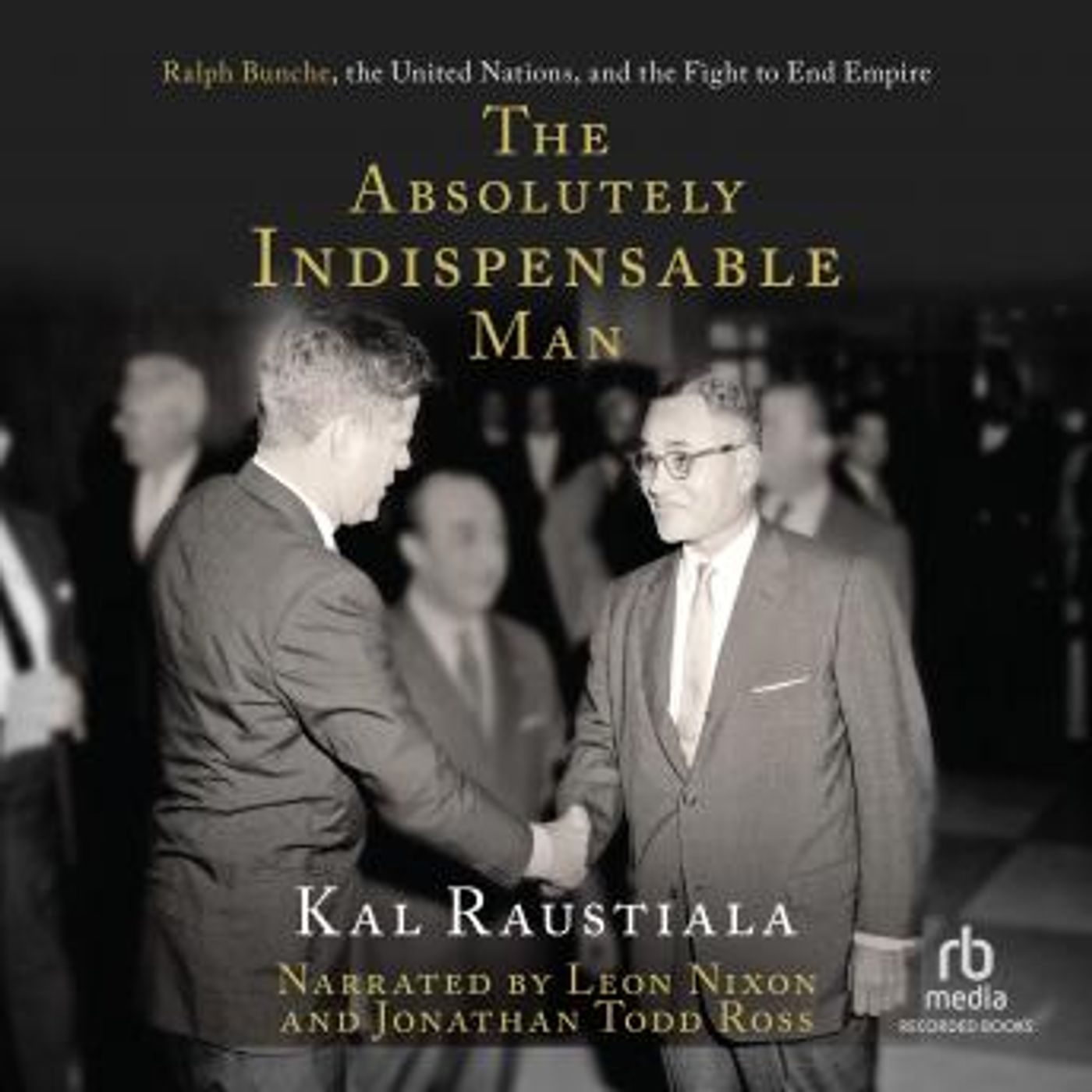 Download High-Quality Free Audiobooks in Biography & Memoir, Law & PoliticsThe Absolutely Indispensable Man: Ralph Bunche, the United Nations, and the Fight to End Empire by Kal RaustialaPlease visit https://thebookvoice.com/podcasts/1/audiobook/630139 to listen full audiobooks. Title: The Absolutely Indispensable Man: Ralph Bunche, the United Nations, and the Fight to End Empire Author: Kal Raustiala Narrator: Jonathan Todd Ross, Leon Nixon Format: Unabridged Audiobook Length: 22 hours 58 minutes Release date: January 31, 2023 Genres: Law & Politics Publisher's Summary: A legendary diplomat, scholar, and civil rights leader, Ralph Bunche was one of the most prominent Black Americans of the twentieth century. The first African American to obtain a political science Ph.D. from Harvard and a celebrated diplomat at the United Nations, he was once so famous he handed...2023-01-3105 min
Download High-Quality Free Audiobooks in Biography & Memoir, Law & PoliticsThe Absolutely Indispensable Man: Ralph Bunche, the United Nations, and the Fight to End Empire by Kal RaustialaPlease visit https://thebookvoice.com/podcasts/1/audiobook/630139 to listen full audiobooks. Title: The Absolutely Indispensable Man: Ralph Bunche, the United Nations, and the Fight to End Empire Author: Kal Raustiala Narrator: Jonathan Todd Ross, Leon Nixon Format: Unabridged Audiobook Length: 22 hours 58 minutes Release date: January 31, 2023 Genres: Law & Politics Publisher's Summary: A legendary diplomat, scholar, and civil rights leader, Ralph Bunche was one of the most prominent Black Americans of the twentieth century. The first African American to obtain a political science Ph.D. from Harvard and a celebrated diplomat at the United Nations, he was once so famous he handed...2023-01-3105 min Download High-Quality Full Audiobooks in Biography & Memoir, Law & PoliticsThe Absolutely Indispensable Man: Ralph Bunche, the United Nations, and the Fight to End Empire by Kal RaustialaPlease visithttps://thebookvoice.com/podcasts/1/audiobook/630139to listen full audiobooks.
Title: The Absolutely Indispensable Man: Ralph Bunche, the United Nations, and the Fight to End Empire
Author: Kal Raustiala
Narrator: Jonathan Todd Ross, Leon Nixon
Format: Unabridged Audiobook
Length: 22 hours 58 minutes
Release date: January 31, 2023
Genres: Law & Politics
Publisher's Summary:
A legendary diplomat, scholar, and civil rights leader, Ralph Bunche was one of the most prominent Black Americans of the twentieth century. The first African American to obtain a political science Ph.D. from Harvard and a celebrated diplomat at the United Nations, he was once so famous he handed out...2023-01-3110h 58
Download High-Quality Full Audiobooks in Biography & Memoir, Law & PoliticsThe Absolutely Indispensable Man: Ralph Bunche, the United Nations, and the Fight to End Empire by Kal RaustialaPlease visithttps://thebookvoice.com/podcasts/1/audiobook/630139to listen full audiobooks.
Title: The Absolutely Indispensable Man: Ralph Bunche, the United Nations, and the Fight to End Empire
Author: Kal Raustiala
Narrator: Jonathan Todd Ross, Leon Nixon
Format: Unabridged Audiobook
Length: 22 hours 58 minutes
Release date: January 31, 2023
Genres: Law & Politics
Publisher's Summary:
A legendary diplomat, scholar, and civil rights leader, Ralph Bunche was one of the most prominent Black Americans of the twentieth century. The first African American to obtain a political science Ph.D. from Harvard and a celebrated diplomat at the United Nations, he was once so famous he handed out...2023-01-3110h 58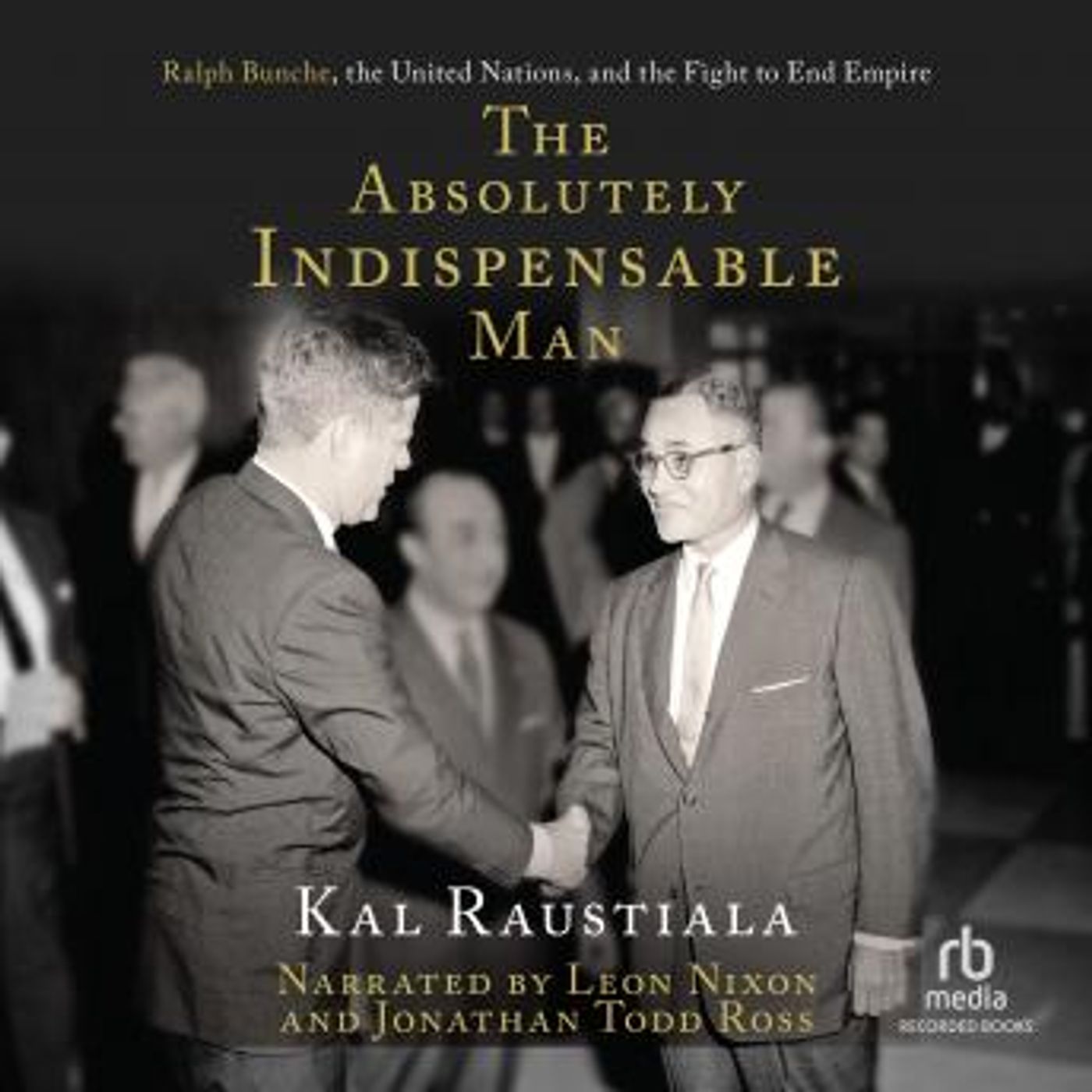 Get Top Full Audiobooks in Non-Fiction, Current Affairs, Law, & PoliticsThe Absolutely Indispensable Man: Ralph Bunche, the United Nations, and the Fight to End Empire by Kal RaustialaPlease visit https://thebookvoice.com/podcasts/1/audiobook/630139 to listen full audiobooks. Title: The Absolutely Indispensable Man: Ralph Bunche, the United Nations, and the Fight to End Empire Author: Kal Raustiala Narrator: Leon Nixon, Jonathan Todd Ross Format: Unabridged Audiobook Length: 22 hours 58 minutes Release date: January 31, 2023 Genres: Current Affairs, Law, & Politics Publisher's Summary: A legendary diplomat, scholar, and civil rights leader, Ralph Bunche was one of the most prominent Black Americans of the twentieth century. The first African American to obtain a political science Ph.D. from Harvard and a celebrated diplomat at the United Nations, he was once so famous...2023-01-3105 min
Get Top Full Audiobooks in Non-Fiction, Current Affairs, Law, & PoliticsThe Absolutely Indispensable Man: Ralph Bunche, the United Nations, and the Fight to End Empire by Kal RaustialaPlease visit https://thebookvoice.com/podcasts/1/audiobook/630139 to listen full audiobooks. Title: The Absolutely Indispensable Man: Ralph Bunche, the United Nations, and the Fight to End Empire Author: Kal Raustiala Narrator: Leon Nixon, Jonathan Todd Ross Format: Unabridged Audiobook Length: 22 hours 58 minutes Release date: January 31, 2023 Genres: Current Affairs, Law, & Politics Publisher's Summary: A legendary diplomat, scholar, and civil rights leader, Ralph Bunche was one of the most prominent Black Americans of the twentieth century. The first African American to obtain a political science Ph.D. from Harvard and a celebrated diplomat at the United Nations, he was once so famous...2023-01-3105 min BiografIA, la historia contada por una IARalph Bunche: El Nobel de la Paz.En este episodio del podcast BiografIA, conoceremos la increíble vida de Ralph Bunche. Él fue un diplomático estadounidense y el primer afroamericano en ganar el Premio Nobel de la Paz por su trabajo para reconciliar a las naciones árabes e israelíes. Descubriremos los desafíos que enfrentó durante su carrera como activista por los derechos civiles, así como sus logros al convertirse en un líder internacional destacado. También exploraremos cómo sirvió como inspiración para generaciones futuras de activistas y diplomáticos, y cómo su legado continúa hoy en día.2022-12-2105 min
BiografIA, la historia contada por una IARalph Bunche: El Nobel de la Paz.En este episodio del podcast BiografIA, conoceremos la increíble vida de Ralph Bunche. Él fue un diplomático estadounidense y el primer afroamericano en ganar el Premio Nobel de la Paz por su trabajo para reconciliar a las naciones árabes e israelíes. Descubriremos los desafíos que enfrentó durante su carrera como activista por los derechos civiles, así como sus logros al convertirse en un líder internacional destacado. También exploraremos cómo sirvió como inspiración para generaciones futuras de activistas y diplomáticos, y cómo su legado continúa hoy en día.2022-12-2105 min BiografIA, la historia contada por una IARalph Bunche: El Nobel de la Paz.En este episodio del podcast BiografIA, conoceremos la increíble vida de Ralph Bunche. Él fue un diplomático estadounidense y el primer afroamericano en ganar el Premio Nobel de la Paz por su trabajo para reconciliar a las naciones árabes e israelíes. Descubriremos los desafíos que enfrentó durante su carrera como activista por los derechos civiles, así como sus logros al convertirse en un líder internacional destacado. También exploraremos cómo sirvió como inspiración para generaciones futuras de activistas y diplomáticos, y cómo su legado continúa hoy en día.2022-12-2105 min
BiografIA, la historia contada por una IARalph Bunche: El Nobel de la Paz.En este episodio del podcast BiografIA, conoceremos la increíble vida de Ralph Bunche. Él fue un diplomático estadounidense y el primer afroamericano en ganar el Premio Nobel de la Paz por su trabajo para reconciliar a las naciones árabes e israelíes. Descubriremos los desafíos que enfrentó durante su carrera como activista por los derechos civiles, así como sus logros al convertirse en un líder internacional destacado. También exploraremos cómo sirvió como inspiración para generaciones futuras de activistas y diplomáticos, y cómo su legado continúa hoy en día.2022-12-2105 min BorderlinesRalph Bunche: The Absolutely Indispensable ManRalph Bunche’s monumental impact as a ground-breaking scholar, diplomat, Nobel Peace Prize winner, civil rights advocate and world influencer receives a thrilling spotlight in Episode #12 of Borderlines. UCLA Professor Kal Raustiala shares stories and highlights from his recent book, The Absolutely Indispensable Man: Ralph Bunche, the United Nations and the Fight to End Empire, tracing the fascinating life of one of the twentieth century’s most prominent Black Americans. Discover hidden history about Bunche’s pivotal role in international decolonization efforts and learn why his leadership and inspiring ideas still reverberate today.Borderlines listeners who preorder the book...2022-11-1535 min
BorderlinesRalph Bunche: The Absolutely Indispensable ManRalph Bunche’s monumental impact as a ground-breaking scholar, diplomat, Nobel Peace Prize winner, civil rights advocate and world influencer receives a thrilling spotlight in Episode #12 of Borderlines. UCLA Professor Kal Raustiala shares stories and highlights from his recent book, The Absolutely Indispensable Man: Ralph Bunche, the United Nations and the Fight to End Empire, tracing the fascinating life of one of the twentieth century’s most prominent Black Americans. Discover hidden history about Bunche’s pivotal role in international decolonization efforts and learn why his leadership and inspiring ideas still reverberate today.Borderlines listeners who preorder the book...2022-11-1535 min New Books in American PoliticsWhat is the Role of Minorities in the Modern State?The existence of minorities has been an unavoidable reality of the creation of nation states that almost always have a dominant national group inscribed in their names. From this perspective, Germany is a country for Germans and Australia is a country for Australians. But there are invariably others who don't fit the heritage or the stereotype of German or Italian, or Australian, or whatever the country might be. So how do we deal with the reality that minorities are a normal feature of basically all countries of the world?In this episode of International Horizons, UN Special...2022-10-1736 min
New Books in American PoliticsWhat is the Role of Minorities in the Modern State?The existence of minorities has been an unavoidable reality of the creation of nation states that almost always have a dominant national group inscribed in their names. From this perspective, Germany is a country for Germans and Australia is a country for Australians. But there are invariably others who don't fit the heritage or the stereotype of German or Italian, or Australian, or whatever the country might be. So how do we deal with the reality that minorities are a normal feature of basically all countries of the world?In this episode of International Horizons, UN Special...2022-10-1736 min New Books in European PoliticsWhat is the Role of Minorities in the Modern State?The existence of minorities has been an unavoidable reality of the creation of nation states that almost always have a dominant national group inscribed in their names. From this perspective, Germany is a country for Germans and Australia is a country for Australians. But there are invariably others who don't fit the heritage or the stereotype of German or Italian, or Australian, or whatever the country might be. So how do we deal with the reality that minorities are a normal feature of basically all countries of the world?In this episode of International Horizons, UN Special...2022-10-1735 min
New Books in European PoliticsWhat is the Role of Minorities in the Modern State?The existence of minorities has been an unavoidable reality of the creation of nation states that almost always have a dominant national group inscribed in their names. From this perspective, Germany is a country for Germans and Australia is a country for Australians. But there are invariably others who don't fit the heritage or the stereotype of German or Italian, or Australian, or whatever the country might be. So how do we deal with the reality that minorities are a normal feature of basically all countries of the world?In this episode of International Horizons, UN Special...2022-10-1735 min New Books in World AffairsWhat is the Role of Minorities in the Modern State?The existence of minorities has been an unavoidable reality of the creation of nation states that almost always have a dominant national group inscribed in their names. From this perspective, Germany is a country for Germans and Australia is a country for Australians. But there are invariably others who don't fit the heritage or the stereotype of German or Italian, or Australian, or whatever the country might be. So how do we deal with the reality that minorities are a normal feature of basically all countries of the world?In this episode of International Horizons, UN Special...2022-10-1736 min
New Books in World AffairsWhat is the Role of Minorities in the Modern State?The existence of minorities has been an unavoidable reality of the creation of nation states that almost always have a dominant national group inscribed in their names. From this perspective, Germany is a country for Germans and Australia is a country for Australians. But there are invariably others who don't fit the heritage or the stereotype of German or Italian, or Australian, or whatever the country might be. So how do we deal with the reality that minorities are a normal feature of basically all countries of the world?In this episode of International Horizons, UN Special...2022-10-1736 min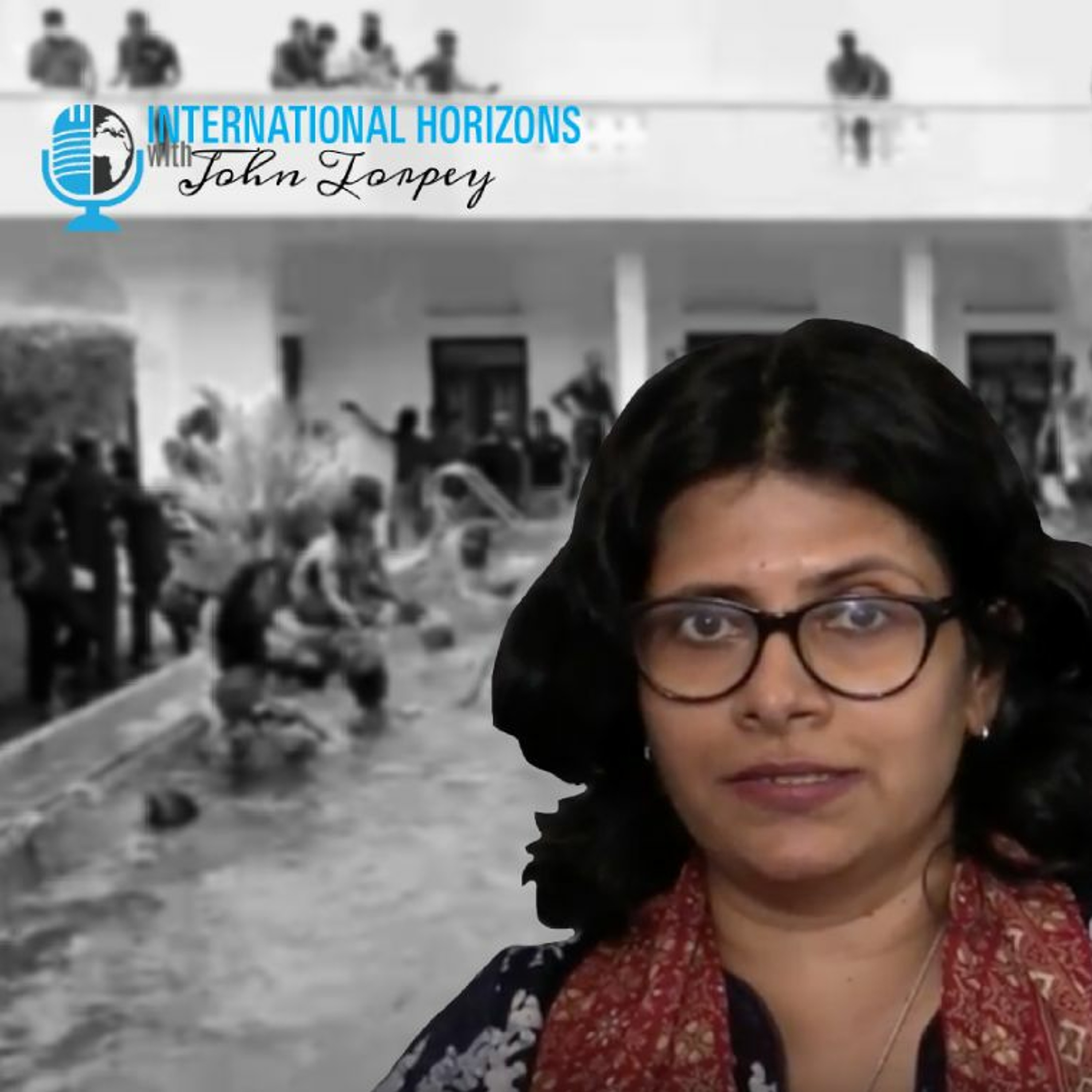 International HorizonsMeet the new dynast, same as the old dynast with Farzana HaniffaSri Lanka has recently endured tremendous political and economic turmoil with severe shortages of goods and fuel leading to the ouster of the sitting president. After Gotabhaya Rajapaksa fled the country in disgrace, he was replaced by another dynastic heir, Ranil Wickremesinghe. While much has changed in the once war-torn island nation, much has stayed the same.
In this episode, Farzana Haniffa, Professor of Sociology at University of Colombo, speaks with John Torpey, Presidential Professor of History and Sociology and Director of the Ralph Bunche Institute for International Studies at Graduate Center, CUNY, about the events that led to massive...2022-09-0831 min
International HorizonsMeet the new dynast, same as the old dynast with Farzana HaniffaSri Lanka has recently endured tremendous political and economic turmoil with severe shortages of goods and fuel leading to the ouster of the sitting president. After Gotabhaya Rajapaksa fled the country in disgrace, he was replaced by another dynastic heir, Ranil Wickremesinghe. While much has changed in the once war-torn island nation, much has stayed the same.
In this episode, Farzana Haniffa, Professor of Sociology at University of Colombo, speaks with John Torpey, Presidential Professor of History and Sociology and Director of the Ralph Bunche Institute for International Studies at Graduate Center, CUNY, about the events that led to massive...2022-09-0831 min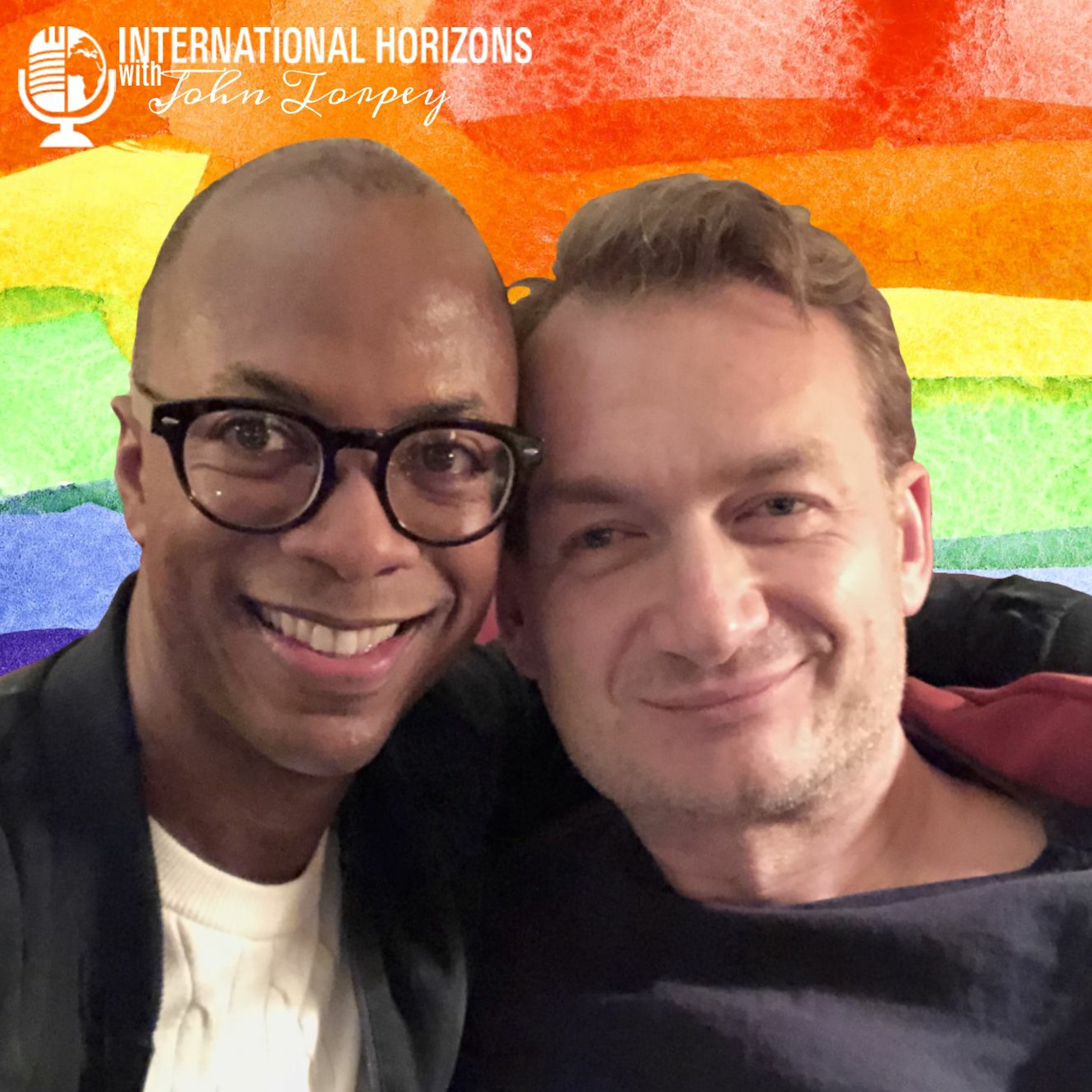 International HorizonsAchievements and challenges of LGBTQ+ people with Adrian ComanThis is Pride Month, a time to celebrate the increased visibility, dignity and equality of lesbian, gay, bisexual, transgender and queer people around the world. There have been many advances in the rights of sexual minorities in recent decades such as decriminalizing same-sex relationships, banning discrimination in employment and housing and, of course, legalizing same-sex marriage. Yet there's also been a conservative backlash in many countries and growing controversy over care for transgender teens in the US and Europe. Where does the struggle for LGBTQ rights around the world stand today?
In this episode, John Torpey, Presidential Professor of Sociology...2022-06-2036 min
International HorizonsAchievements and challenges of LGBTQ+ people with Adrian ComanThis is Pride Month, a time to celebrate the increased visibility, dignity and equality of lesbian, gay, bisexual, transgender and queer people around the world. There have been many advances in the rights of sexual minorities in recent decades such as decriminalizing same-sex relationships, banning discrimination in employment and housing and, of course, legalizing same-sex marriage. Yet there's also been a conservative backlash in many countries and growing controversy over care for transgender teens in the US and Europe. Where does the struggle for LGBTQ rights around the world stand today?
In this episode, John Torpey, Presidential Professor of Sociology...2022-06-2036 min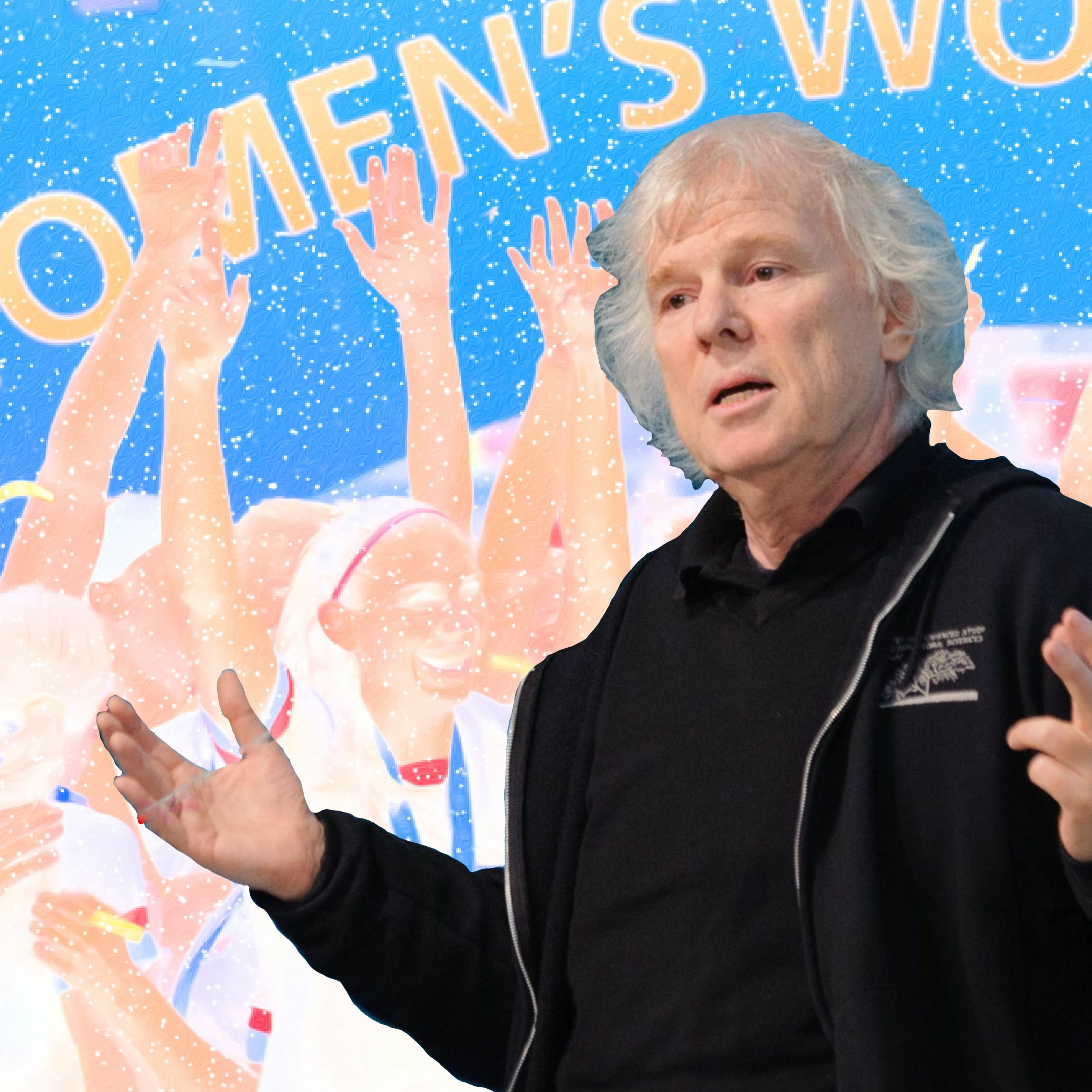 International HorizonsHow is American exceptionalism reflected in sports? With Andrei MarkovitsThe US women's soccer team recently reached a deal with the owners of American Professional Soccer for pay equity with the men. It was noted that the women's soccer teams in the United States were more successful on the international stage and were generating considerable revenue for investors, and yet women had been on the short end of the stick when it came to paying for their work. Meanwhile, international men's soccer has been plagued by scandal in recent years, undermining the image of the sport for many people. So what's going on out on the soccer pitch?
This week...2022-06-0640 min
International HorizonsHow is American exceptionalism reflected in sports? With Andrei MarkovitsThe US women's soccer team recently reached a deal with the owners of American Professional Soccer for pay equity with the men. It was noted that the women's soccer teams in the United States were more successful on the international stage and were generating considerable revenue for investors, and yet women had been on the short end of the stick when it came to paying for their work. Meanwhile, international men's soccer has been plagued by scandal in recent years, undermining the image of the sport for many people. So what's going on out on the soccer pitch?
This week...2022-06-0640 min International HorizonsIvan Krastev on how the Invasion of Ukraine is Transforming Europe & Transatlantic RelationsThis week, International Horizons showcases an interview by RBI and EU Studies Center director John Torpey with political scientist Ivan Krastev about how Russia’s invasion of Ukraine will affect the balance of power in Europe, transatlantic relations, and the future of democracy. How does the war change existing political divisions, and what should the role of NATO of the U.S. government be? This event took place on Tuesday, April 26, 2022, as the Otto and Fran Walter Memorial Lecture, organized by the EU Studies Center of the Ralph Bunche Institute and by Graduate Center Presents public programs. Ivan Krastev is ch...2022-05-0258 min
International HorizonsIvan Krastev on how the Invasion of Ukraine is Transforming Europe & Transatlantic RelationsThis week, International Horizons showcases an interview by RBI and EU Studies Center director John Torpey with political scientist Ivan Krastev about how Russia’s invasion of Ukraine will affect the balance of power in Europe, transatlantic relations, and the future of democracy. How does the war change existing political divisions, and what should the role of NATO of the U.S. government be? This event took place on Tuesday, April 26, 2022, as the Otto and Fran Walter Memorial Lecture, organized by the EU Studies Center of the Ralph Bunche Institute and by Graduate Center Presents public programs. Ivan Krastev is ch...2022-05-0258 min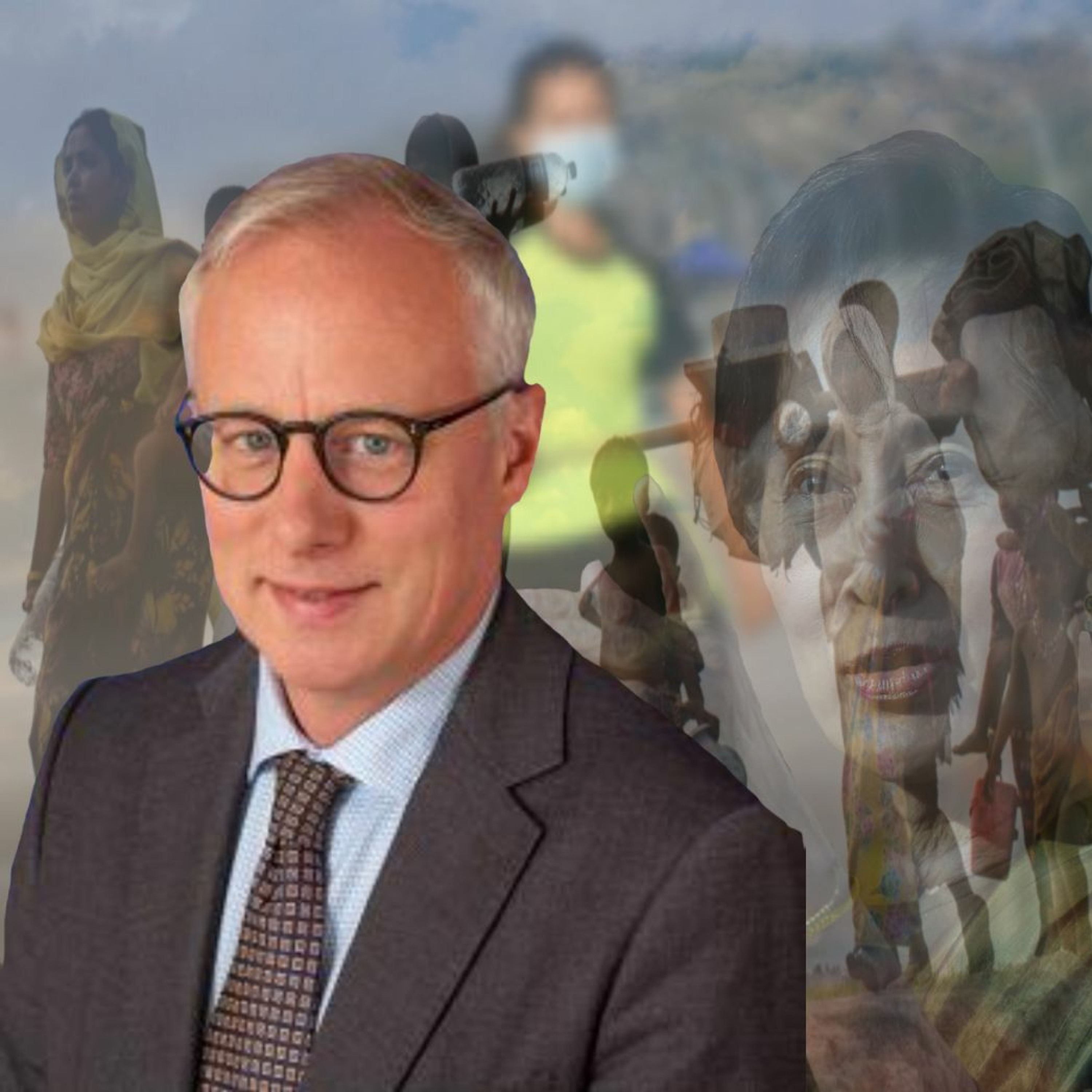 International HorizonsResistance and Democratic Resilience in Myanmar and Ukraine with Marcus BrandA military coup in Myanmar in February 2021 and subsequent humanitarian crisis have largely fallen off the Western media’s news headlines, especially as the Russian invasion of Ukraine has captured attention in recent weeks. What is the current situation of the democratically elected government of Myanmar and the oppression of the Rohingya minority? What are the similarities between the military coup in Myanmar and the Russian invasion of Ukraine in February 2022? How can the world address the crises of these two would-be democracies?
Marcus Brand, International IDEA’s Head of Programme for Myanmar and former UN Development Programme Ukraine Director, spea...2022-03-2136 min
International HorizonsResistance and Democratic Resilience in Myanmar and Ukraine with Marcus BrandA military coup in Myanmar in February 2021 and subsequent humanitarian crisis have largely fallen off the Western media’s news headlines, especially as the Russian invasion of Ukraine has captured attention in recent weeks. What is the current situation of the democratically elected government of Myanmar and the oppression of the Rohingya minority? What are the similarities between the military coup in Myanmar and the Russian invasion of Ukraine in February 2022? How can the world address the crises of these two would-be democracies?
Marcus Brand, International IDEA’s Head of Programme for Myanmar and former UN Development Programme Ukraine Director, spea...2022-03-2136 min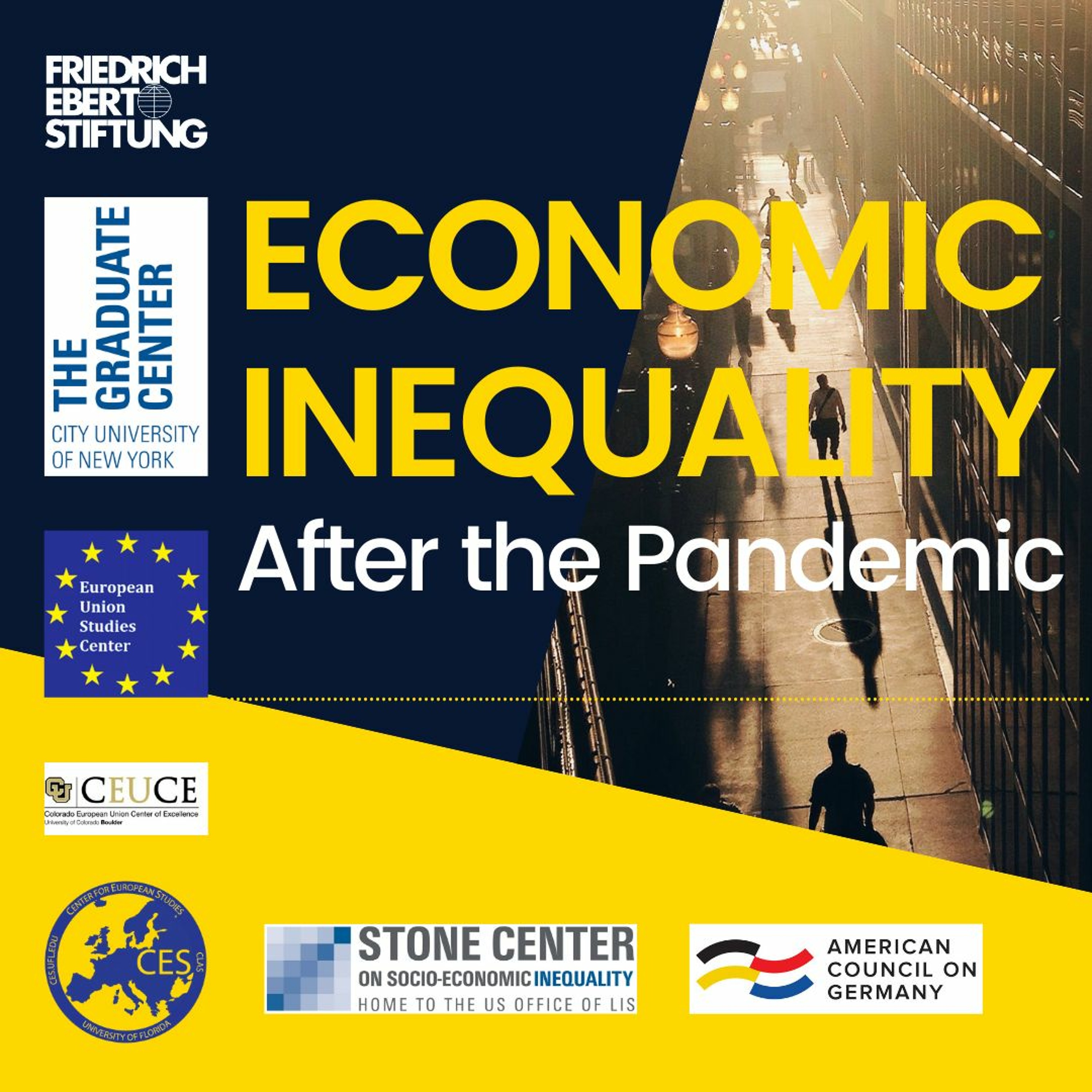 International HorizonsEconomic Inequality After The PandemicHow have governments responded to the economic crisis created by the Covid-19 pandemic, and what will be the consequences? On Tuesday, April 6, a panel discussion with Wolfgang Schmidt, State Secretary, Federal Ministry of Finance of Germany, Angella MacEwen, Senior Economist, Canadian Union of Public Employees, and Branko Milanovic, Professor and Senior Scholar, the Stone Center on Socio-Economic Inequality, the Graduate Center, CUNY, addressed the inequalities revealed and exacerbated by the Covid-19 pandemic, the public policy tools available to ameliorate those inequalities, and the likely paths economies can take in the recovery from the pandemic.
This public online event was moderated...2021-04-0859 min
International HorizonsEconomic Inequality After The PandemicHow have governments responded to the economic crisis created by the Covid-19 pandemic, and what will be the consequences? On Tuesday, April 6, a panel discussion with Wolfgang Schmidt, State Secretary, Federal Ministry of Finance of Germany, Angella MacEwen, Senior Economist, Canadian Union of Public Employees, and Branko Milanovic, Professor and Senior Scholar, the Stone Center on Socio-Economic Inequality, the Graduate Center, CUNY, addressed the inequalities revealed and exacerbated by the Covid-19 pandemic, the public policy tools available to ameliorate those inequalities, and the likely paths economies can take in the recovery from the pandemic.
This public online event was moderated...2021-04-0859 min International HorizonsThe Impact of Women's Issues in International Politics with Ellen Chesler & Rachel VogelsteinWhile March 8th is celebrated as International Women's Day, international women’s rights is still an area in need of much greater attention. How did we get here, and what can we expect for the future of women’s issues in the international arena? What is the role of women’s issues in discussions of global politics and in U.S. foreign policy?
On March 8, guest host and Ralph Bunche Institute research scholar Ellen Chesler interviews Rachel Vogelstein, the Douglas Dillon Senior Fellow and director of "The Women and Foreign Policy Program” at the Council on Foreign Relations, and Adjunct Professo...2021-03-0842 min
International HorizonsThe Impact of Women's Issues in International Politics with Ellen Chesler & Rachel VogelsteinWhile March 8th is celebrated as International Women's Day, international women’s rights is still an area in need of much greater attention. How did we get here, and what can we expect for the future of women’s issues in the international arena? What is the role of women’s issues in discussions of global politics and in U.S. foreign policy?
On March 8, guest host and Ralph Bunche Institute research scholar Ellen Chesler interviews Rachel Vogelstein, the Douglas Dillon Senior Fellow and director of "The Women and Foreign Policy Program” at the Council on Foreign Relations, and Adjunct Professo...2021-03-0842 min The BalderDash Podcast28 Days of Black History - Ralph BuncheToday on 28 Days of Black History, we will be speaking about Ralph Bunche. 2021-02-1505 min
The BalderDash Podcast28 Days of Black History - Ralph BuncheToday on 28 Days of Black History, we will be speaking about Ralph Bunche. 2021-02-1505 min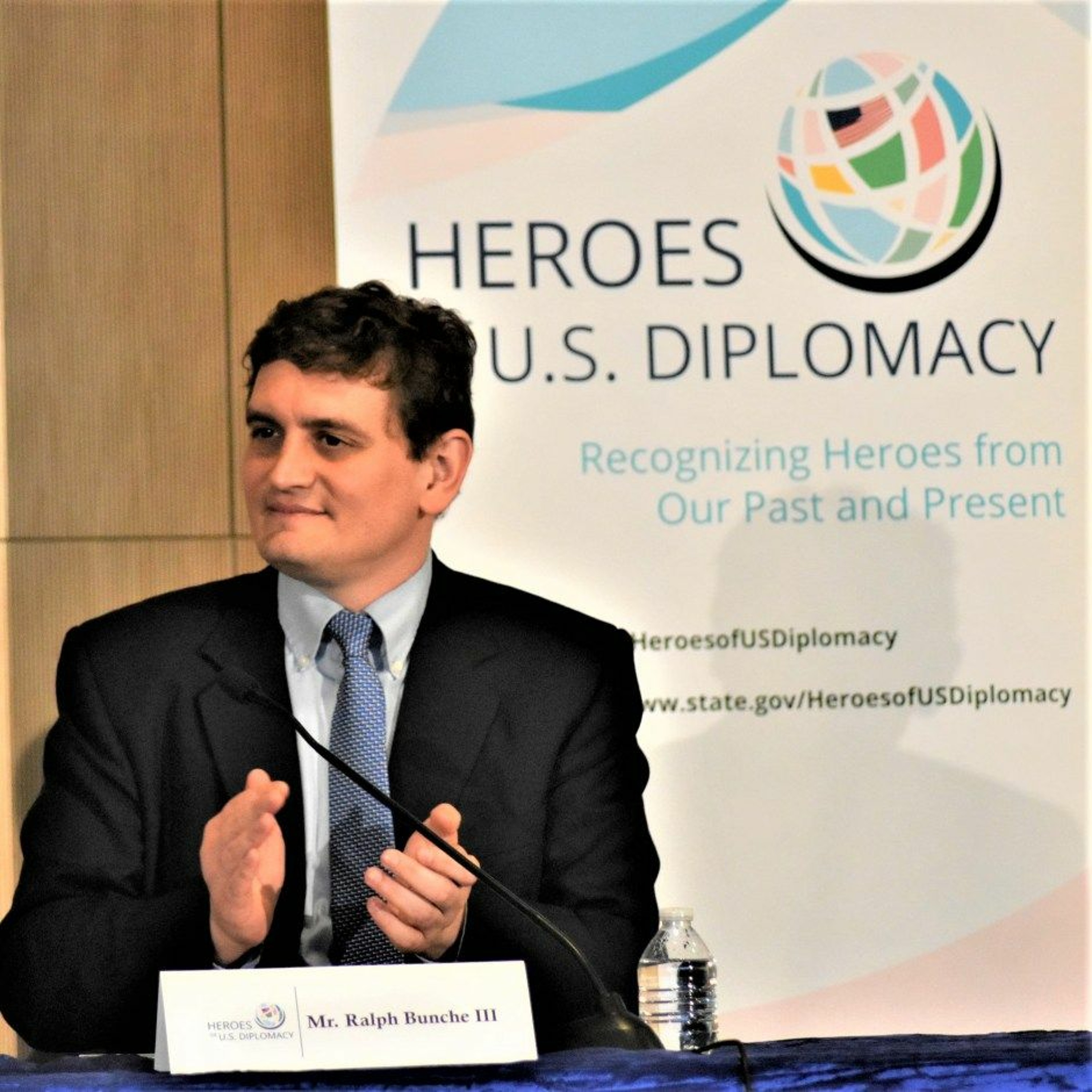 International HorizonsIndigenous People, Minorities, and the Right to Self-Determination with Ralph Bunche IIIWhat does the right to self-determination mean today? For October 12, 2020, our guest Ralph Bunche III, General Secretary of the Unrepresented Nations and Peoples Organization, discusses his work to secure the right to self-determination of those populations that have been systematically denied that right by the states in which they reside.
You can read the transcript here:
http://ralphbuncheinstitute.org/2020/10/12/international-horizons-indigenous-people-minorities-and-the-right-to-self-determination/2020-10-1245 min
International HorizonsIndigenous People, Minorities, and the Right to Self-Determination with Ralph Bunche IIIWhat does the right to self-determination mean today? For October 12, 2020, our guest Ralph Bunche III, General Secretary of the Unrepresented Nations and Peoples Organization, discusses his work to secure the right to self-determination of those populations that have been systematically denied that right by the states in which they reside.
You can read the transcript here:
http://ralphbuncheinstitute.org/2020/10/12/international-horizons-indigenous-people-minorities-and-the-right-to-self-determination/2020-10-1245 min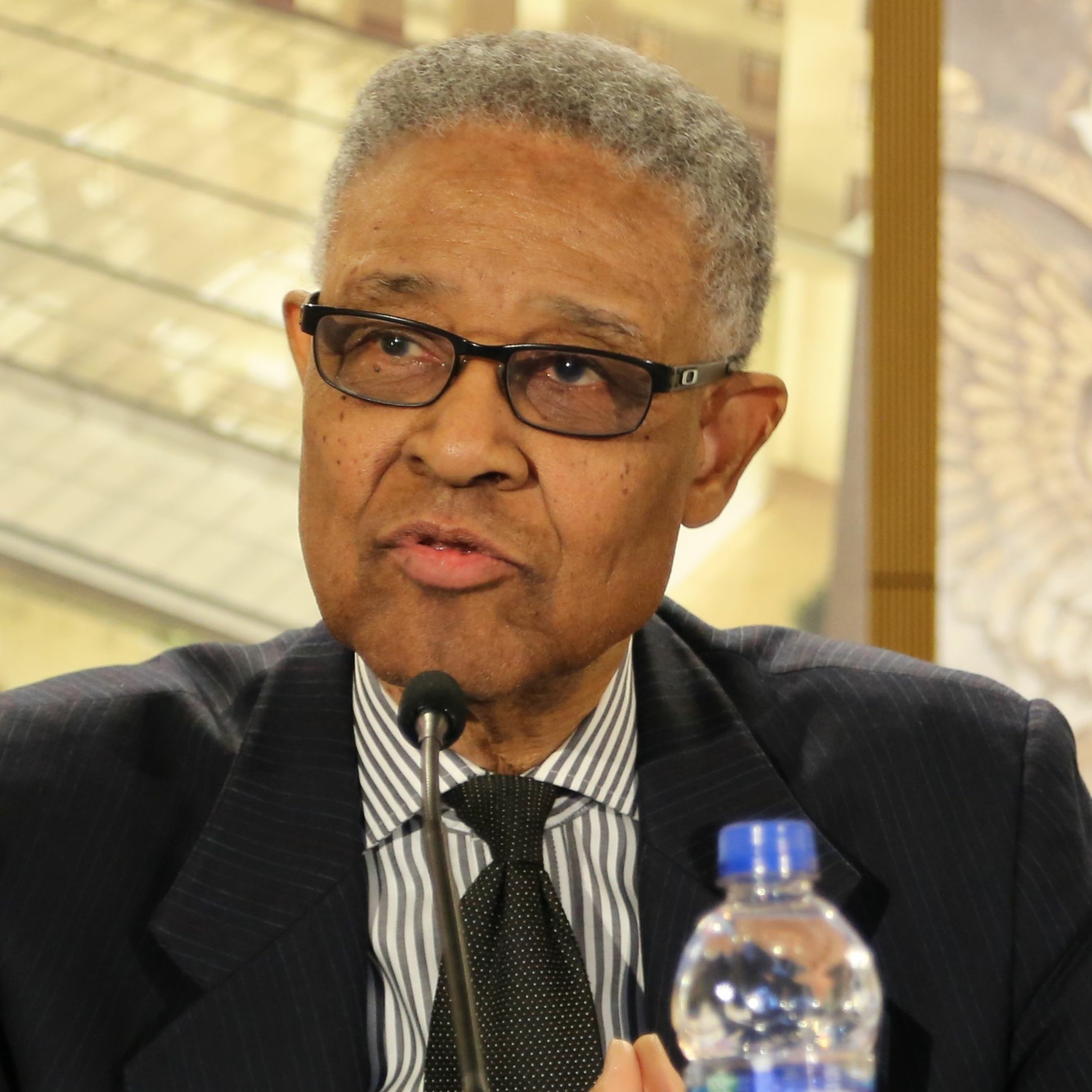 International HorizonsThe Legacy of Ralph Bunche with James Dandridge IIWho was Ralph Bunche?
On October 1, 2020, we speak to James Dandridge II, Vice Chairman of the Board of Directors of the Diplomacy Center Foundation, retired from the US State Department with the rank of Minister Counselor, who discusses the life and legacy of Ralph Bunche, American diplomat and 1950 Nobel Peace Prize winner for his peacekeeping efforts in the Middle East.
You can find a copy of the transcript here: http://ralphbuncheinstitute.org/dev/wp-content/uploads/2020/10/The-Legacy-of-Ralph-Bunche.pdf2020-10-0134 min
International HorizonsThe Legacy of Ralph Bunche with James Dandridge IIWho was Ralph Bunche?
On October 1, 2020, we speak to James Dandridge II, Vice Chairman of the Board of Directors of the Diplomacy Center Foundation, retired from the US State Department with the rank of Minister Counselor, who discusses the life and legacy of Ralph Bunche, American diplomat and 1950 Nobel Peace Prize winner for his peacekeeping efforts in the Middle East.
You can find a copy of the transcript here: http://ralphbuncheinstitute.org/dev/wp-content/uploads/2020/10/The-Legacy-of-Ralph-Bunche.pdf2020-10-0134 min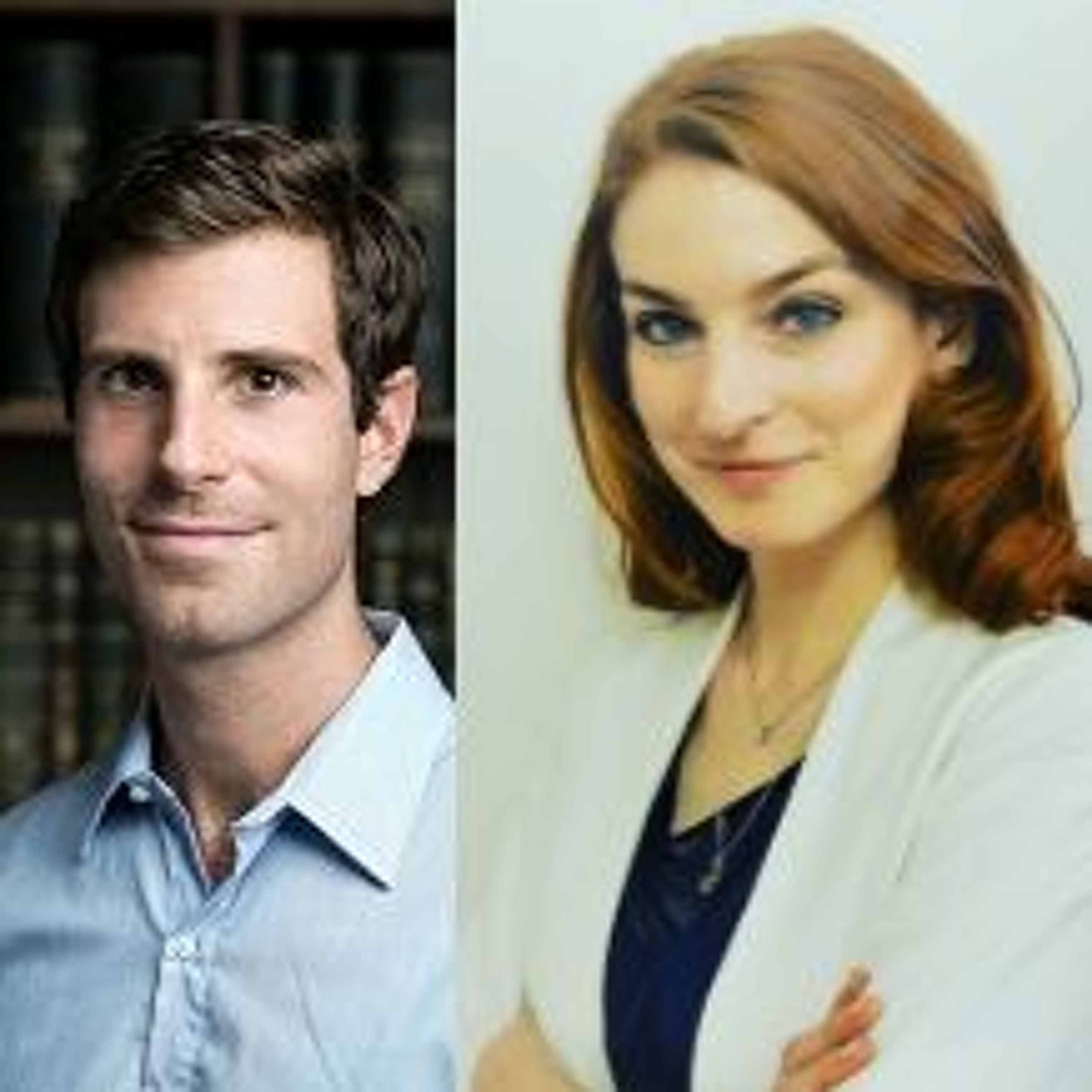 International HorizonsGoverning Technological Innovation in the US and EU with Eline Chivot and Francesco DucciFor Episode Twelve, host John Torpey, Ralph Bunche Institute Director, brings in Eline Chivot, Senior Policy Analyst at the Center for Data Innovation, and Francesco Ducci, Post-Doctoral Global Fellow at New York University School of Law, for a discussion about the different approaches that the US and the EU are taking to regulate new and emerging technology without stifling innovation.2020-06-2941 min
International HorizonsGoverning Technological Innovation in the US and EU with Eline Chivot and Francesco DucciFor Episode Twelve, host John Torpey, Ralph Bunche Institute Director, brings in Eline Chivot, Senior Policy Analyst at the Center for Data Innovation, and Francesco Ducci, Post-Doctoral Global Fellow at New York University School of Law, for a discussion about the different approaches that the US and the EU are taking to regulate new and emerging technology without stifling innovation.2020-06-2941 min WIN-over-SIN - Biblia Narrada, Meditaciones y másLun 29/06/2020 - Sal 148 | Ralph Bunche | 3º Trim-1.3Resumen para el Culto del Lunes 29 de Junio del 2020:
RPSP : Salmos 148 | Matutina Joven: Ralph Bunche | Leccion 1 del 3°Trim.
Escúchalo y Compártelo!!!
En Spotify https://spoti.fi/2NuID9M |
En Android https://bit.ly/2CAMJec |
En YouTube https://youtu.be/3Hv0iGzPokg2020-06-2911 min
WIN-over-SIN - Biblia Narrada, Meditaciones y másLun 29/06/2020 - Sal 148 | Ralph Bunche | 3º Trim-1.3Resumen para el Culto del Lunes 29 de Junio del 2020:
RPSP : Salmos 148 | Matutina Joven: Ralph Bunche | Leccion 1 del 3°Trim.
Escúchalo y Compártelo!!!
En Spotify https://spoti.fi/2NuID9M |
En Android https://bit.ly/2CAMJec |
En YouTube https://youtu.be/3Hv0iGzPokg2020-06-2911 min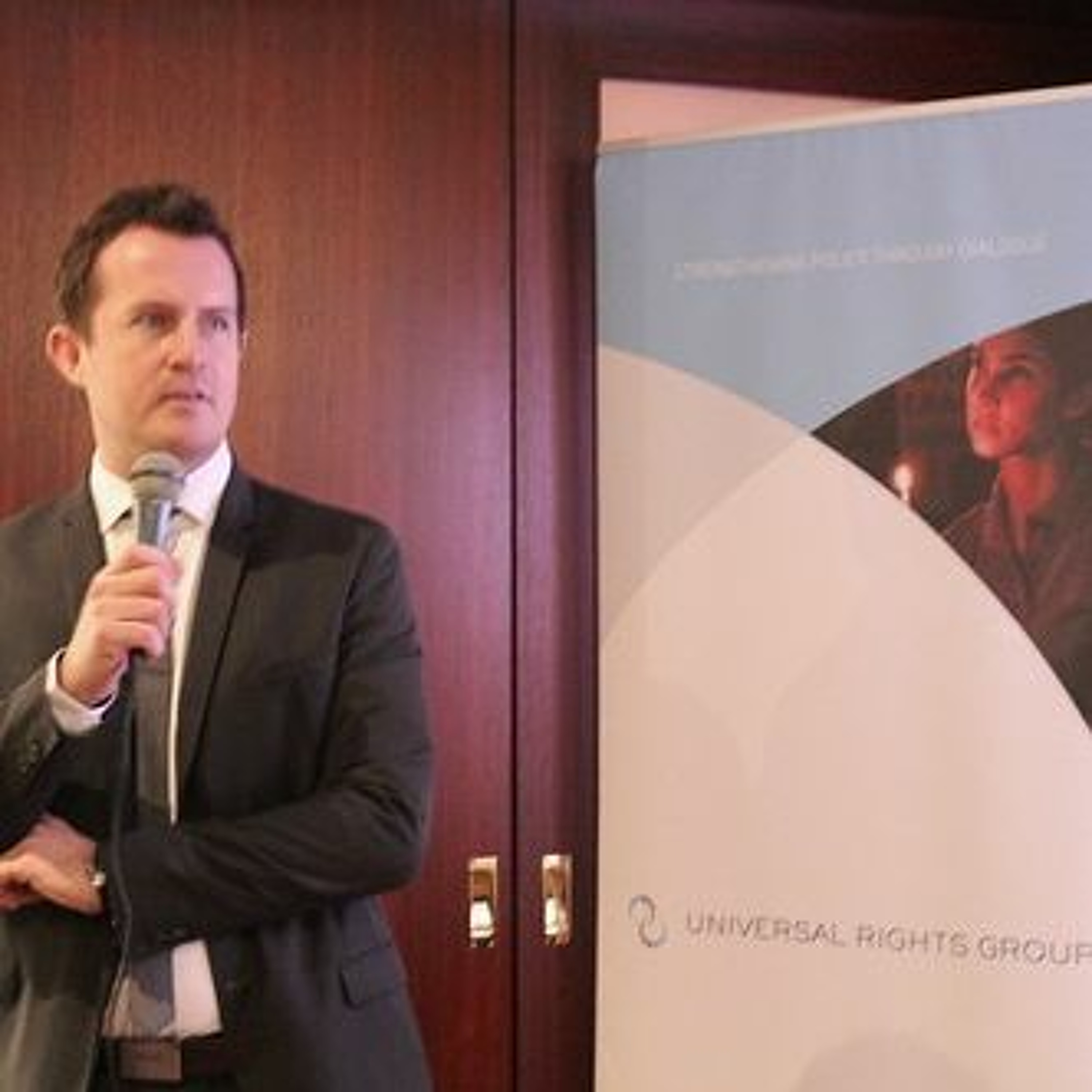 International HorizonsThe Uneasy Relationship Between the US and the United Nations with Marc LimonFor Episode Twelve, our host John Torpey, Ralph Bunche Institute Director, interviews Marc Limon, Executive Director of the Universal Rights Group, on tensions between the United States and the United Nations during this global period of uncertainty.2020-06-2256 min
International HorizonsThe Uneasy Relationship Between the US and the United Nations with Marc LimonFor Episode Twelve, our host John Torpey, Ralph Bunche Institute Director, interviews Marc Limon, Executive Director of the Universal Rights Group, on tensions between the United States and the United Nations during this global period of uncertainty.2020-06-2256 min International HorizonsThe French Coronavirus Experience with Prof. Ettore RecchiFor Episode Eleven, our host John Torpey, Ralph Bunche Institute Director, interviews Ettore Recchi, Professor of Sociology at Sciences Po in Paris, to discuss his research on the French state’s response to the coronavirus to see what was effective in curbing their infection rate.2020-06-1540 min
International HorizonsThe French Coronavirus Experience with Prof. Ettore RecchiFor Episode Eleven, our host John Torpey, Ralph Bunche Institute Director, interviews Ettore Recchi, Professor of Sociology at Sciences Po in Paris, to discuss his research on the French state’s response to the coronavirus to see what was effective in curbing their infection rate.2020-06-1540 min International HorizonsRecent Political Developments in Hong Kong with Jessica MahlbacherFor Episode Ten, our host John Torpey, Ralph Bunche Institute Director, interviews Jessica Mahlbacher, a PhD candidate in Political Science at the CUNY Graduate Center, on the historical and political context of the recent protests in Hong Kong.2020-06-0847 min
International HorizonsRecent Political Developments in Hong Kong with Jessica MahlbacherFor Episode Ten, our host John Torpey, Ralph Bunche Institute Director, interviews Jessica Mahlbacher, a PhD candidate in Political Science at the CUNY Graduate Center, on the historical and political context of the recent protests in Hong Kong.2020-06-0847 min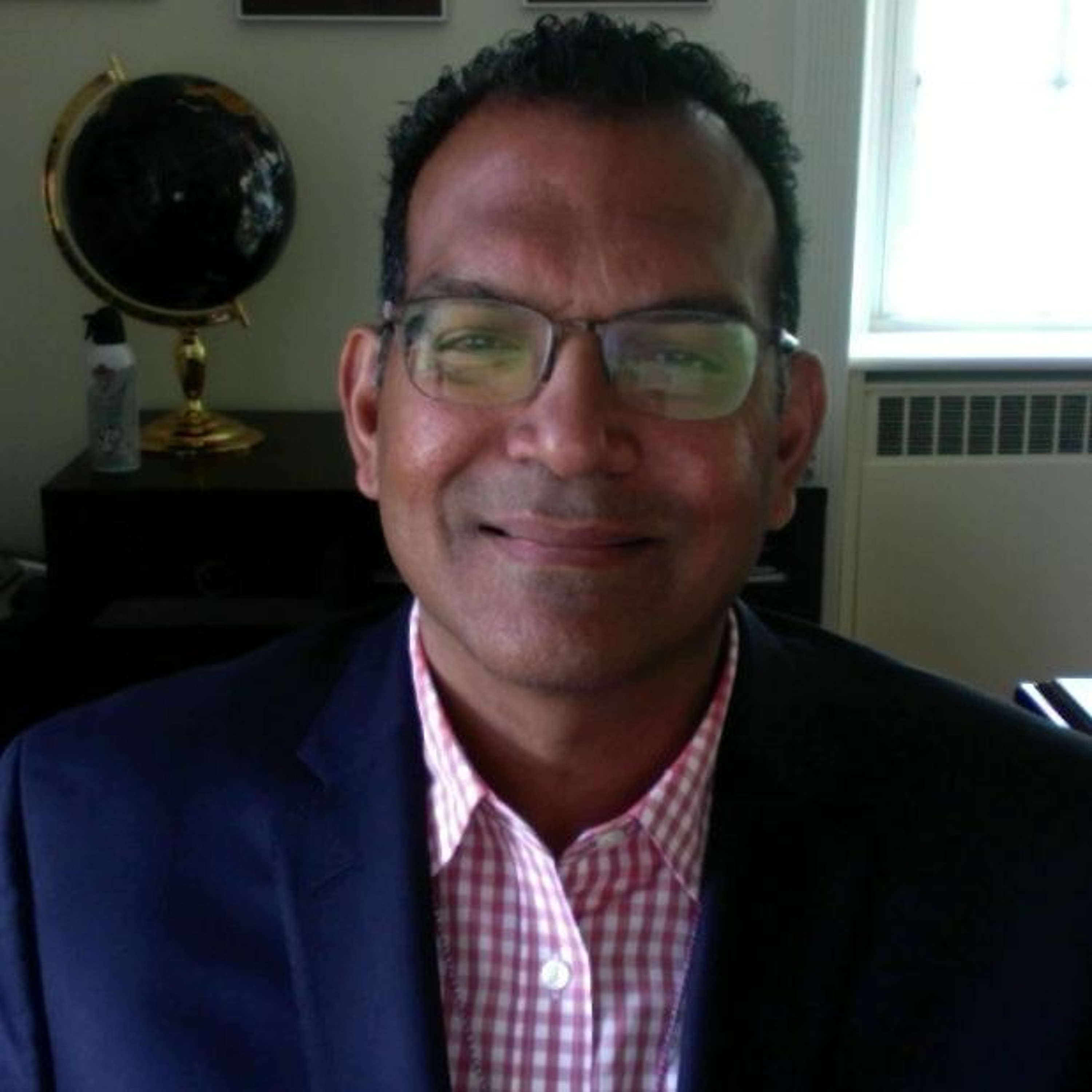 International HorizonsThe Emergence of the Novel Coronavirus with Dr. Rajiv RatanFor Episode Nine, our host John Torpey, Ralph Bunche Institute Director, speaks with Dr. Rajiv Ratan, Winifred Masterson Burke Professor of Neurology and Neuroscience at Weill Cornell Medicine, about the emergence of the novel coronavirus from a biological perspective.2020-06-0147 min
International HorizonsThe Emergence of the Novel Coronavirus with Dr. Rajiv RatanFor Episode Nine, our host John Torpey, Ralph Bunche Institute Director, speaks with Dr. Rajiv Ratan, Winifred Masterson Burke Professor of Neurology and Neuroscience at Weill Cornell Medicine, about the emergence of the novel coronavirus from a biological perspective.2020-06-0147 min International HorizonsThe Economic Consequences of the Coronavirus in Germany with Thorben AlbrechtFor Episode Seven, our host John Torpey, Director of the Ralph Bunche Institute , speaks with Thorben Albrecht, a member of the ILO's Global Commission on the Future of Work, to discuss how our economies can recover, adapt, and move forward in the age of the coronavirus.2020-05-2232 min
International HorizonsThe Economic Consequences of the Coronavirus in Germany with Thorben AlbrechtFor Episode Seven, our host John Torpey, Director of the Ralph Bunche Institute , speaks with Thorben Albrecht, a member of the ILO's Global Commission on the Future of Work, to discuss how our economies can recover, adapt, and move forward in the age of the coronavirus.2020-05-2232 min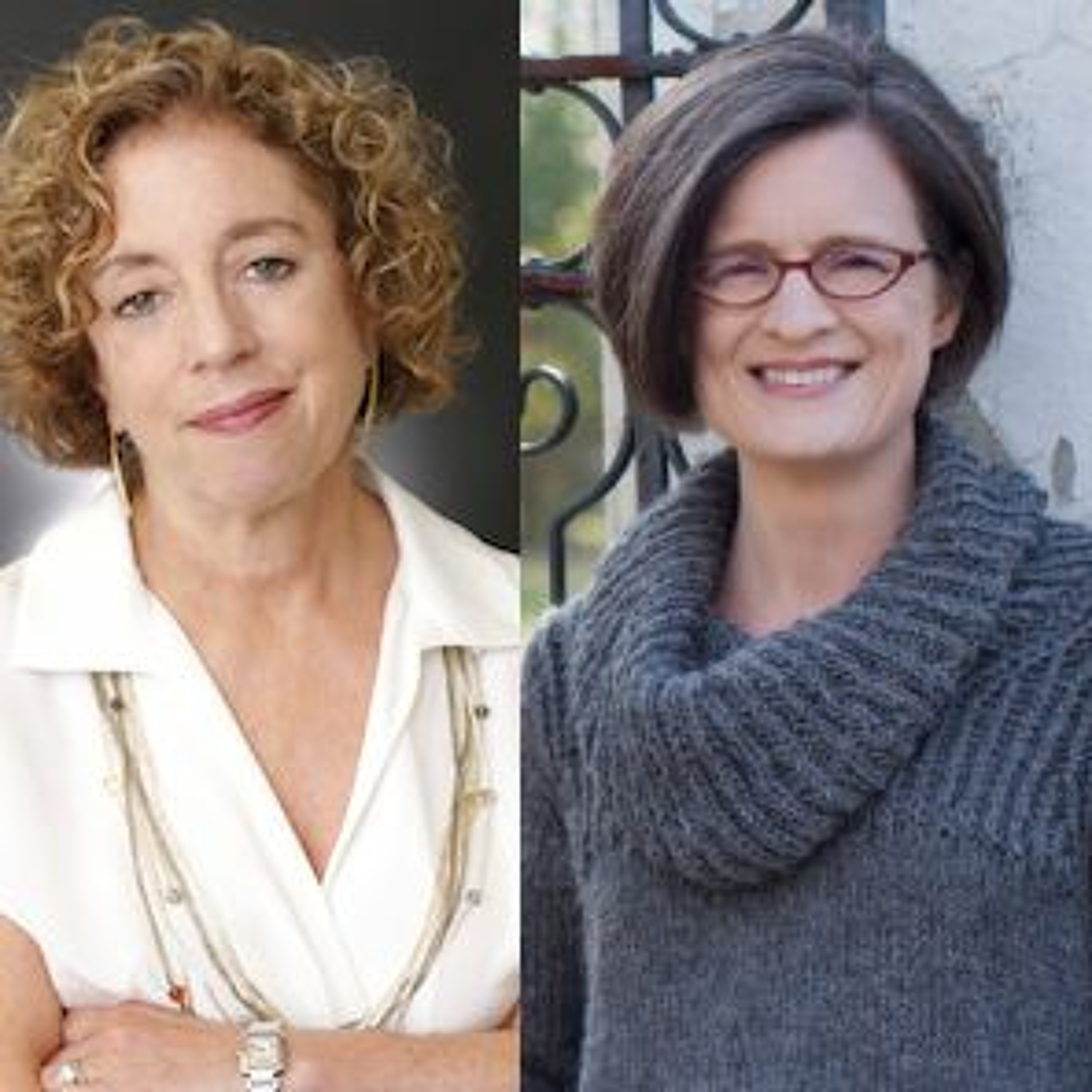 International HorizonsThe UN at 75: Examining its History Through a Woman’s Lens w/ Prof. Chesler and Prof. OlcottFor Episode Seven, we host Ellen Chesler, Senior Fellow at the Ralph Bunche Institute for International Studies, and Jocelyn Olcott, Professor of History at Duke University, who talk about the UN’s legacy tackling women’s issues around the world and discuss the approaches that advanced that agenda.2020-05-151h 00
International HorizonsThe UN at 75: Examining its History Through a Woman’s Lens w/ Prof. Chesler and Prof. OlcottFor Episode Seven, we host Ellen Chesler, Senior Fellow at the Ralph Bunche Institute for International Studies, and Jocelyn Olcott, Professor of History at Duke University, who talk about the UN’s legacy tackling women’s issues around the world and discuss the approaches that advanced that agenda.2020-05-151h 00 International HorizonsGermany’s Experience with the Coronavirus with Prof. Constantin GoschlerFor Episode Six, we are joined by Constantin Goschler, Professor of Contemporary History at the Ruhr University in Bochum, Germany, for a discussion with Professor John Torpey, Director of the Ralph Bunche Institute, concerning Germany’s experience with the coronavirus, from its approach to containing the pandemic to what we should expect from its recently announced loosening of the lockdown.2020-05-0838 min
International HorizonsGermany’s Experience with the Coronavirus with Prof. Constantin GoschlerFor Episode Six, we are joined by Constantin Goschler, Professor of Contemporary History at the Ruhr University in Bochum, Germany, for a discussion with Professor John Torpey, Director of the Ralph Bunche Institute, concerning Germany’s experience with the coronavirus, from its approach to containing the pandemic to what we should expect from its recently announced loosening of the lockdown.2020-05-0838 min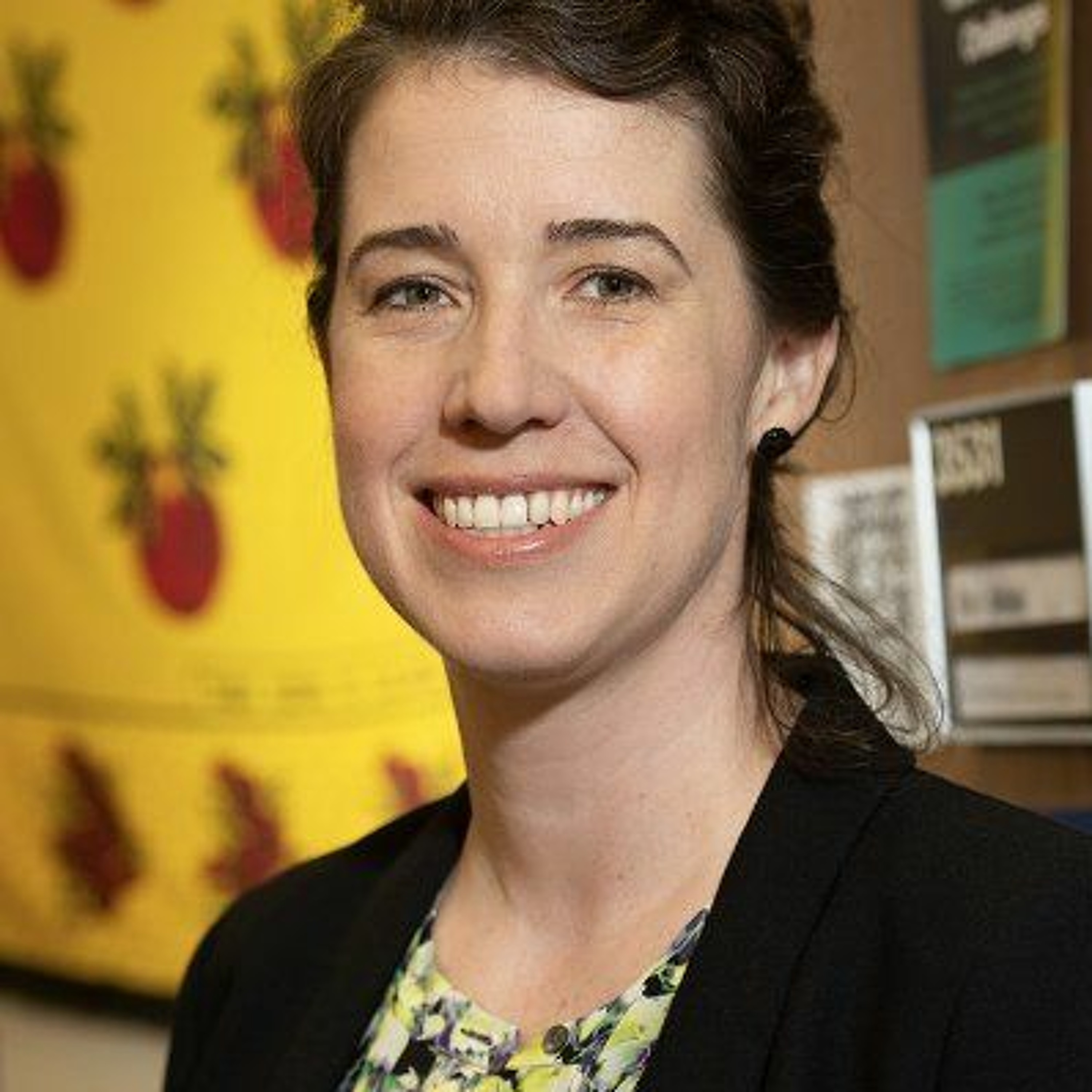 International HorizonsA Historical Perspective on the Coronavirus Pandemic with Prof. Mari WebelFor Episode Five, we have invited Professor Mari Webel, Assistant Professor of History at the University of Pittsburgh, to a discussion with Professor John Torpey, Director of the Ralph Bunche Institute, about what we can learn about the coronavirus through a look at past pandemics and how they affected the world.2020-05-0142 min
International HorizonsA Historical Perspective on the Coronavirus Pandemic with Prof. Mari WebelFor Episode Five, we have invited Professor Mari Webel, Assistant Professor of History at the University of Pittsburgh, to a discussion with Professor John Torpey, Director of the Ralph Bunche Institute, about what we can learn about the coronavirus through a look at past pandemics and how they affected the world.2020-05-0142 min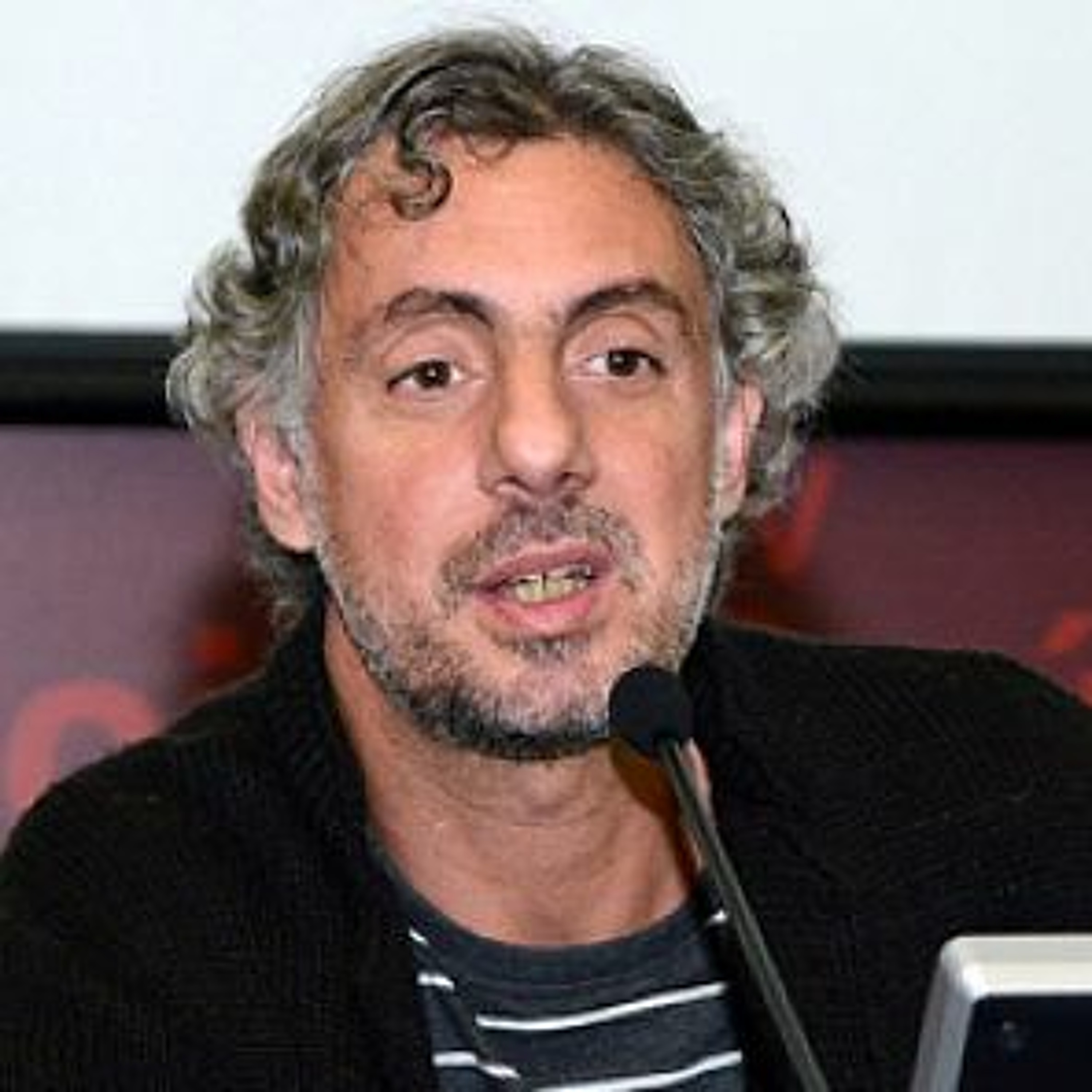 International HorizonsBrazil and the Coronavirus with Prof. Jose Mauricio DominguesFor Episode Four, we have invited Professor Jose Mauricio Domingues, Professor of Sociology and Political Studies at Rio de Janeiro University, to a discussion with Professor John Torpey, Director of the Ralph Bunche Institute, about the effects of the coronavirus on Brazil and the tension it's adding to the country’s already strained political system.2020-04-2434 min
International HorizonsBrazil and the Coronavirus with Prof. Jose Mauricio DominguesFor Episode Four, we have invited Professor Jose Mauricio Domingues, Professor of Sociology and Political Studies at Rio de Janeiro University, to a discussion with Professor John Torpey, Director of the Ralph Bunche Institute, about the effects of the coronavirus on Brazil and the tension it's adding to the country’s already strained political system.2020-04-2434 min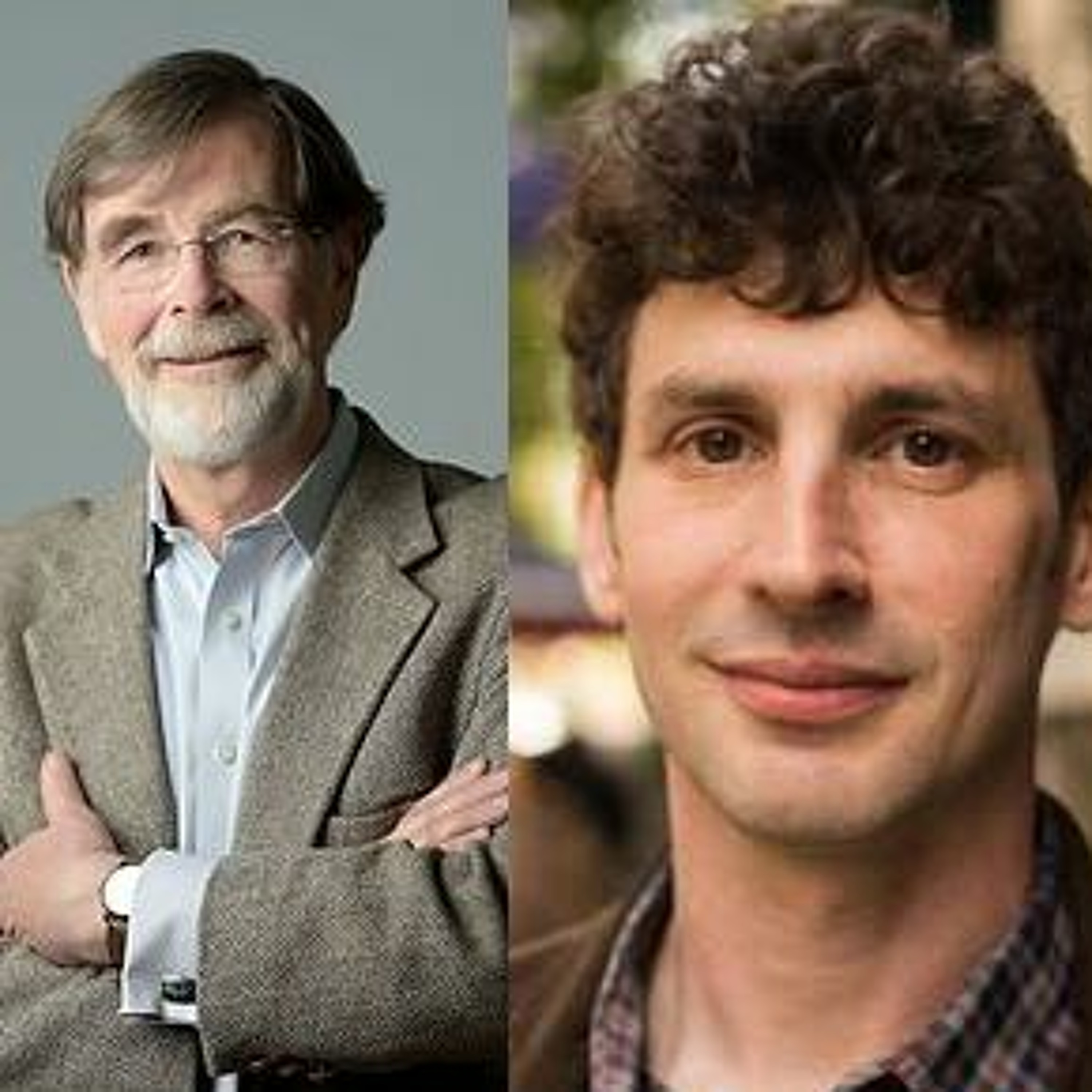 International HorizonsWould the World be Any Better Without the UN? with Prof. Thomas Weiss and Prof. Peter HoffmanThis episode features Professor Thomas Weiss, Director Emeritus of the Ralph Bunche Institute and Presidential Professor of Political Science at the Graduate Center, CUNY, and Professor Peter Hoffman, Assistant Professor in The New School's Graduate Programs in International Affairs, discussing the future of the UN, the nationalist revolt against multilateralism, and the renewed calls for global cooperation in the face of global problems such as the coronavirus.2020-04-1757 min
International HorizonsWould the World be Any Better Without the UN? with Prof. Thomas Weiss and Prof. Peter HoffmanThis episode features Professor Thomas Weiss, Director Emeritus of the Ralph Bunche Institute and Presidential Professor of Political Science at the Graduate Center, CUNY, and Professor Peter Hoffman, Assistant Professor in The New School's Graduate Programs in International Affairs, discussing the future of the UN, the nationalist revolt against multilateralism, and the renewed calls for global cooperation in the face of global problems such as the coronavirus.2020-04-1757 min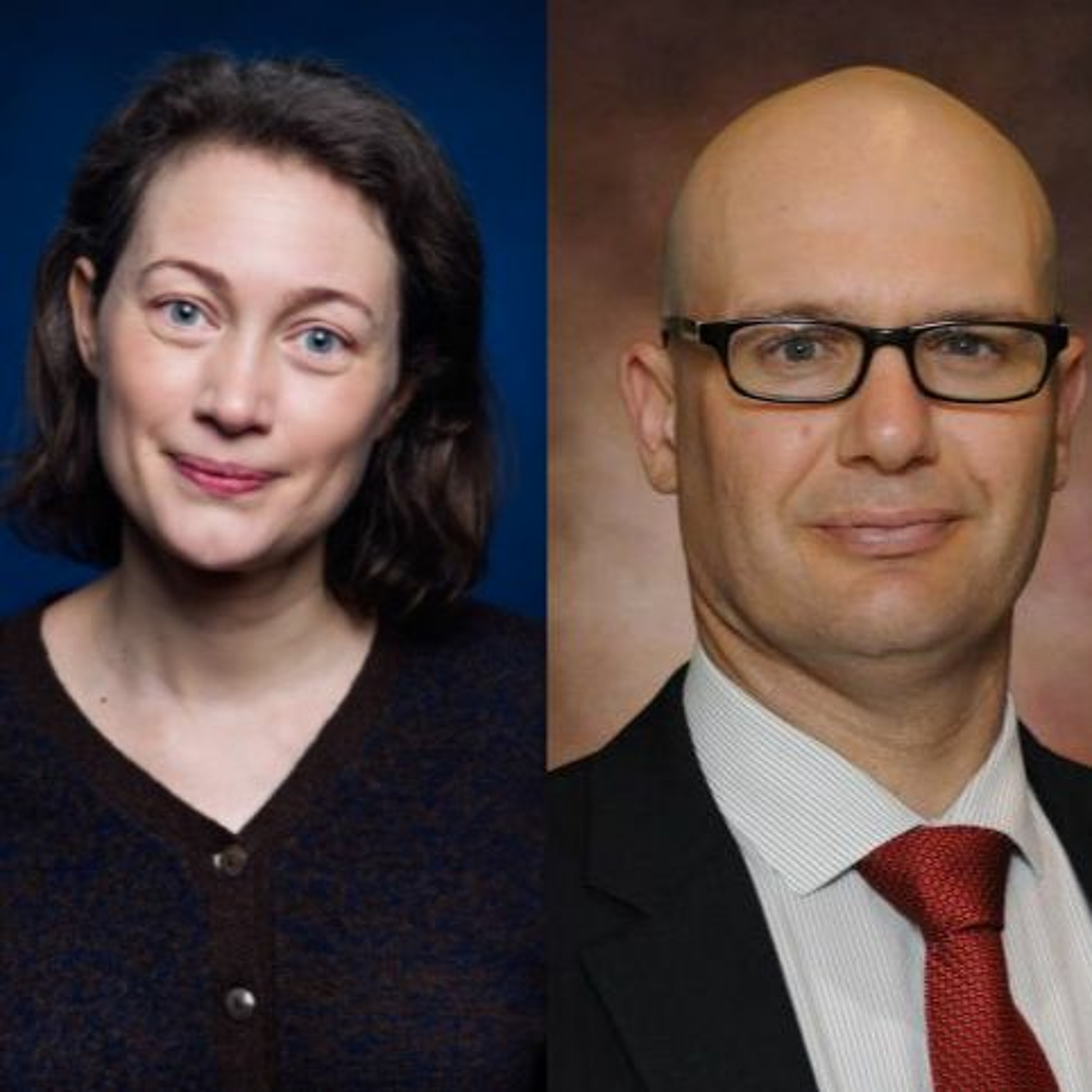 International HorizonsEpisode 2: Countering Violent Extremism with Dr. Lydia Wilson and Prof. Peter RomaniukEpisode Two features Dr. Lydia Wilson, Research Fellow at the Centre for the Resolution of Intractable Conflict at the University of Oxford and Senior Fellow at the Ralph Bunche Institute, and Professor Peter Romaniuk, Associate Professor of Political Science at John Jay College of Criminal Justice and the Graduate Center, CUNY, who discuss the field of "Countering Violent Extremism" (CVE) and the complexities that must be considered to effectively counter extremist messaging.2020-04-101h 00
International HorizonsEpisode 2: Countering Violent Extremism with Dr. Lydia Wilson and Prof. Peter RomaniukEpisode Two features Dr. Lydia Wilson, Research Fellow at the Centre for the Resolution of Intractable Conflict at the University of Oxford and Senior Fellow at the Ralph Bunche Institute, and Professor Peter Romaniuk, Associate Professor of Political Science at John Jay College of Criminal Justice and the Graduate Center, CUNY, who discuss the field of "Countering Violent Extremism" (CVE) and the complexities that must be considered to effectively counter extremist messaging.2020-04-101h 00 American DiplomatRalph Bunche, Accidental DiplomatThe life of Ralph Bunche, recently celebrated by the State Department as a Hero of US Diplomacy, as relayed by his grandson, Ralph Bunche III and UCLA professor Kal Raustiala. Bunche, academic, pathbreaker, civil rights activist, and early planner of the United Nations, handled crises occurring in the newly independent African nations and brokered the first armistice in the Middle East. He was the first African American to be awarded the Nobel Prize. 2020-03-1838 min
American DiplomatRalph Bunche, Accidental DiplomatThe life of Ralph Bunche, recently celebrated by the State Department as a Hero of US Diplomacy, as relayed by his grandson, Ralph Bunche III and UCLA professor Kal Raustiala. Bunche, academic, pathbreaker, civil rights activist, and early planner of the United Nations, handled crises occurring in the newly independent African nations and brokered the first armistice in the Middle East. He was the first African American to be awarded the Nobel Prize. 2020-03-1838 min This Day in Quiztory03.20_Dave Hollister_Diplomat Dr. Ralph BuncheRecording artist Dave Hollister shares some history on a trailblazing achievement by diplomat Dr. Ralph Bunche2019-03-2001 min
This Day in Quiztory03.20_Dave Hollister_Diplomat Dr. Ralph BuncheRecording artist Dave Hollister shares some history on a trailblazing achievement by diplomat Dr. Ralph Bunche2019-03-2001 min This I BelieveRalph Bunche: Nana Lit the BeaconsNobel Peace Prize winner Ralph Bunche had a "poor and hard life," having lost both of his parents as a young child. But he was raised by his grandmother, a woman of principle, who taught Bunche the simple lessons that became the foundation of his beliefs. From Edward R. Murrow's 1950s This I Believe radio series. For more This I Believe programs, please visit thisibelieve.org2018-02-2605 min
This I BelieveRalph Bunche: Nana Lit the BeaconsNobel Peace Prize winner Ralph Bunche had a "poor and hard life," having lost both of his parents as a young child. But he was raised by his grandmother, a woman of principle, who taught Bunche the simple lessons that became the foundation of his beliefs. From Edward R. Murrow's 1950s This I Believe radio series. For more This I Believe programs, please visit thisibelieve.org2018-02-2605 min This I BelieveRalph Bunche: Nana Lit the BeaconsNobel Peace Prize winner Ralph Bunche had a "poor and hard life," having lost both of his parents as a young child. But he was raised by his grandmother, a woman of principle, who taught Bunche the simple lessons that became the foundation of his beliefs. From Edward R. Murrow's 1950s This I Believe radio series. For more This I Believe programs, please visit thisibelieve.org2018-02-2605 min
This I BelieveRalph Bunche: Nana Lit the BeaconsNobel Peace Prize winner Ralph Bunche had a "poor and hard life," having lost both of his parents as a young child. But he was raised by his grandmother, a woman of principle, who taught Bunche the simple lessons that became the foundation of his beliefs. From Edward R. Murrow's 1950s This I Believe radio series. For more This I Believe programs, please visit thisibelieve.org2018-02-2605 min This I BelieveRalph Bunche: Nana Lit the BeaconsNobel Peace Prize winner Ralph Bunche had a "poor and hard life," having lost both of his parents as a young child. But he was raised by his grandmother, a woman of principle, who taught Bunche the simple lessons that became the foundation of his beliefs. From Edward R. Murrow's 1950s This I Believe radio series. For more This I Believe programs, please visit thisibelieve.org2018-02-2605 min
This I BelieveRalph Bunche: Nana Lit the BeaconsNobel Peace Prize winner Ralph Bunche had a "poor and hard life," having lost both of his parents as a young child. But he was raised by his grandmother, a woman of principle, who taught Bunche the simple lessons that became the foundation of his beliefs. From Edward R. Murrow's 1950s This I Believe radio series. For more This I Believe programs, please visit thisibelieve.org2018-02-2605 min SpectrumPioneers in EngineeringPioneers in Engineering is a UC Berkeley student-run project that provides STEM outreach in local high schools. PIE sponsors and supports a Spring semester robot competition. Guests include Vivek Nedyavila, Andrew Vanderburg, and David Huang. pioneers.berkeley.eduTranscriptsSpeaker 1: Spectrum's next Speaker 2: [inaudible].Speaker 1: [00:00:30] Welcome to spectrum the science and technology show on k a l x Berkeley...2013-01-2530 min
SpectrumPioneers in EngineeringPioneers in Engineering is a UC Berkeley student-run project that provides STEM outreach in local high schools. PIE sponsors and supports a Spring semester robot competition. Guests include Vivek Nedyavila, Andrew Vanderburg, and David Huang. pioneers.berkeley.eduTranscriptsSpeaker 1: Spectrum's next Speaker 2: [inaudible].Speaker 1: [00:00:30] Welcome to spectrum the science and technology show on k a l x Berkeley...2013-01-2530 min Peace Talks RadioPeace Talks Radio: Ralph Bunche - Profile in Peace.A conversational profile of Ralph Bunche - a sometimes overlooked African-American who excelled in the world of diplomacy.
INFO: In the middle part of the 20th century, if there was a news story about a peacemaking mission around the globe, chances are it contained the name of African-American diplomat Ralph Bunche. A scholar of world affairs and race relations, Bunche was recruited from academia first into the U.S. State Department, then into the fledgling United Nations. He stepped boldly onto the world stage as a peace negotiator and advocate for the liberation of peoples of color from colonial rule...2007-03-2959 min
Peace Talks RadioPeace Talks Radio: Ralph Bunche - Profile in Peace.A conversational profile of Ralph Bunche - a sometimes overlooked African-American who excelled in the world of diplomacy.
INFO: In the middle part of the 20th century, if there was a news story about a peacemaking mission around the globe, chances are it contained the name of African-American diplomat Ralph Bunche. A scholar of world affairs and race relations, Bunche was recruited from academia first into the U.S. State Department, then into the fledgling United Nations. He stepped boldly onto the world stage as a peace negotiator and advocate for the liberation of peoples of color from colonial rule...2007-03-2959 min Peace Talks RadioPeace Talks Radio: Ralph Bunche - Profile in Peace.A conversational profile of Ralph Bunche - a sometimes overlooked African-American who excelled in the world of diplomacy.
INFO: In the middle part of the 20th century, if there was a news story about a peacemaking mission around the globe, chances are it contained the name of African-American diplomat Ralph Bunche. A scholar of world affairs and race relations, Bunche was recruited from academia first into the U.S. State Department, then into the fledgling United Nations. He stepped boldly onto the world stage as a peace negotiator and advocate for the liberation of peoples of color from colonial rule...2007-03-2959 min
Peace Talks RadioPeace Talks Radio: Ralph Bunche - Profile in Peace.A conversational profile of Ralph Bunche - a sometimes overlooked African-American who excelled in the world of diplomacy.
INFO: In the middle part of the 20th century, if there was a news story about a peacemaking mission around the globe, chances are it contained the name of African-American diplomat Ralph Bunche. A scholar of world affairs and race relations, Bunche was recruited from academia first into the U.S. State Department, then into the fledgling United Nations. He stepped boldly onto the world stage as a peace negotiator and advocate for the liberation of peoples of color from colonial rule...2007-03-2959 min